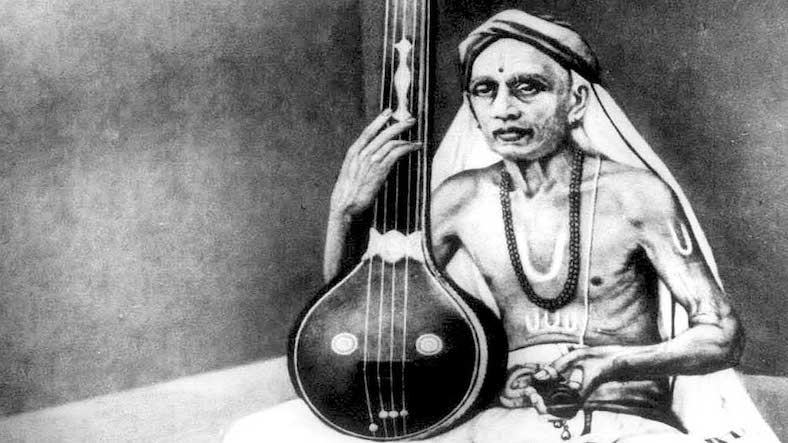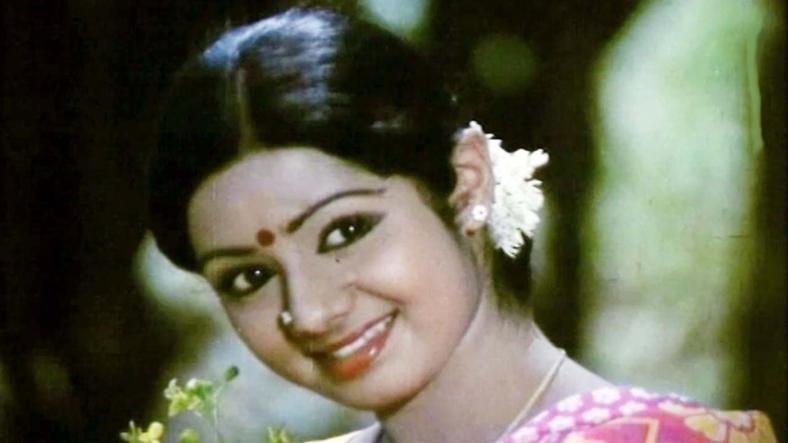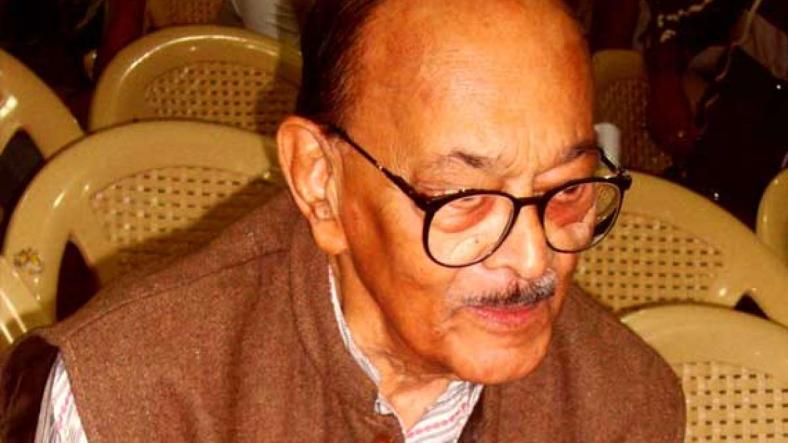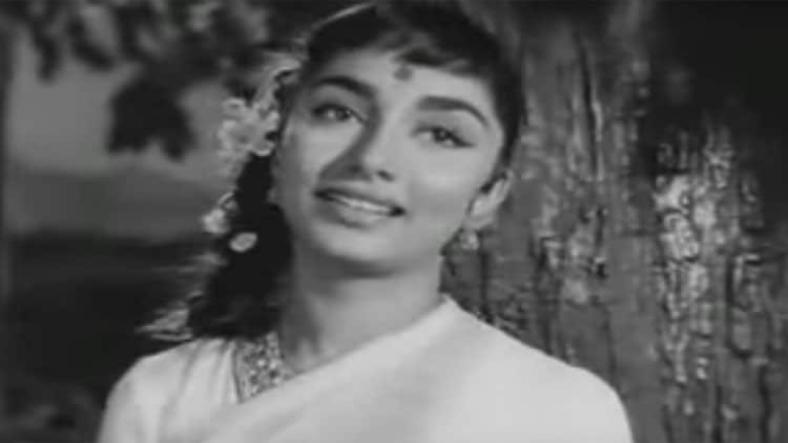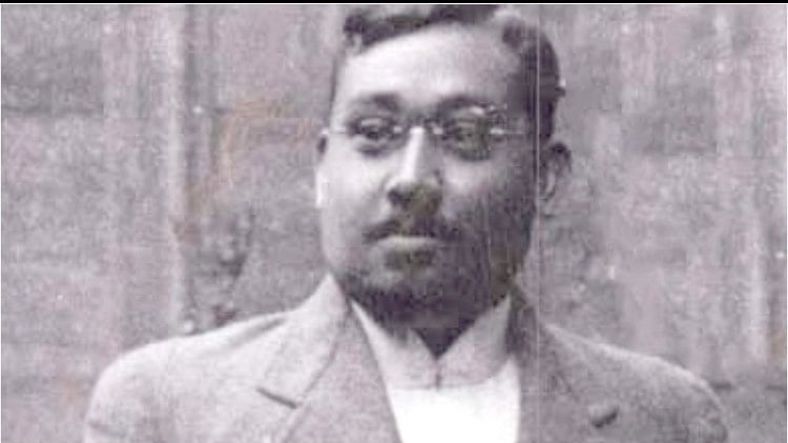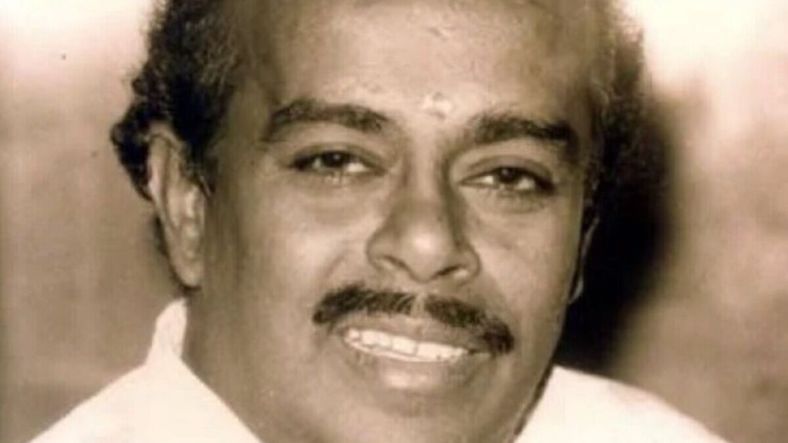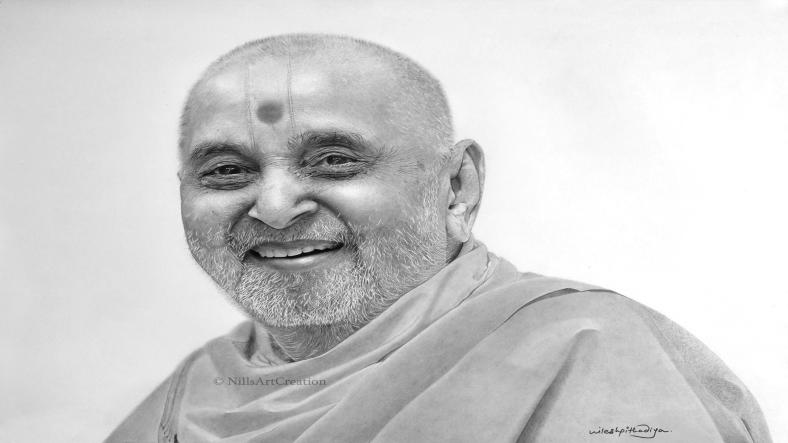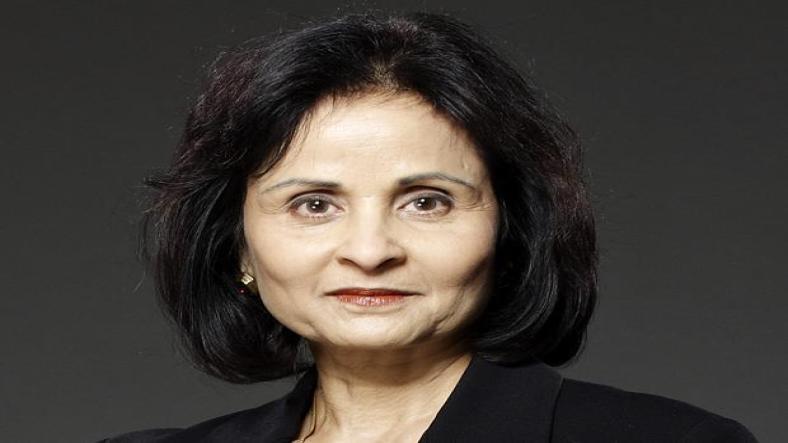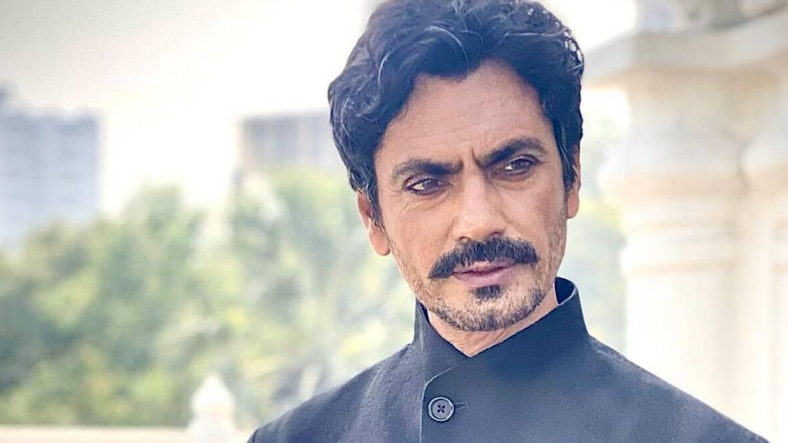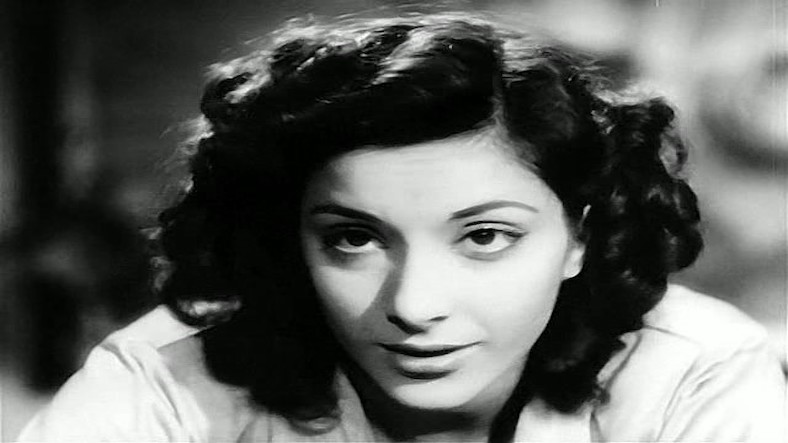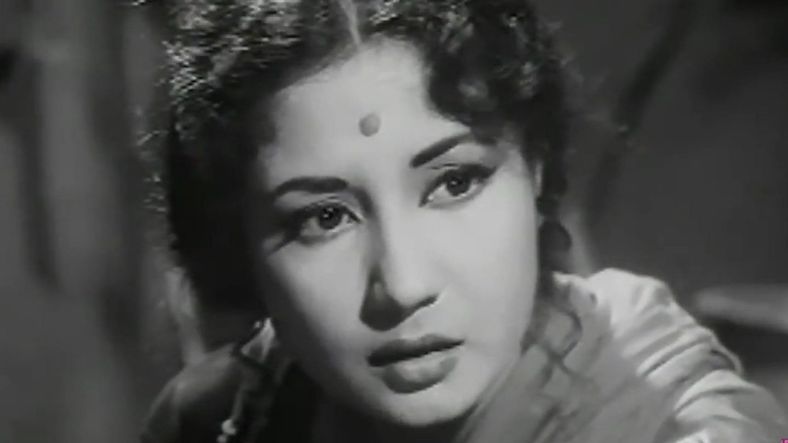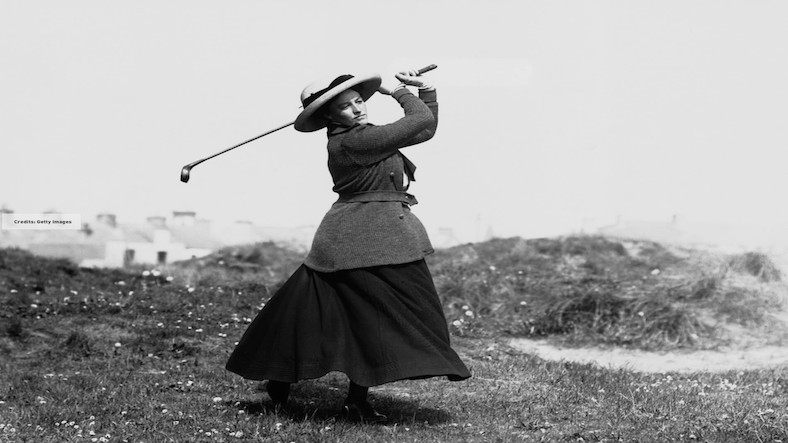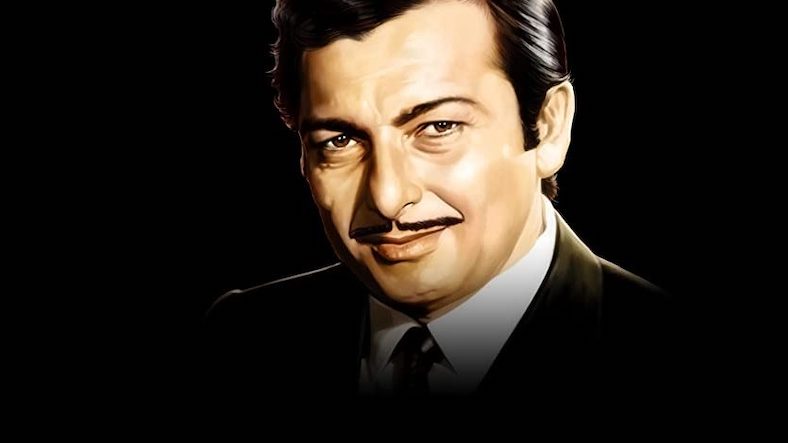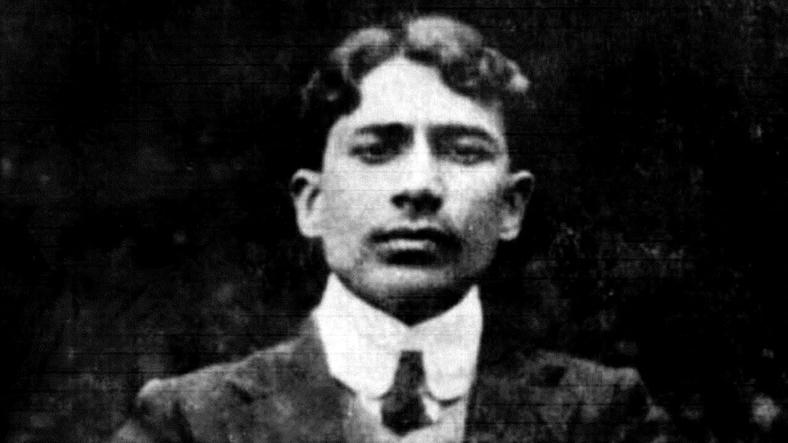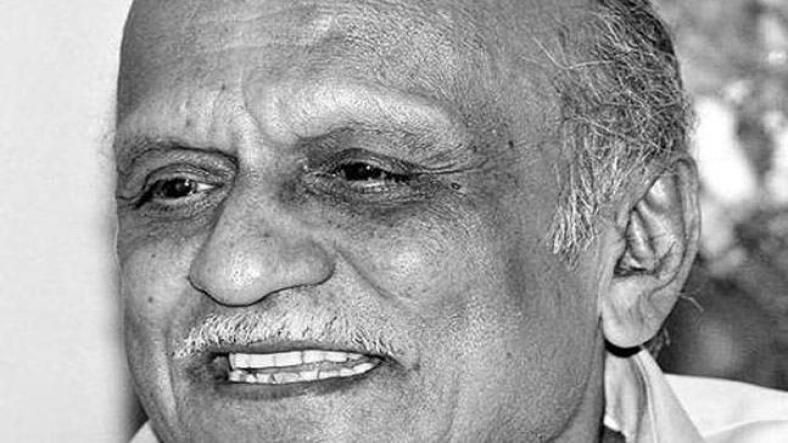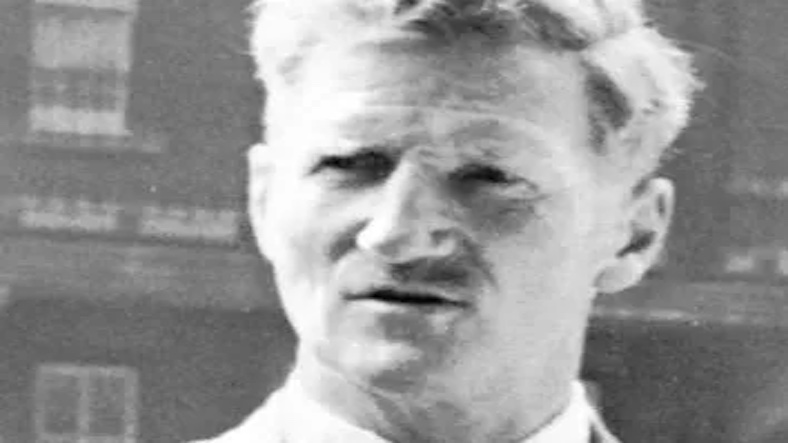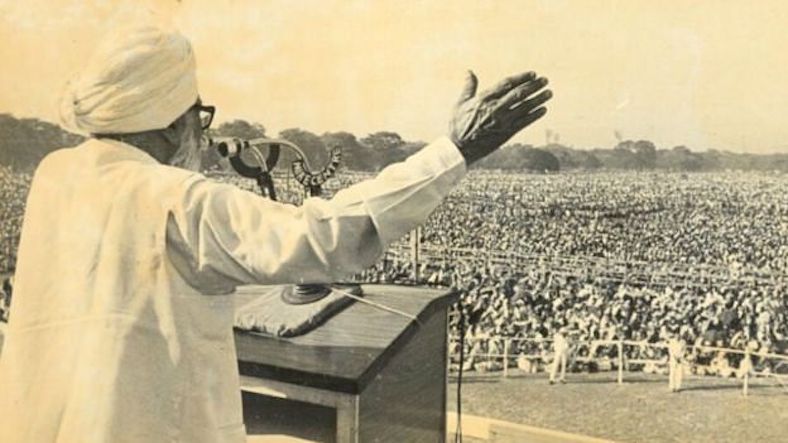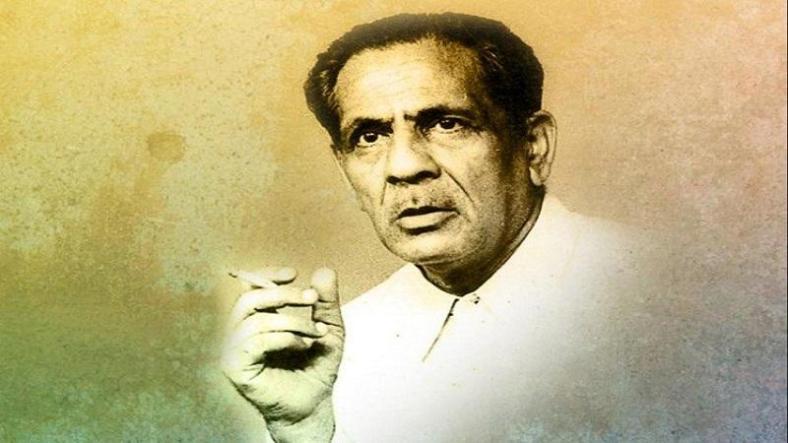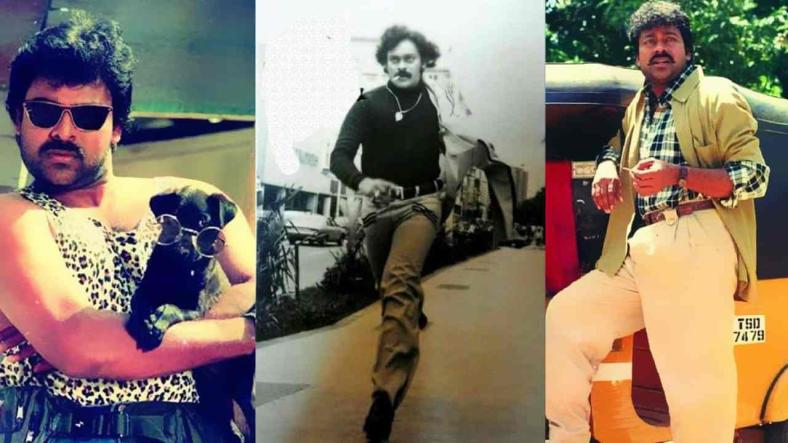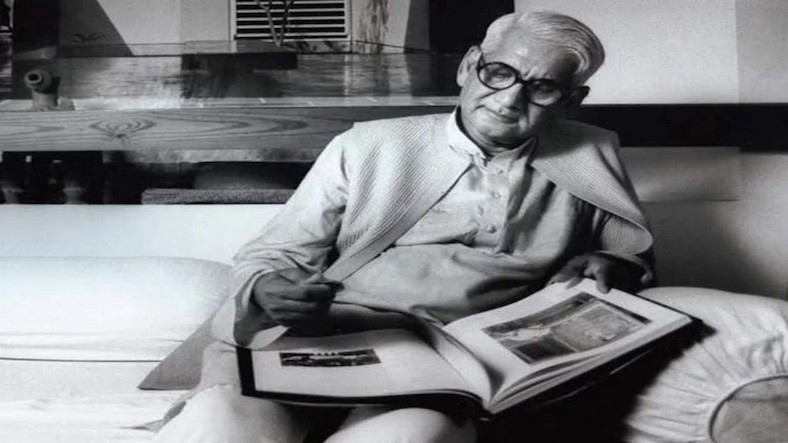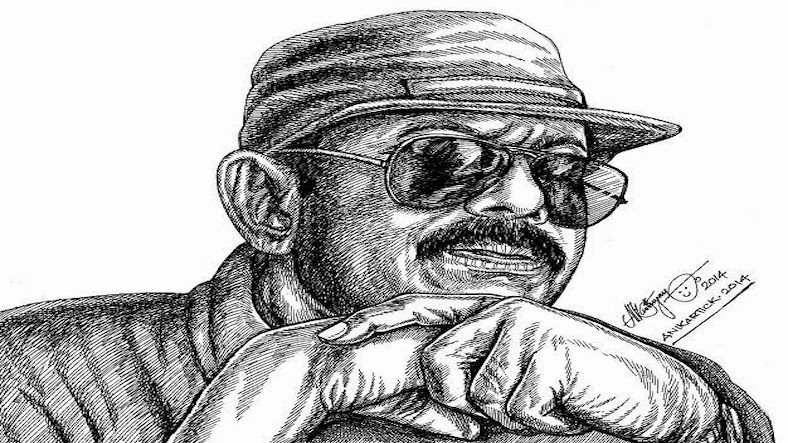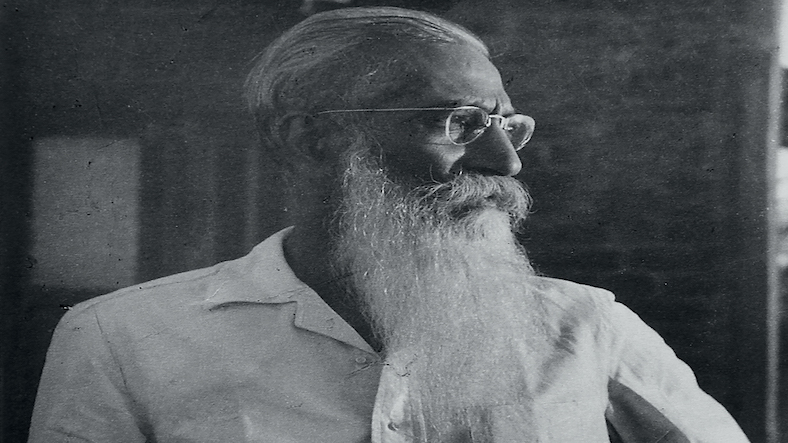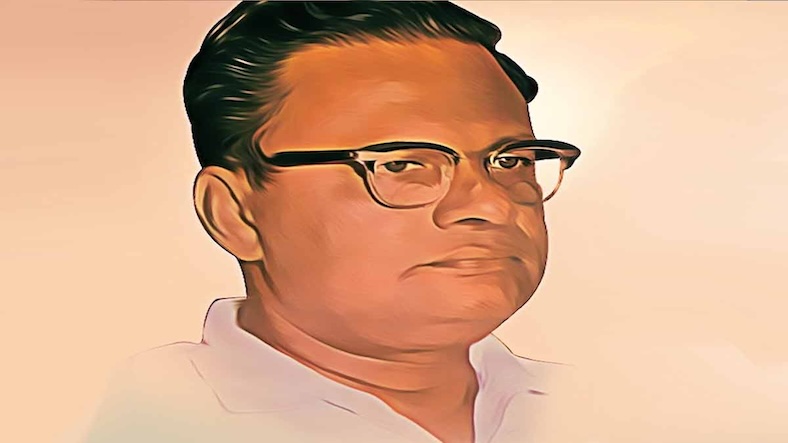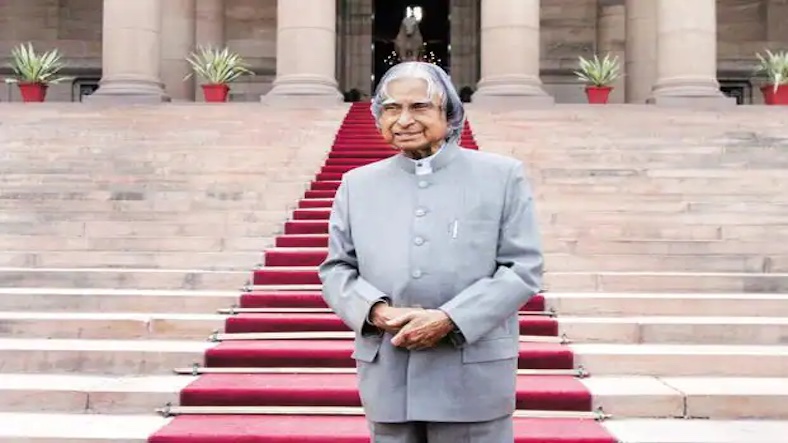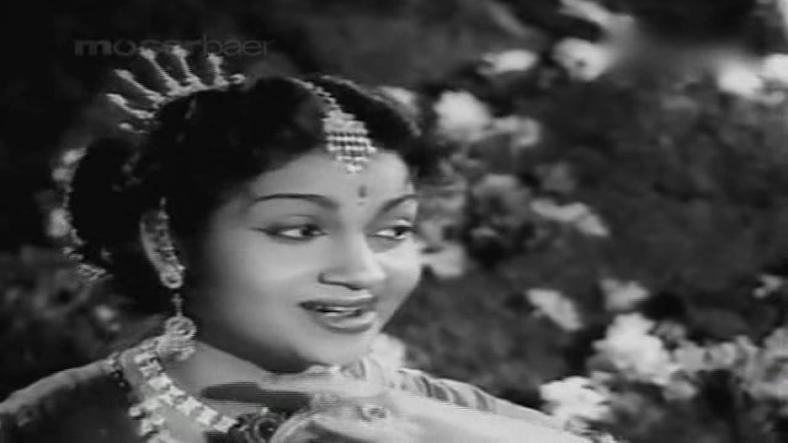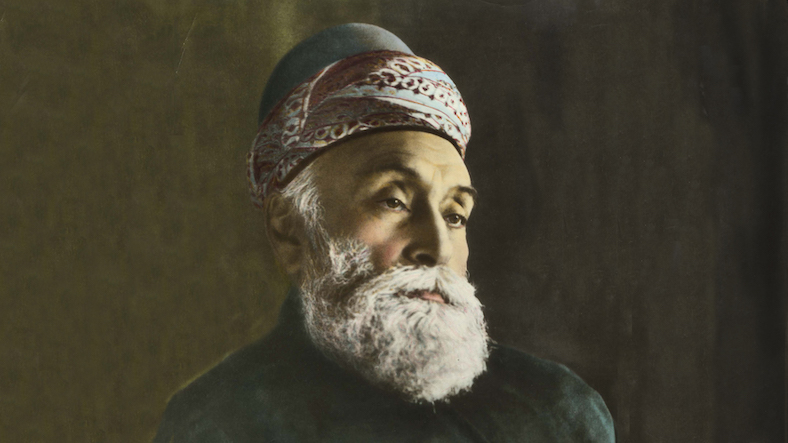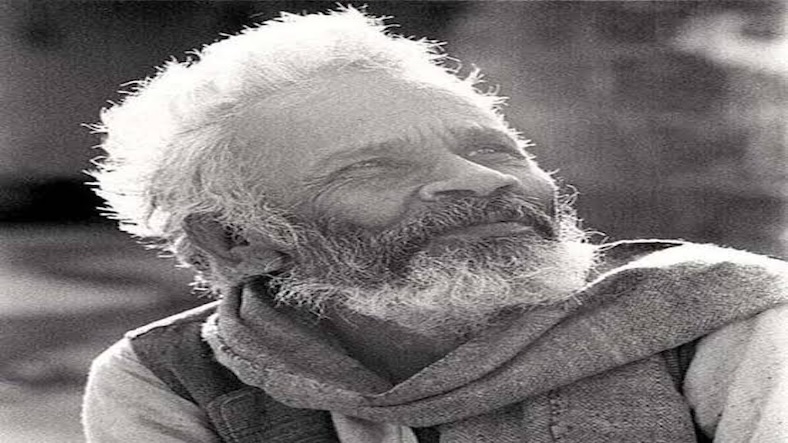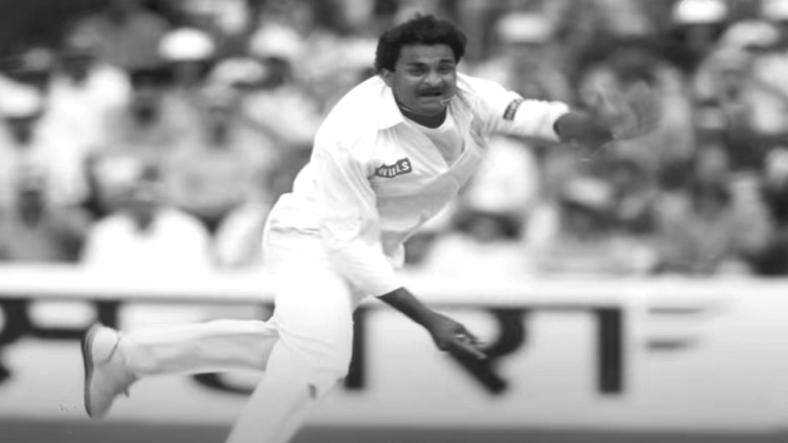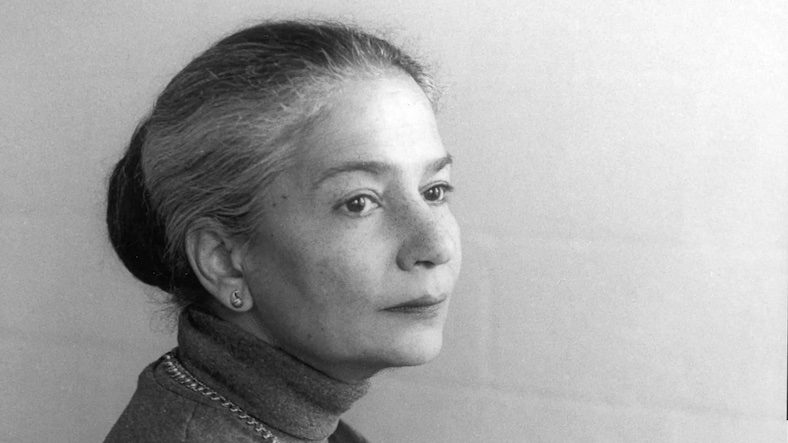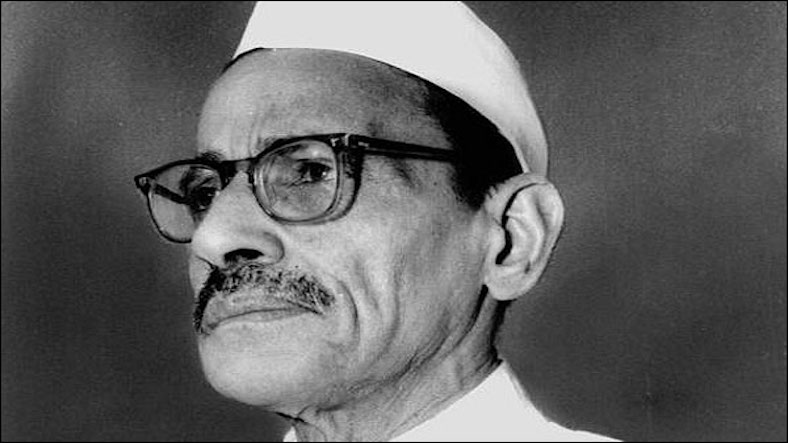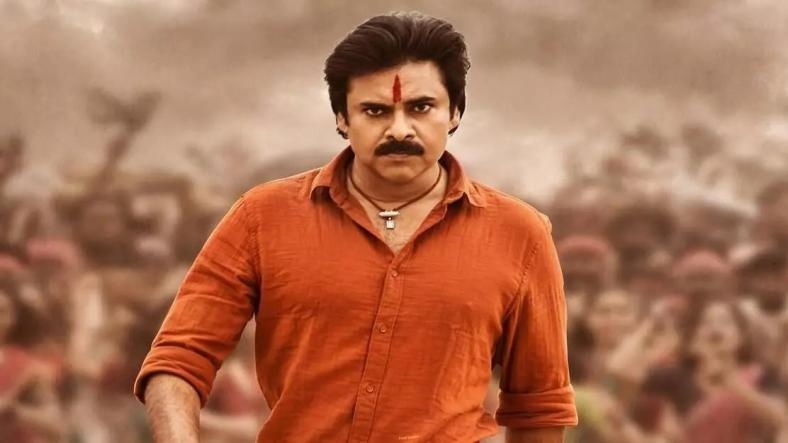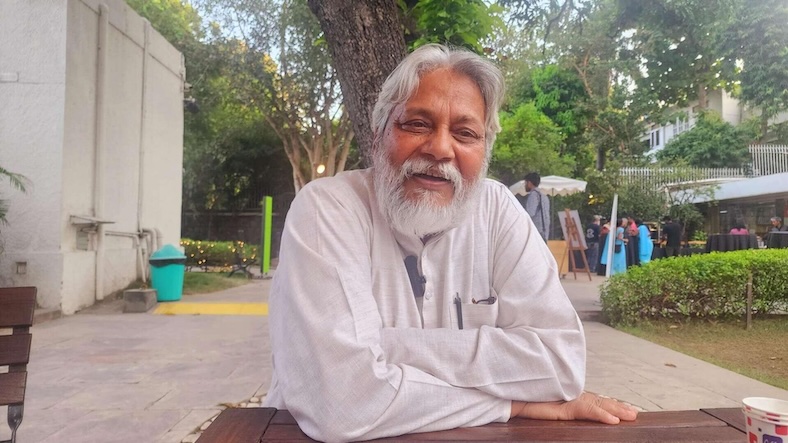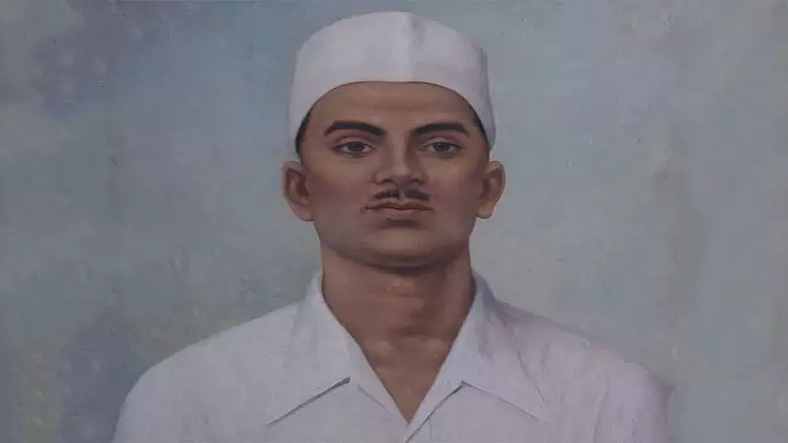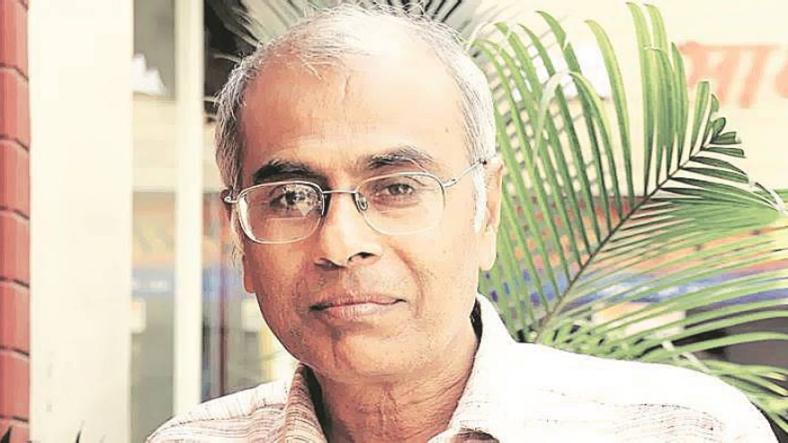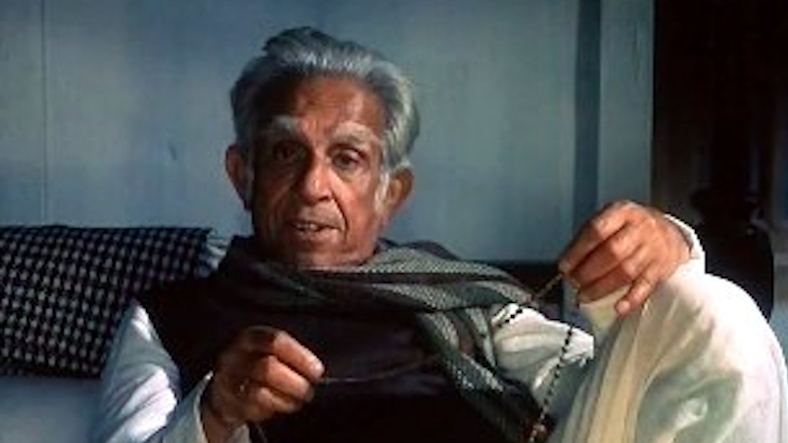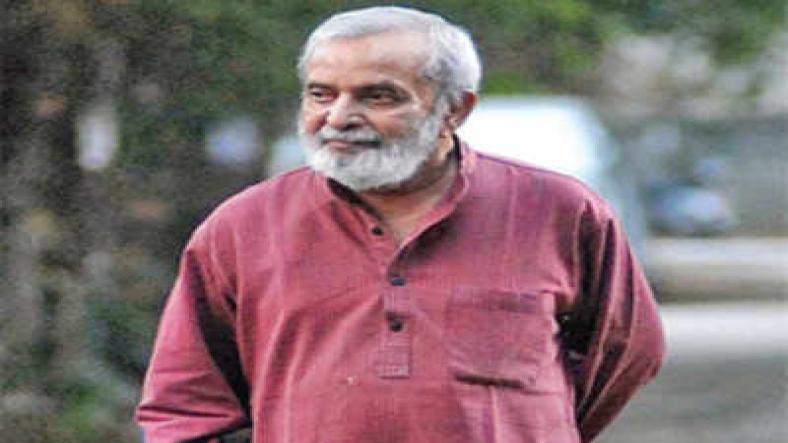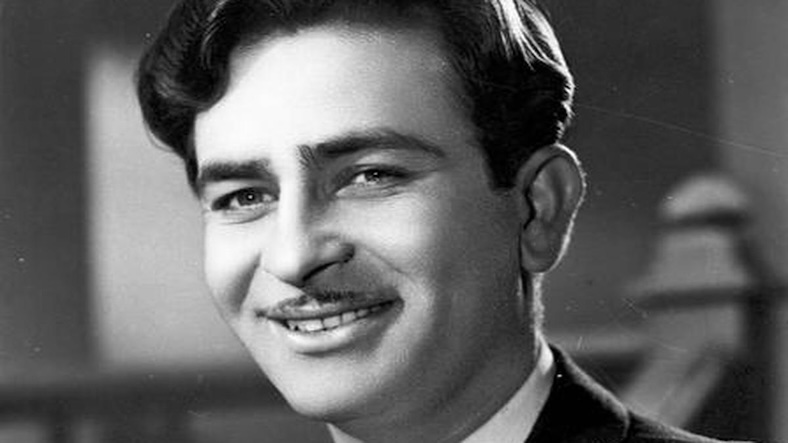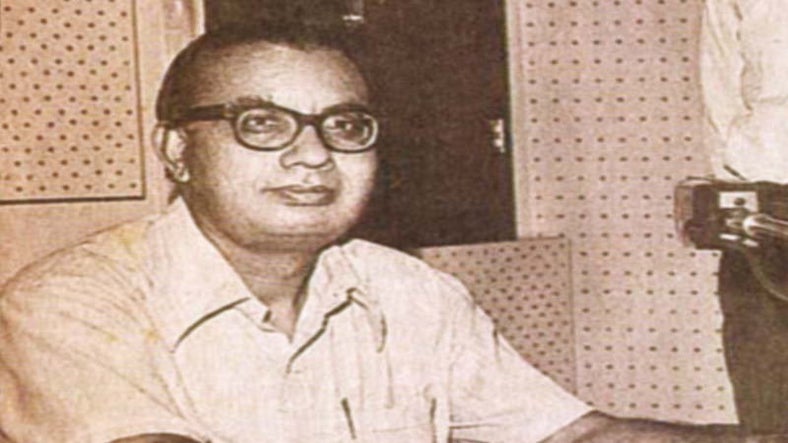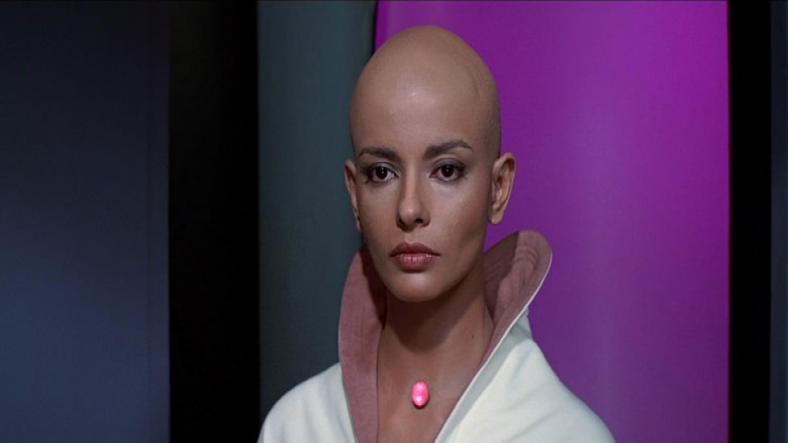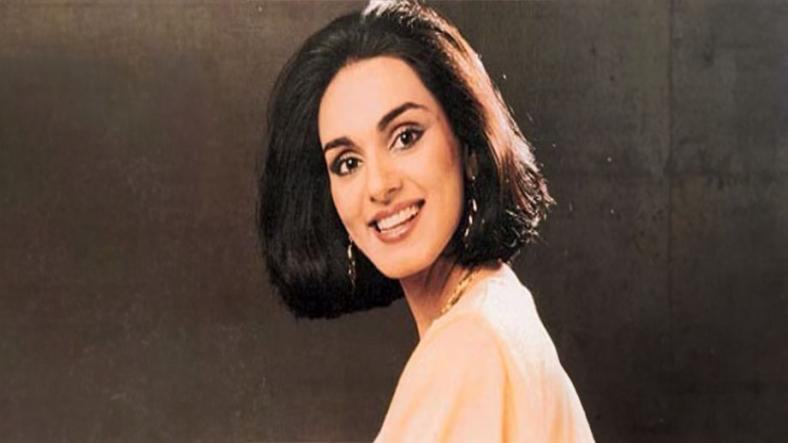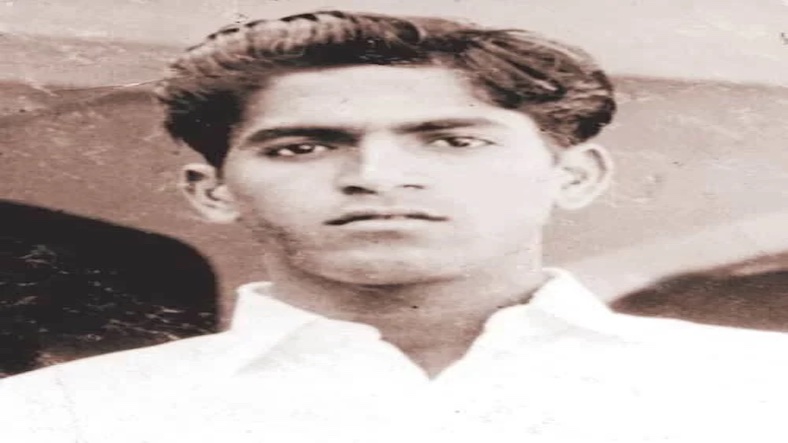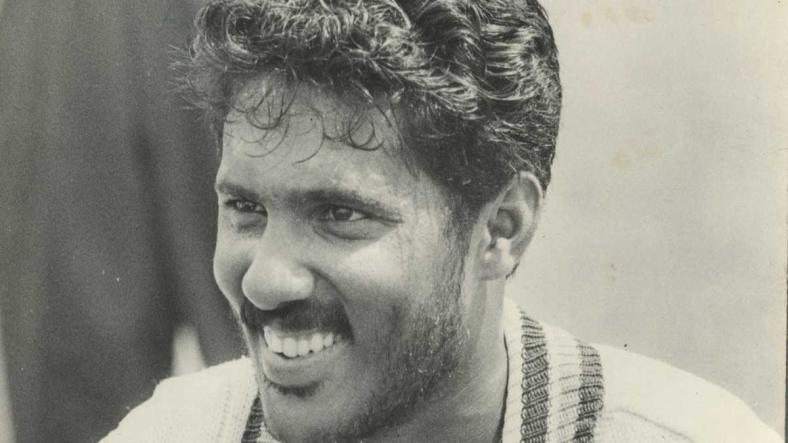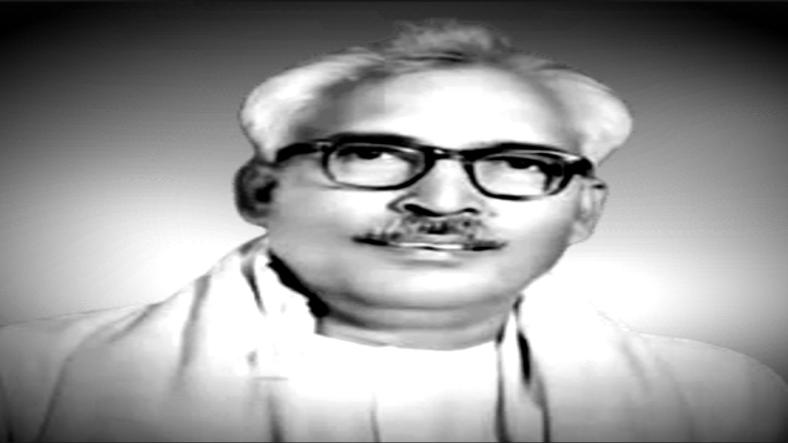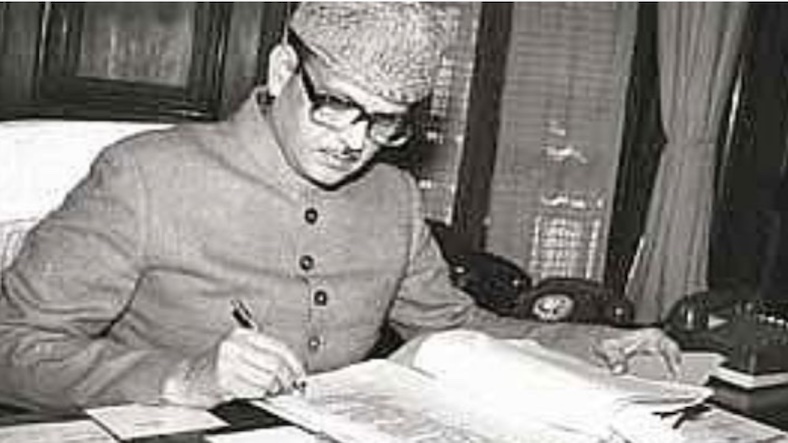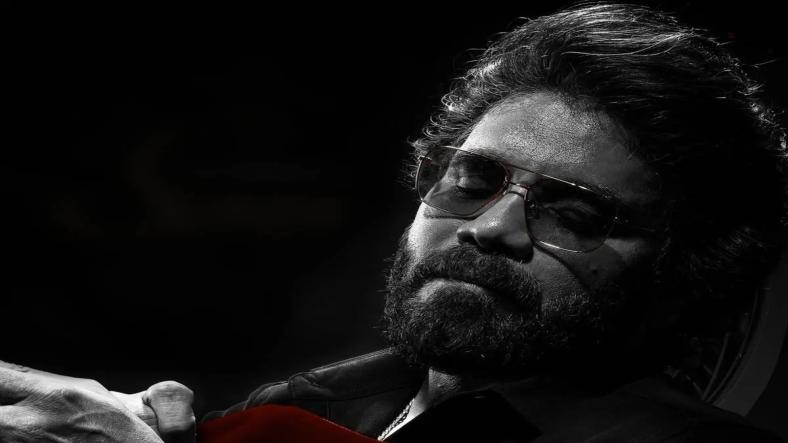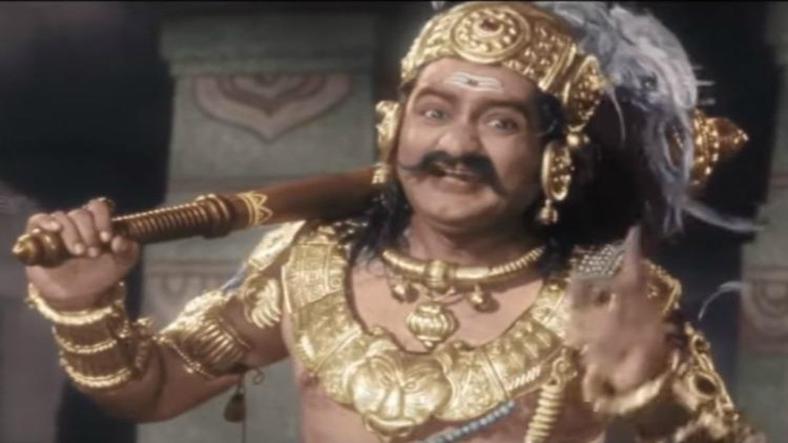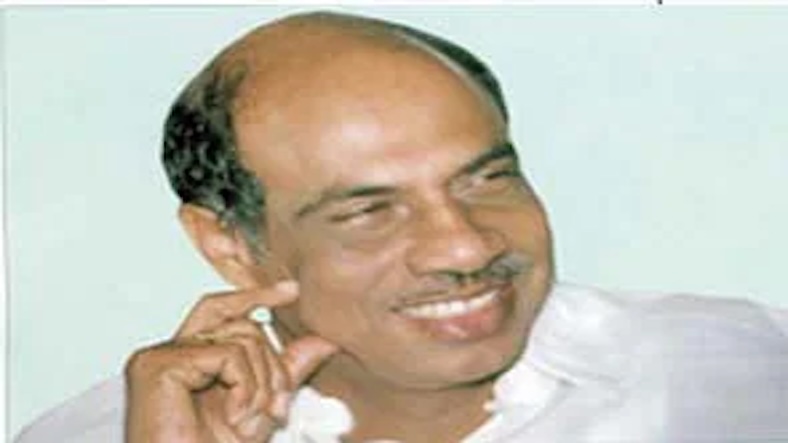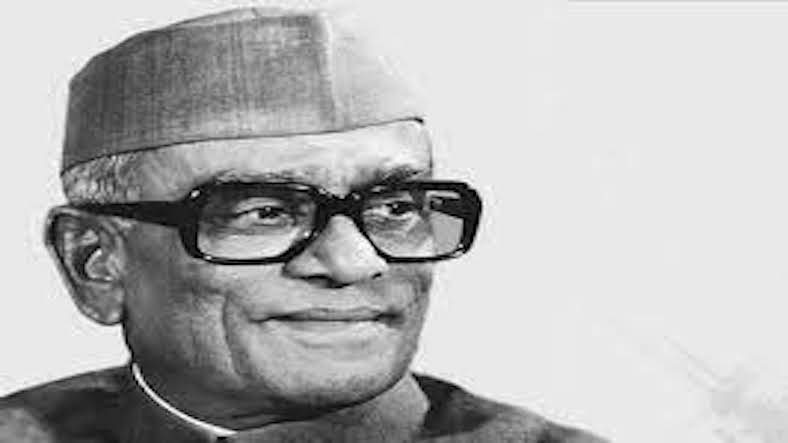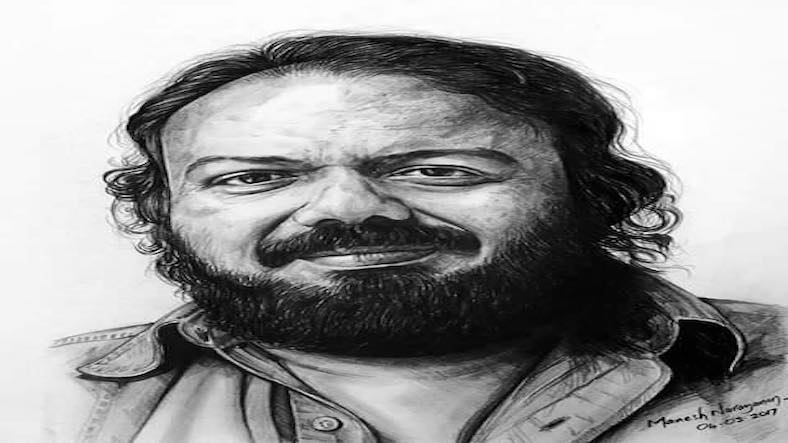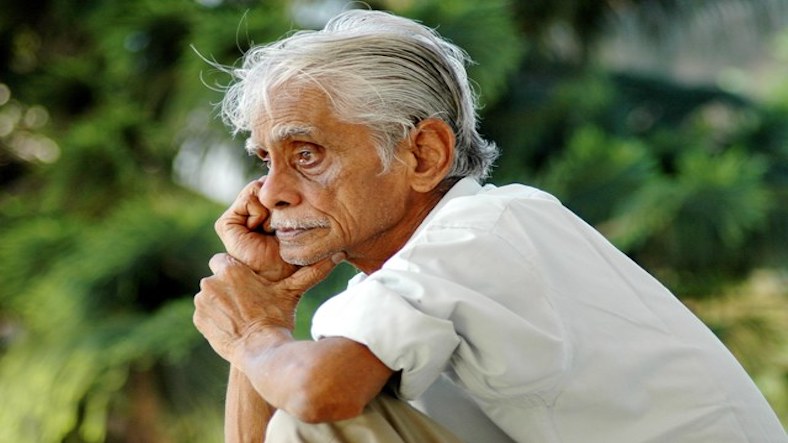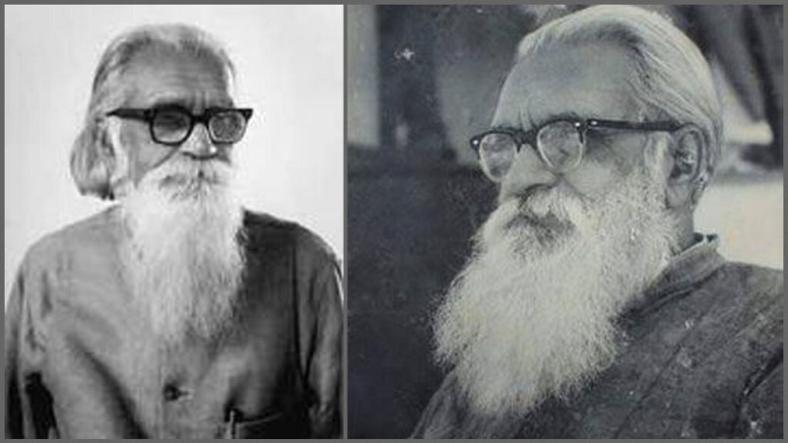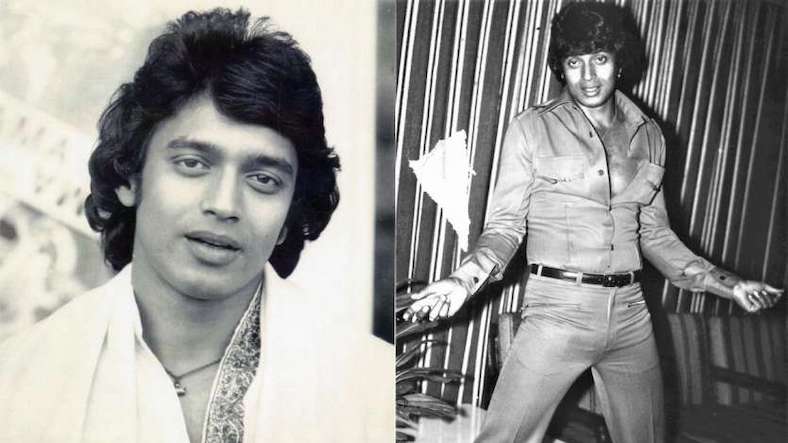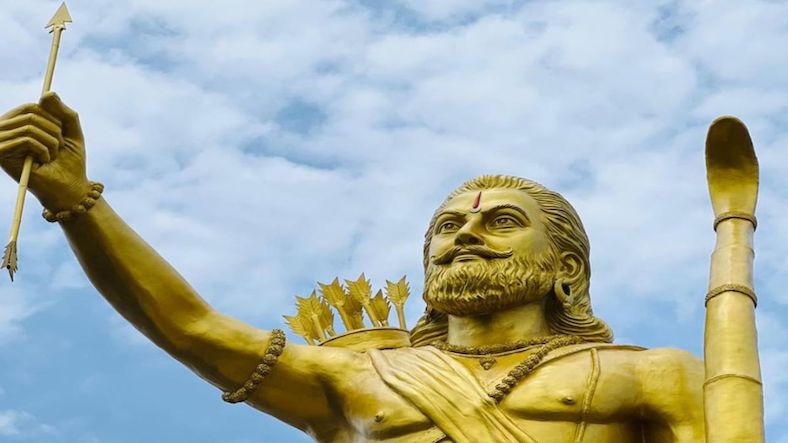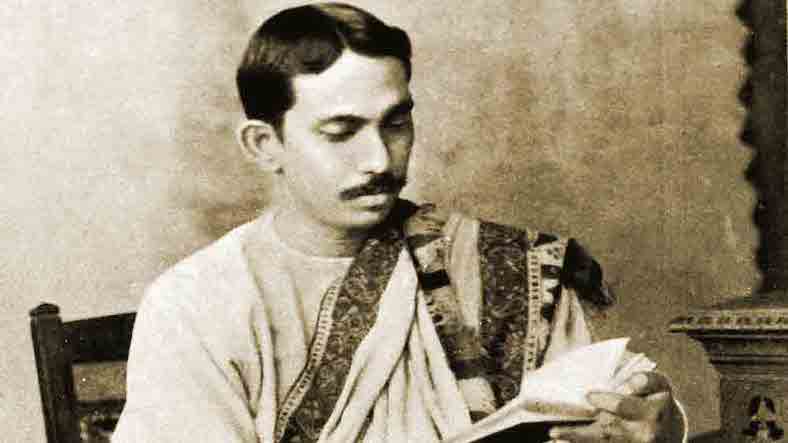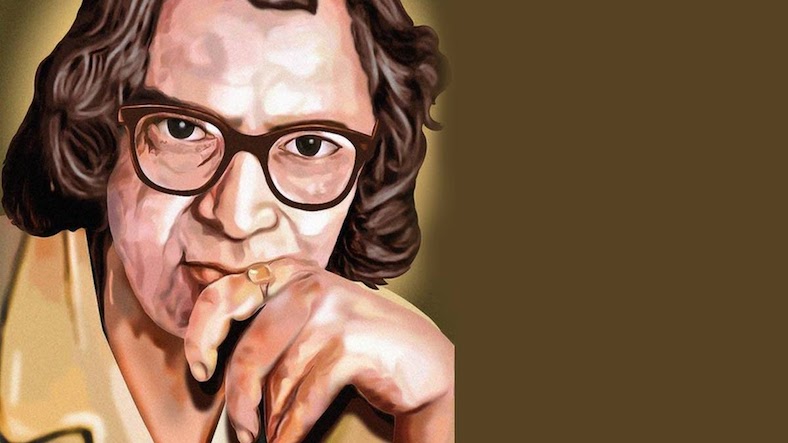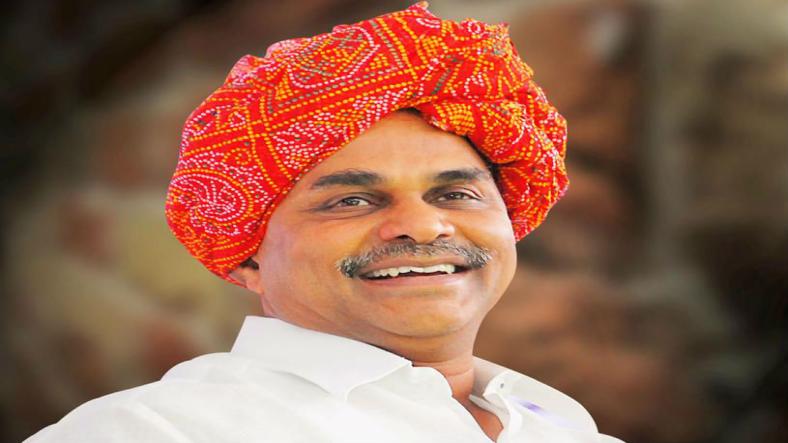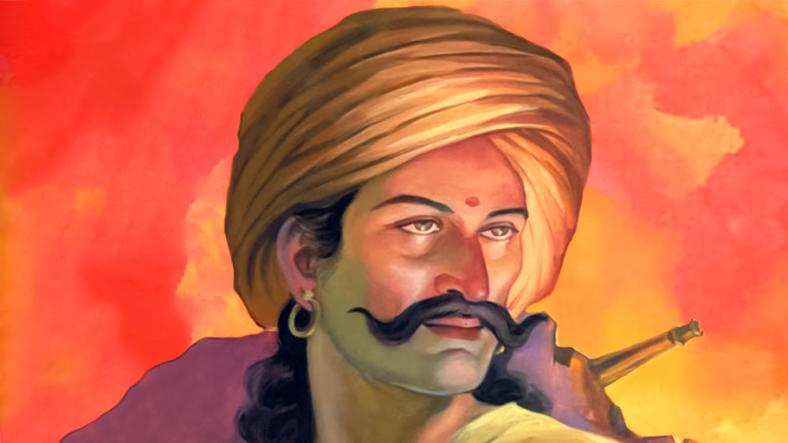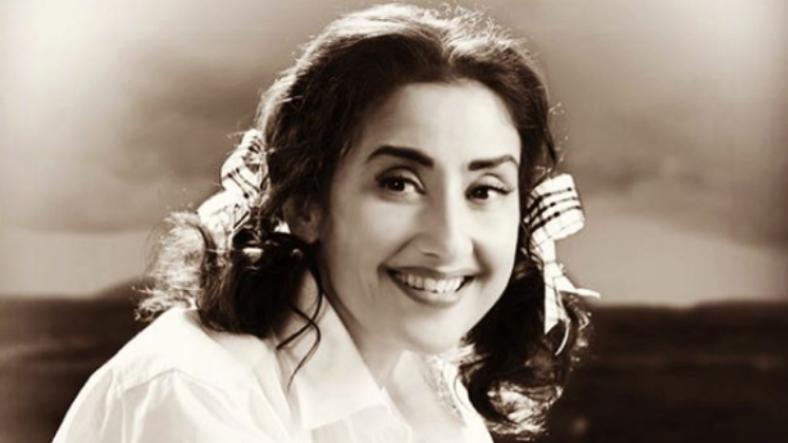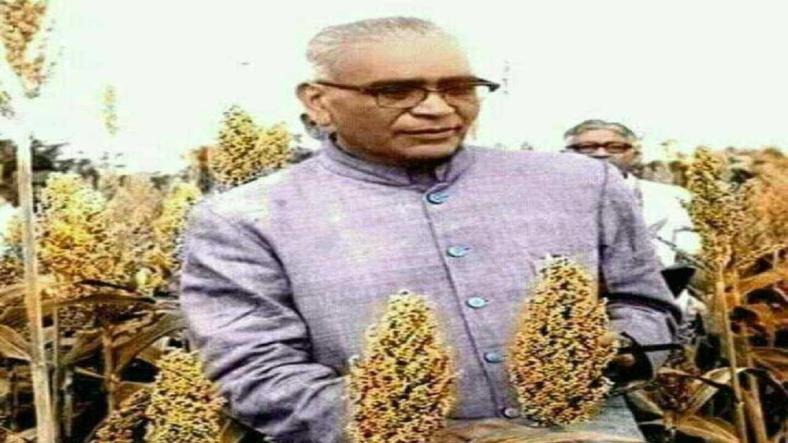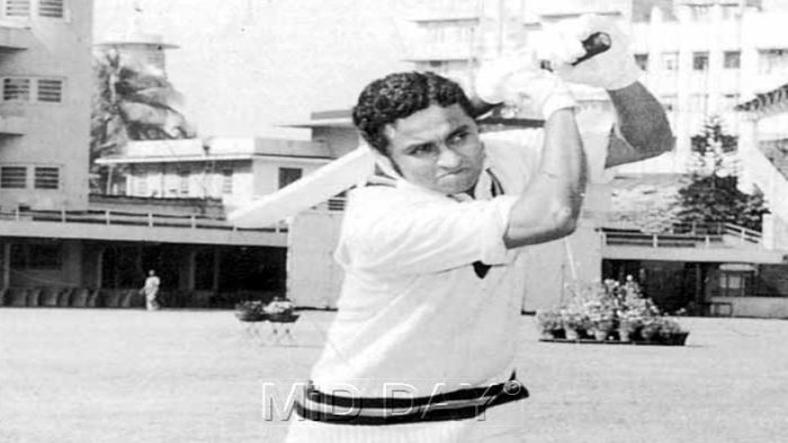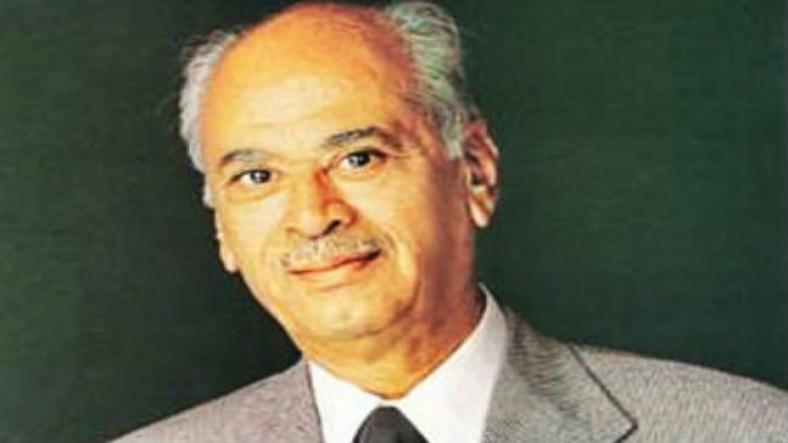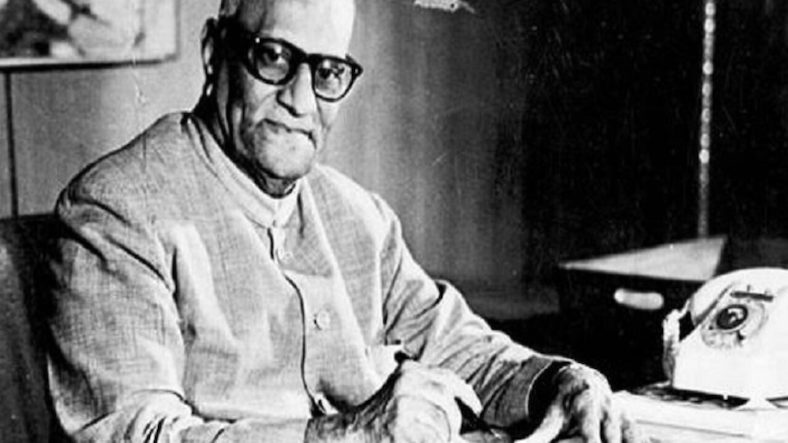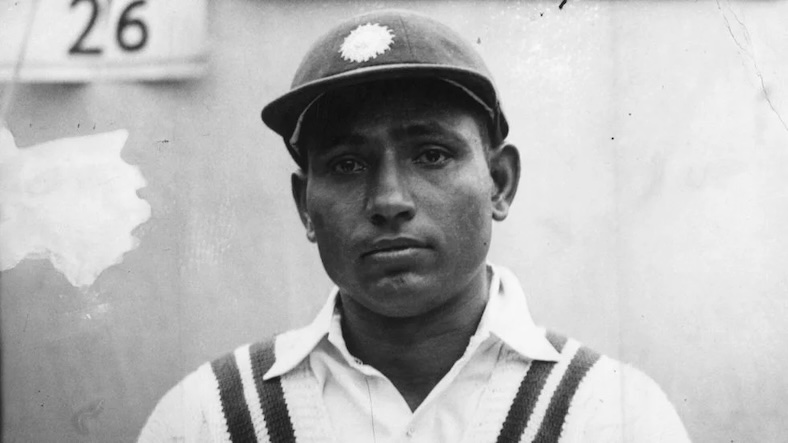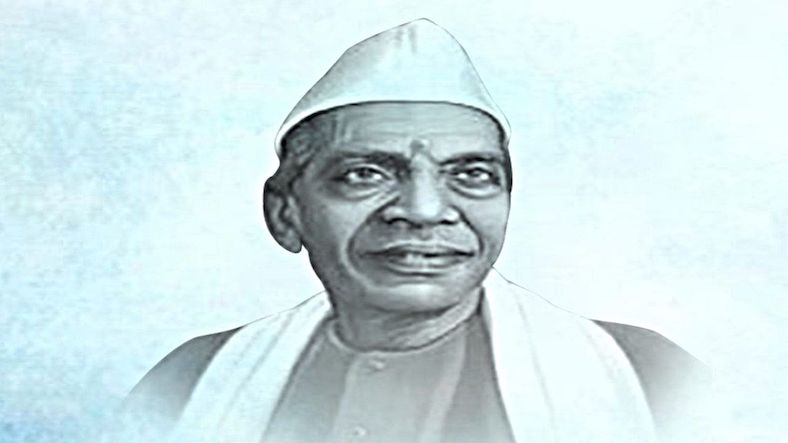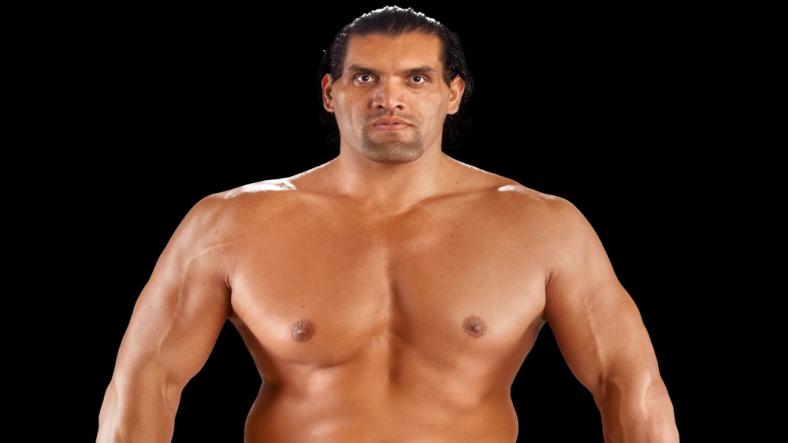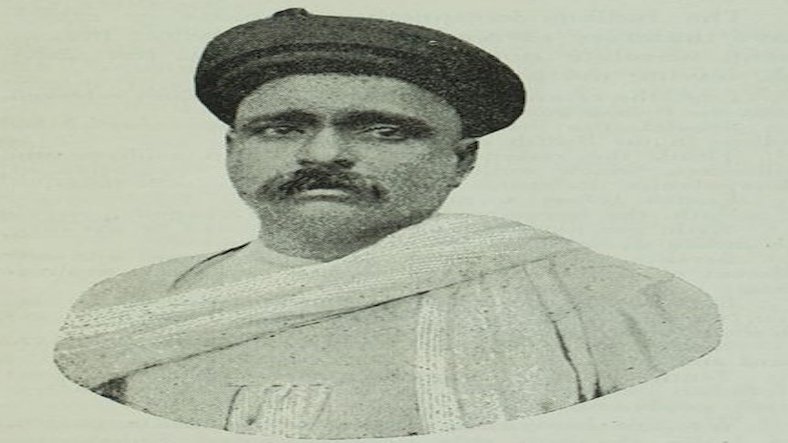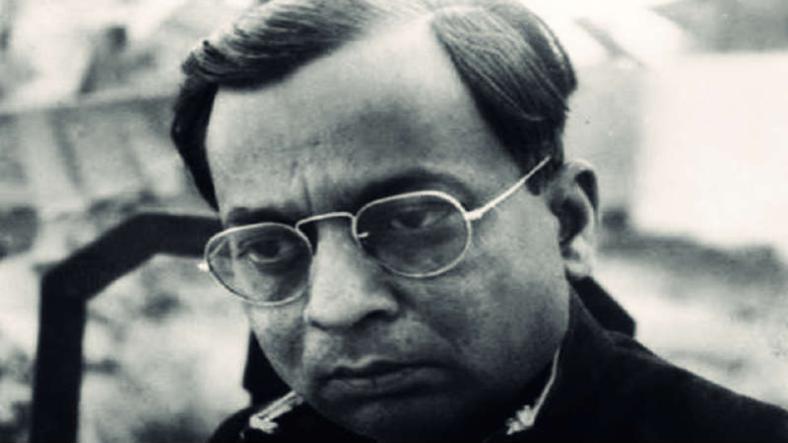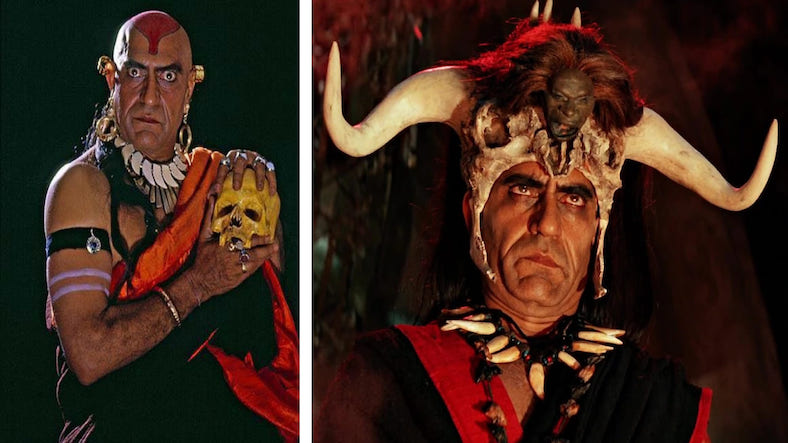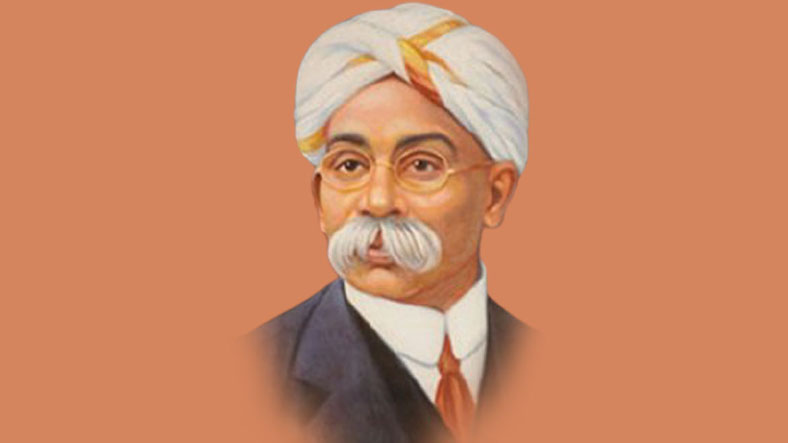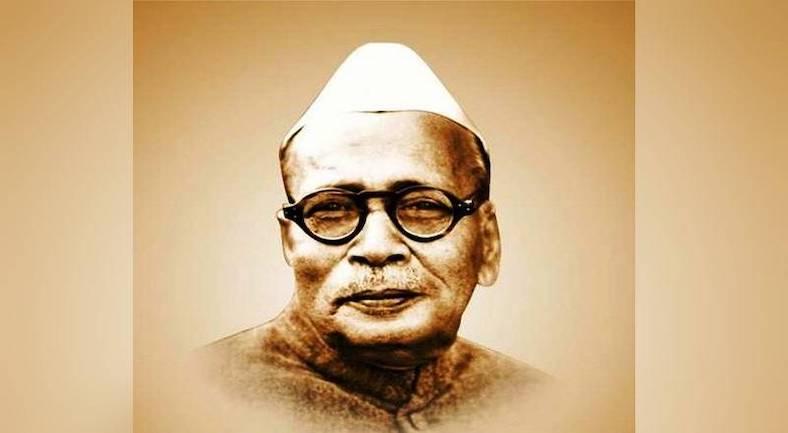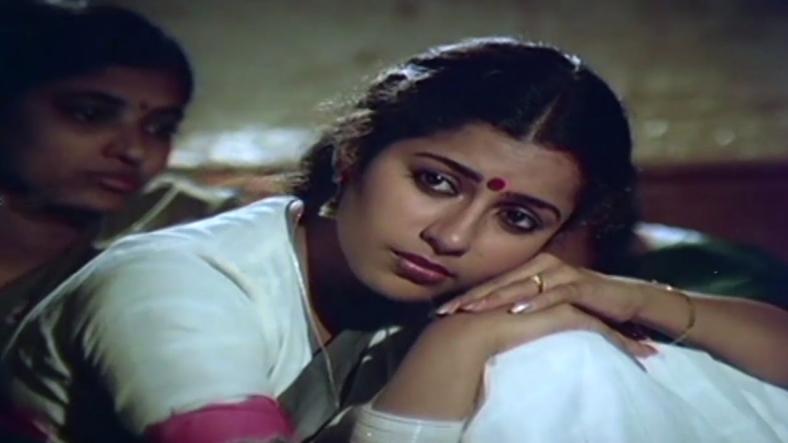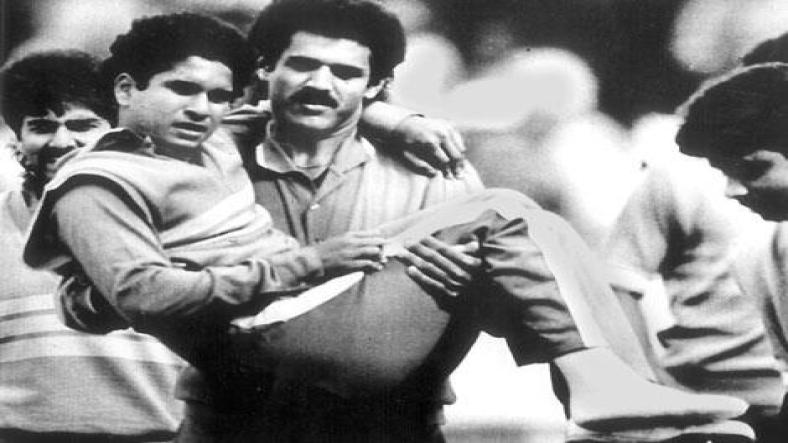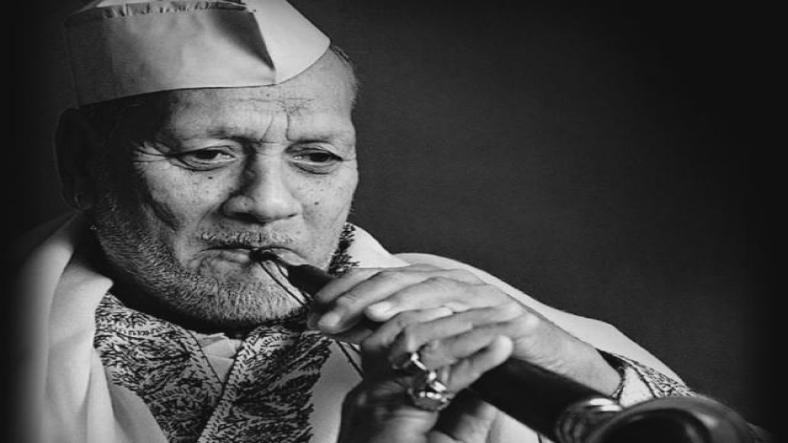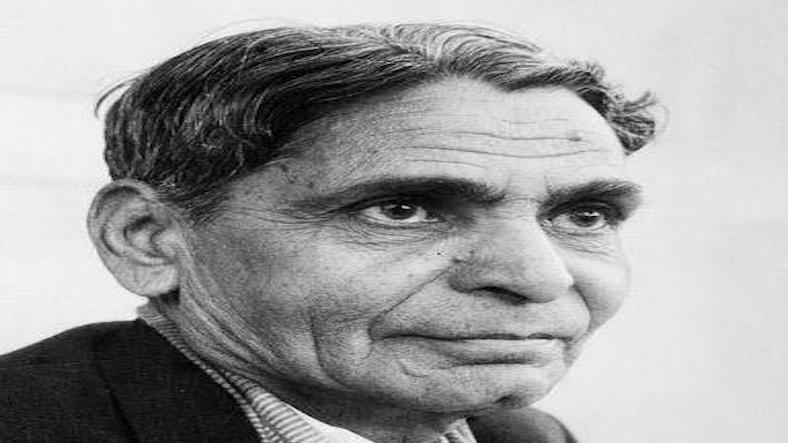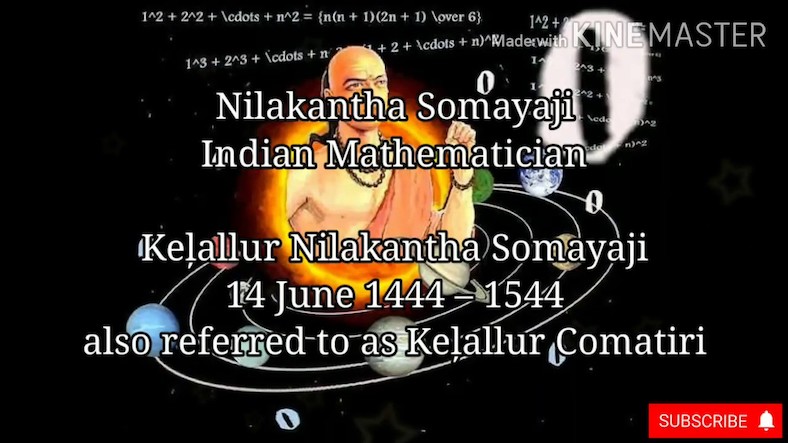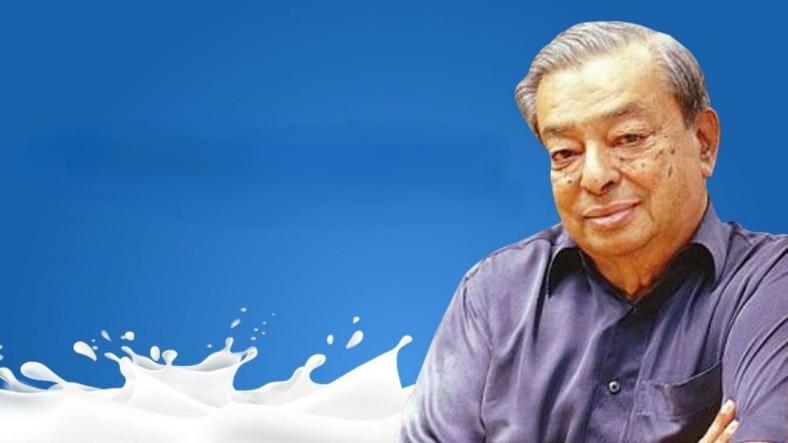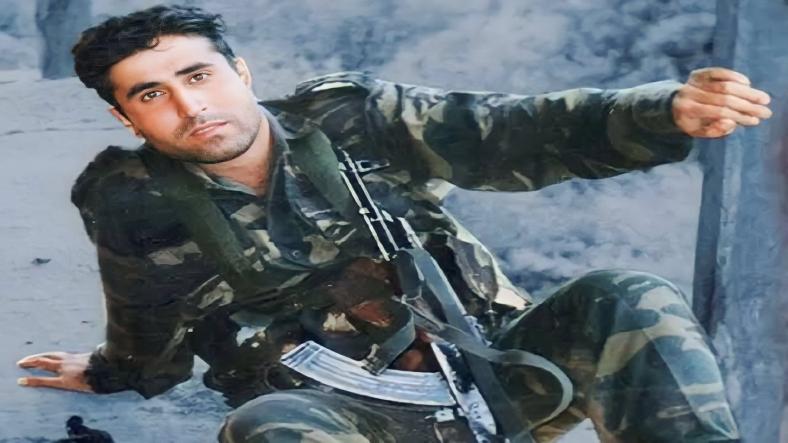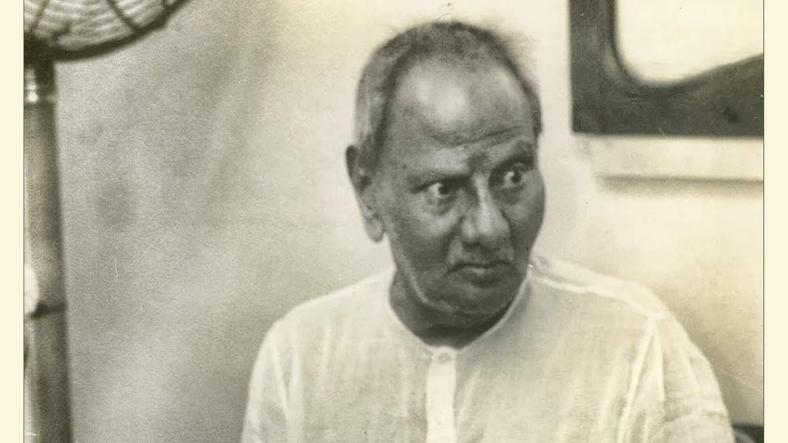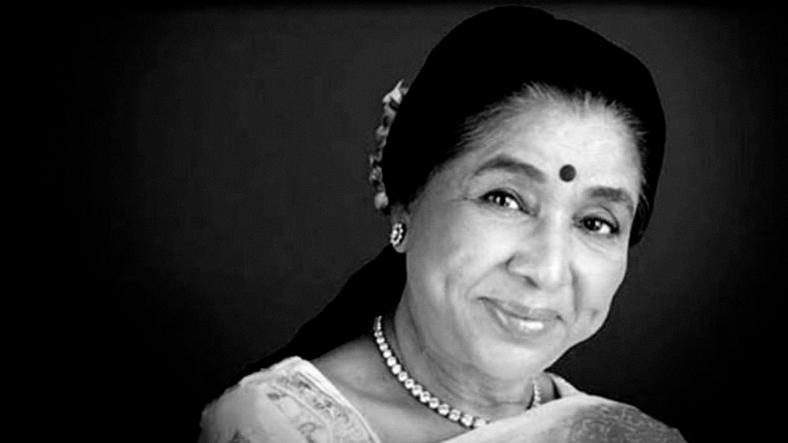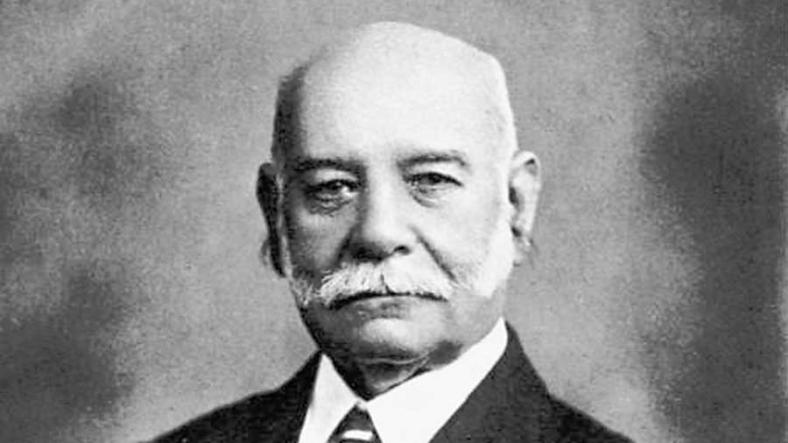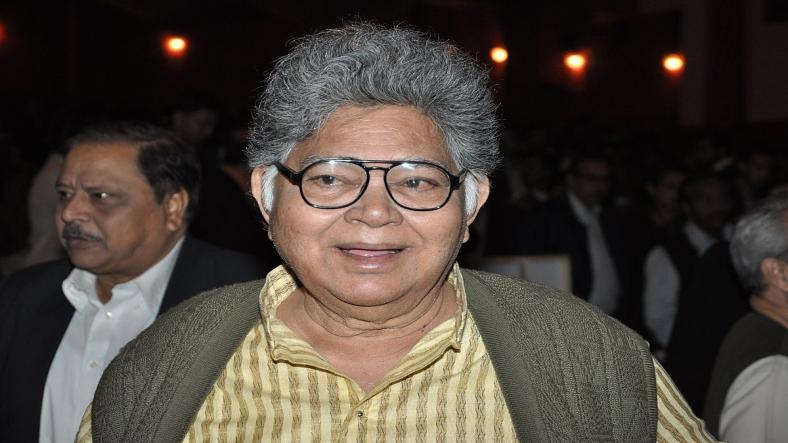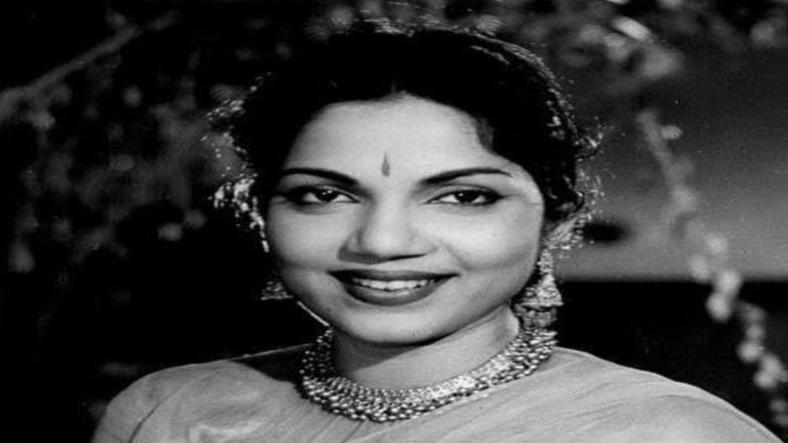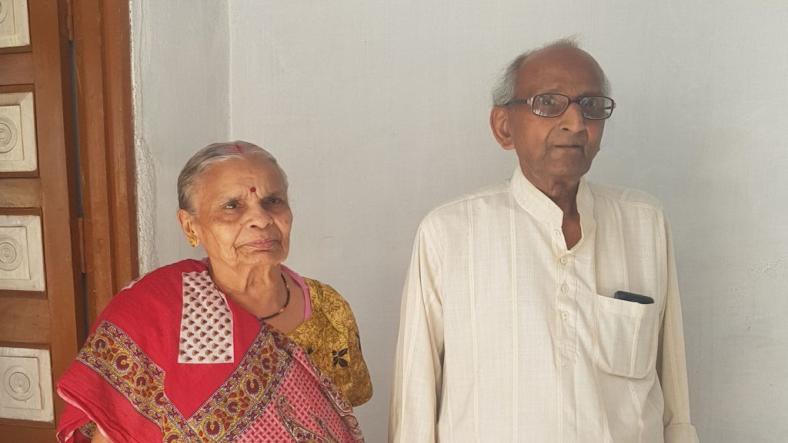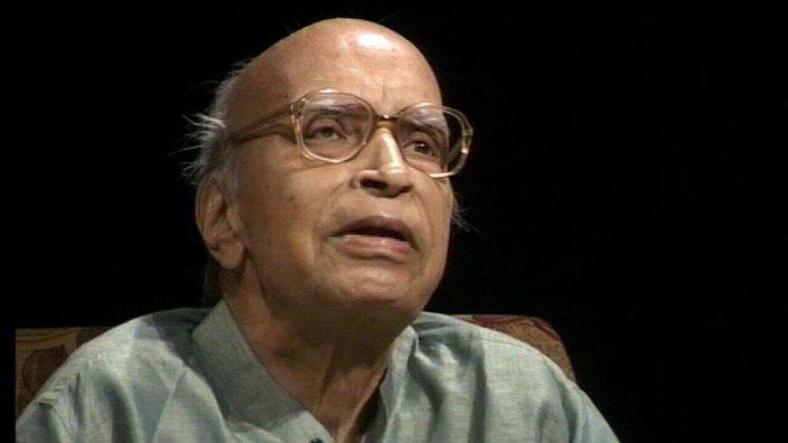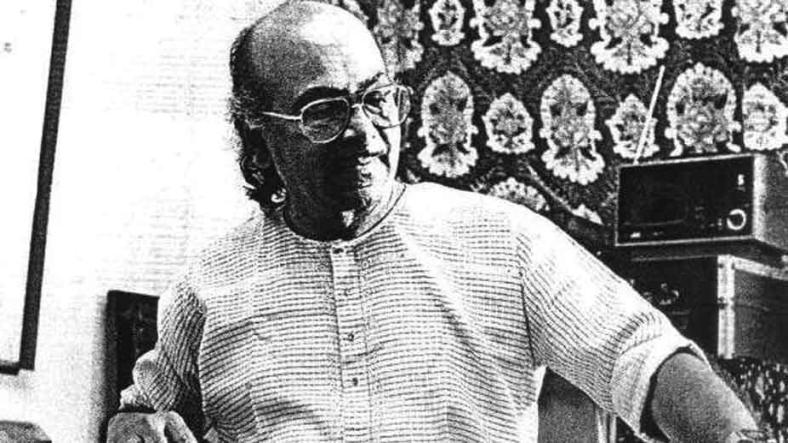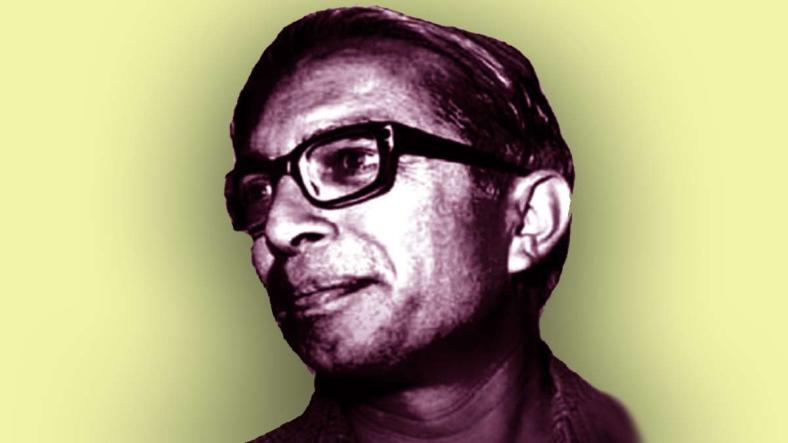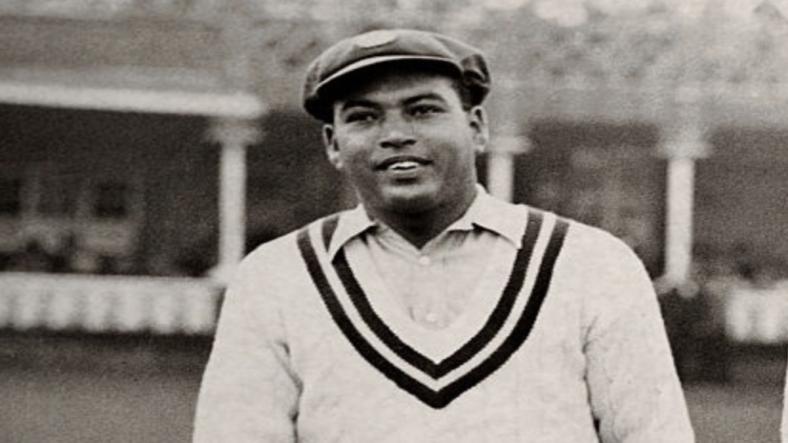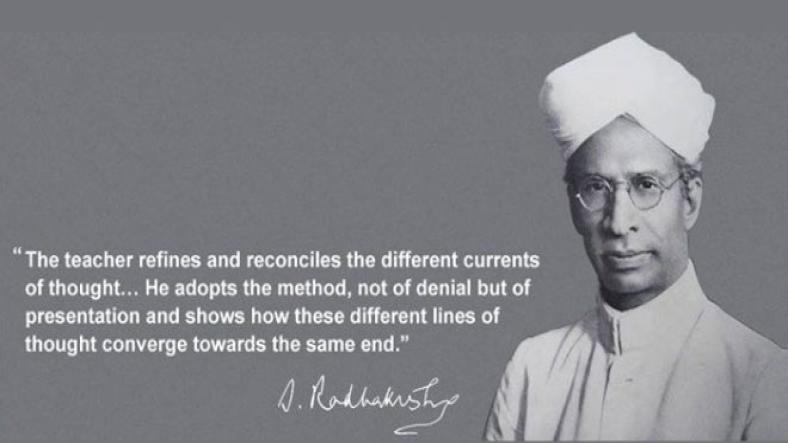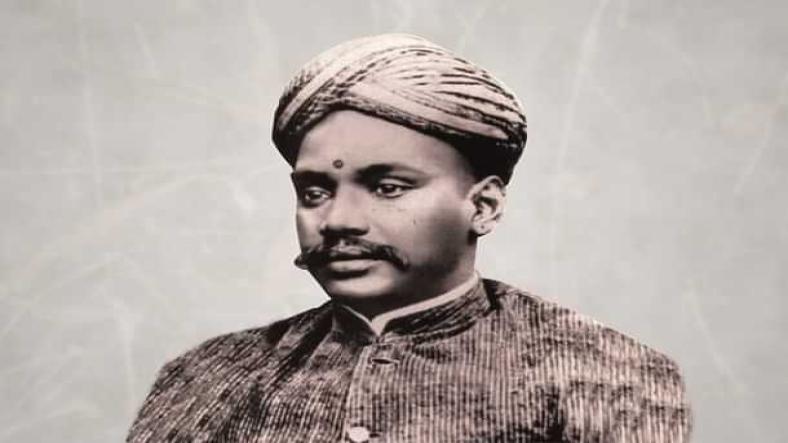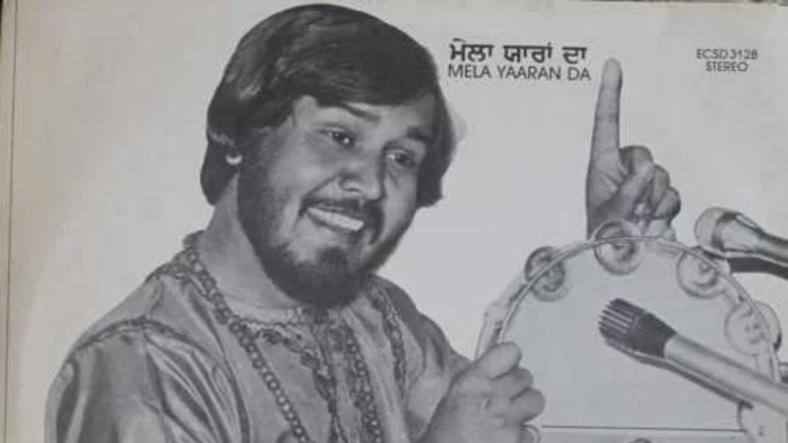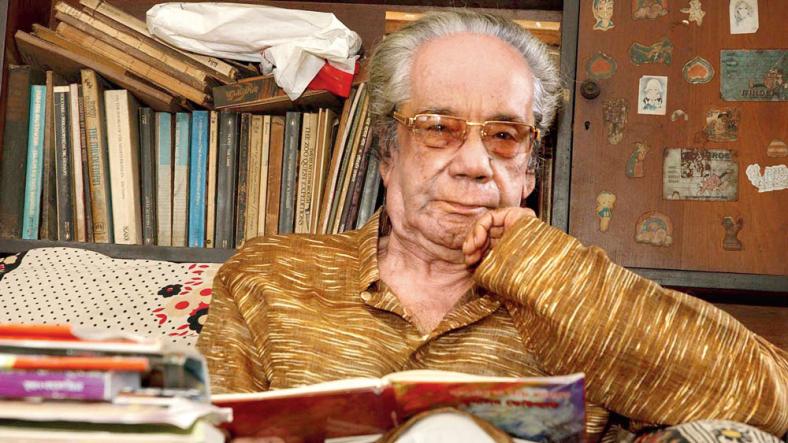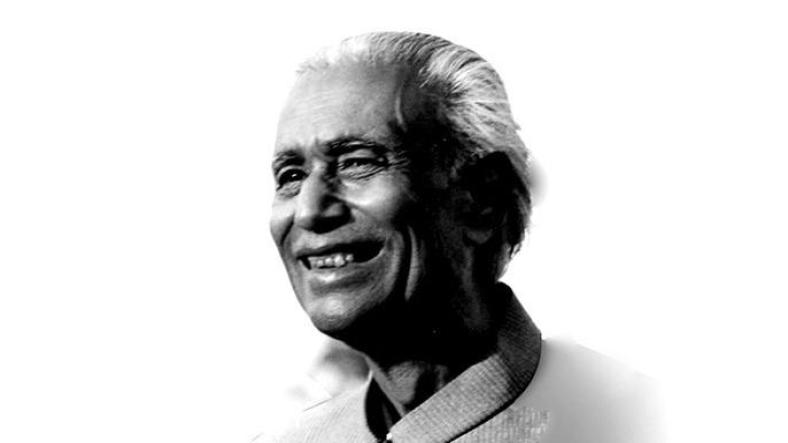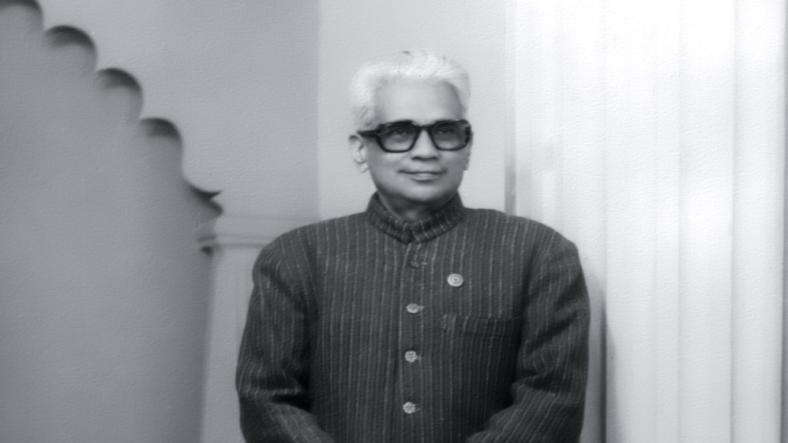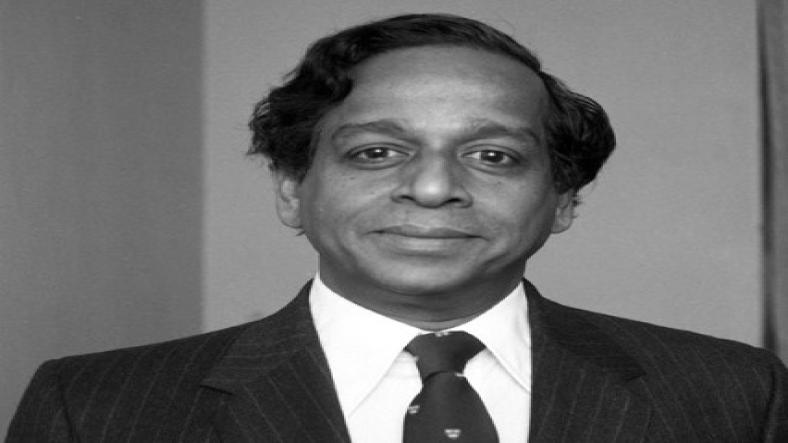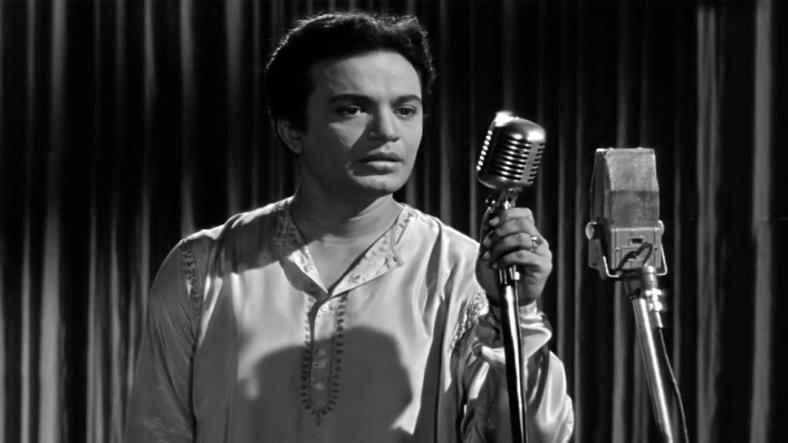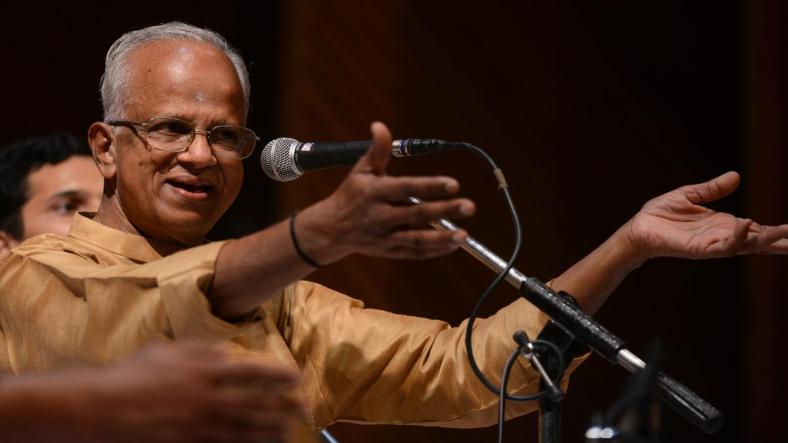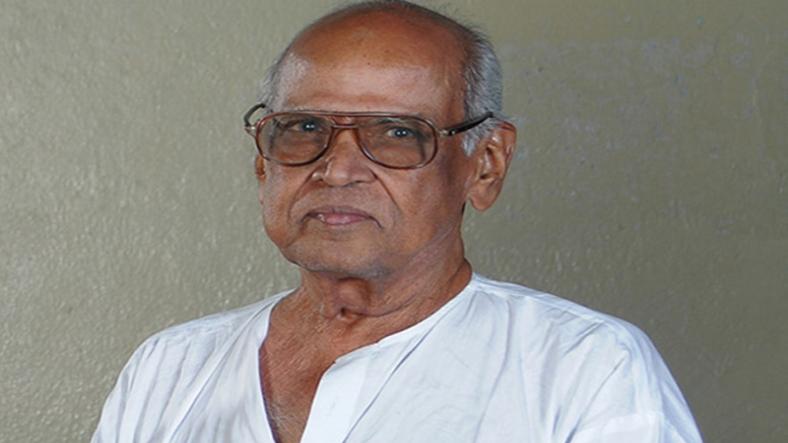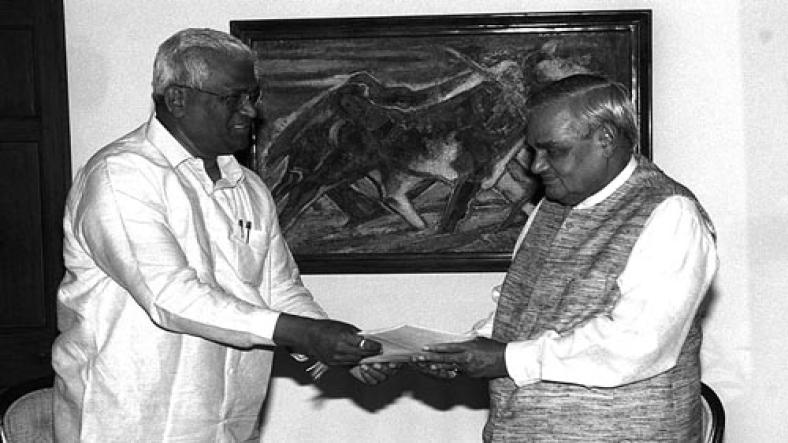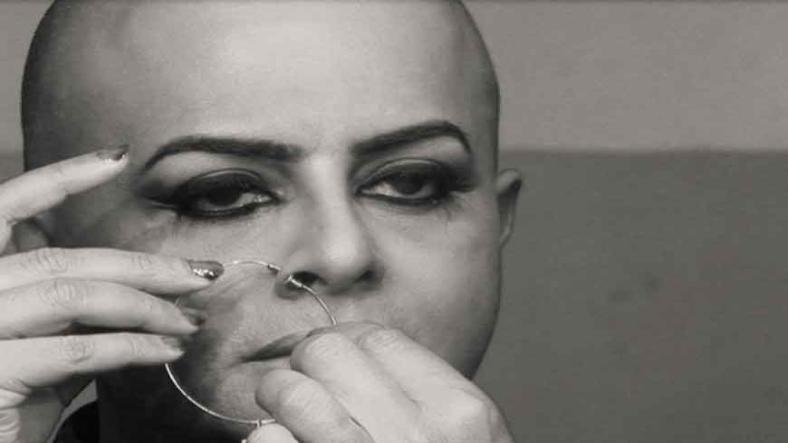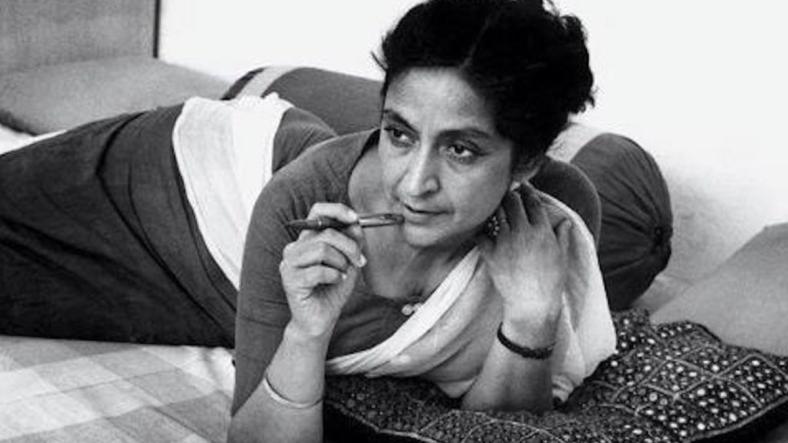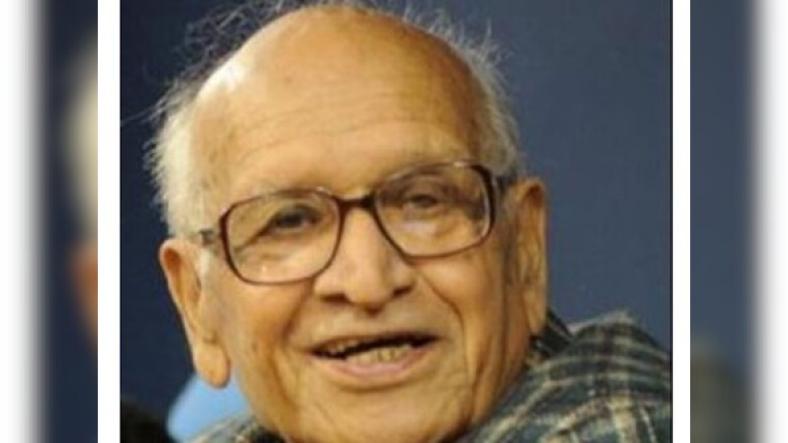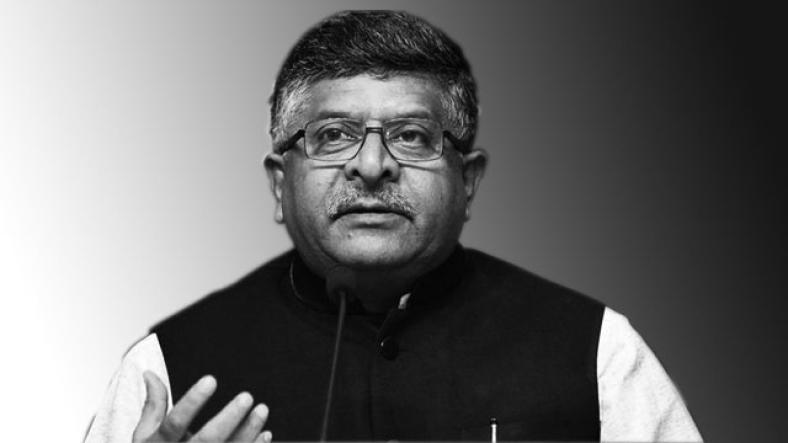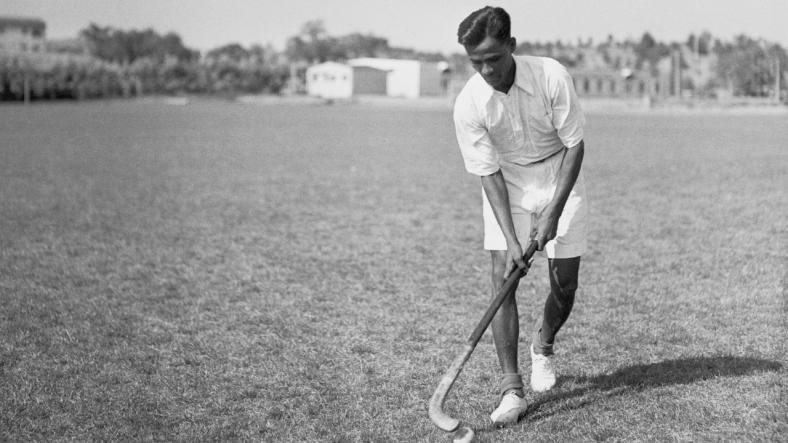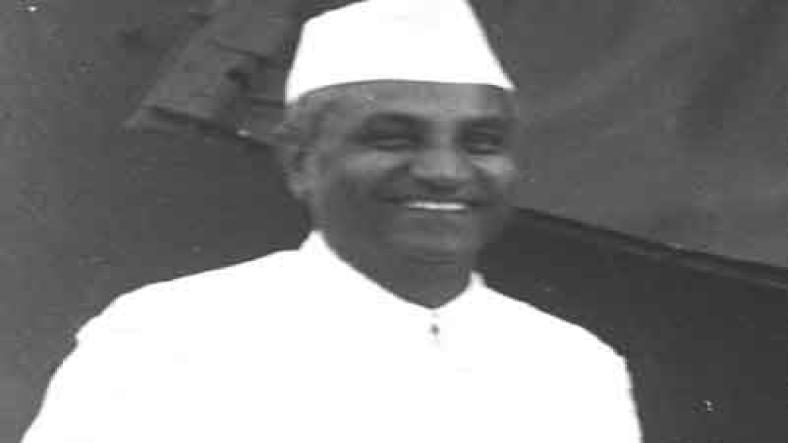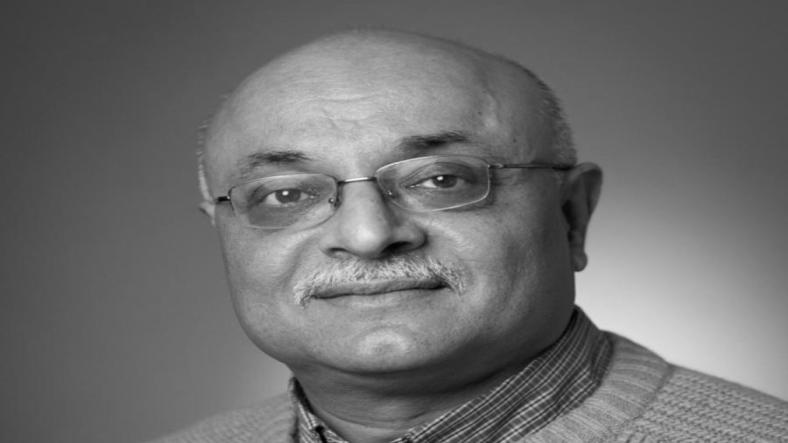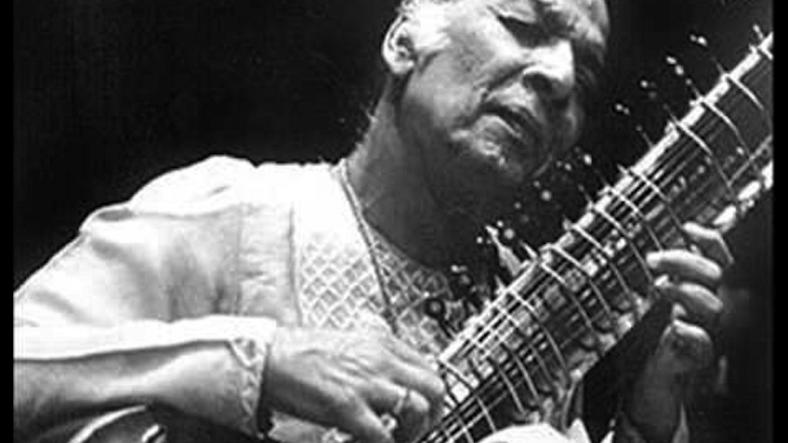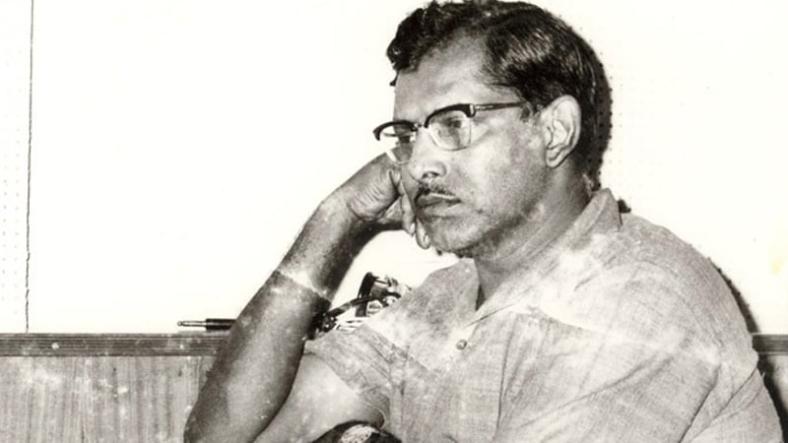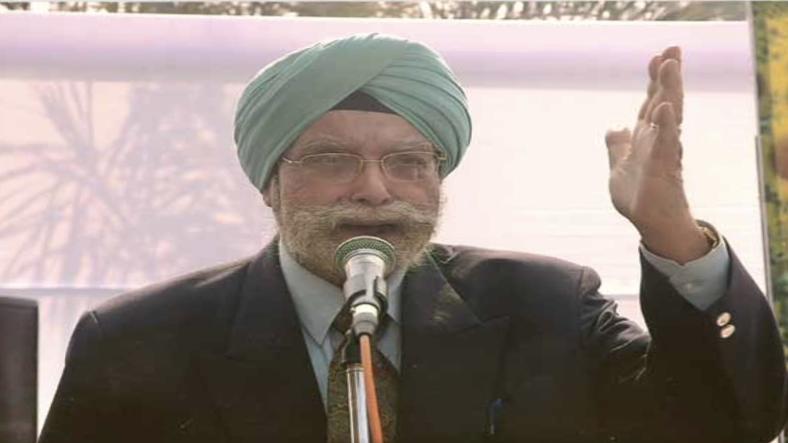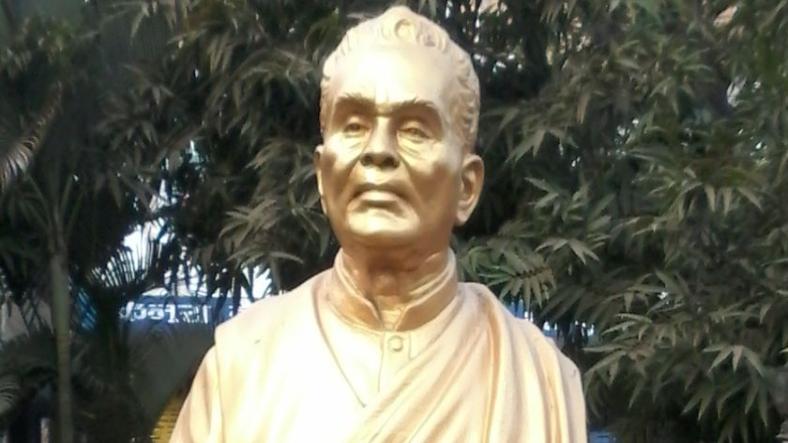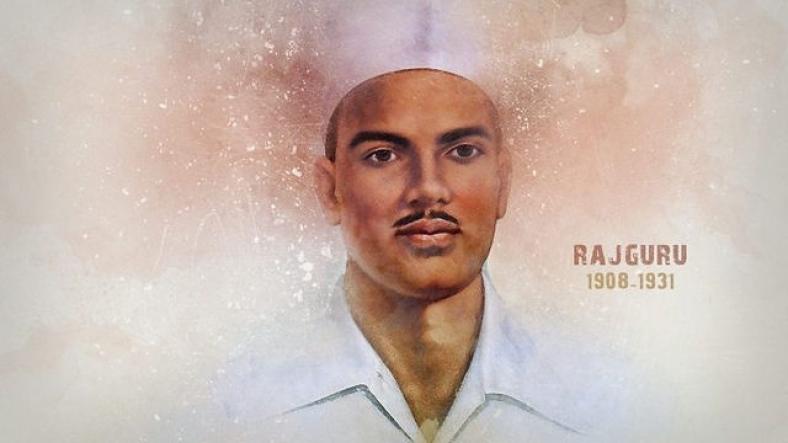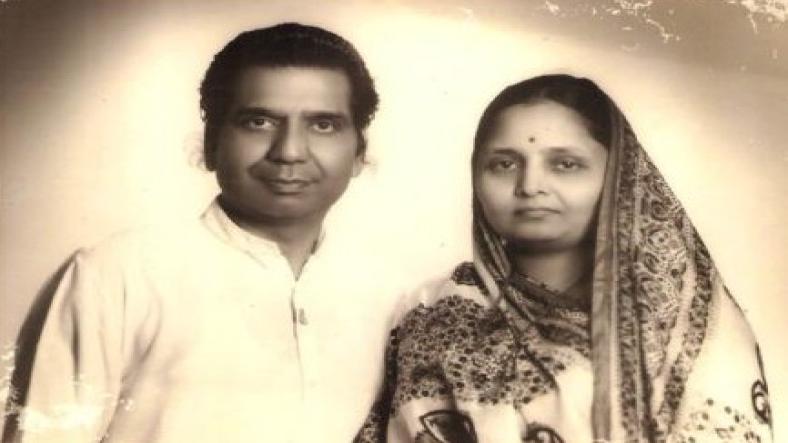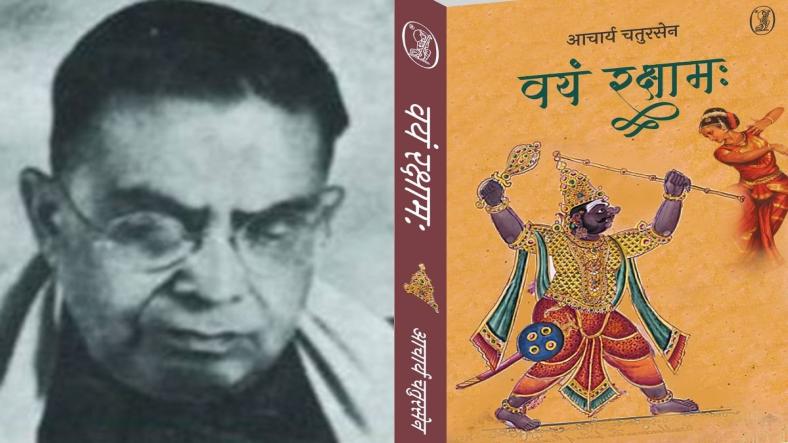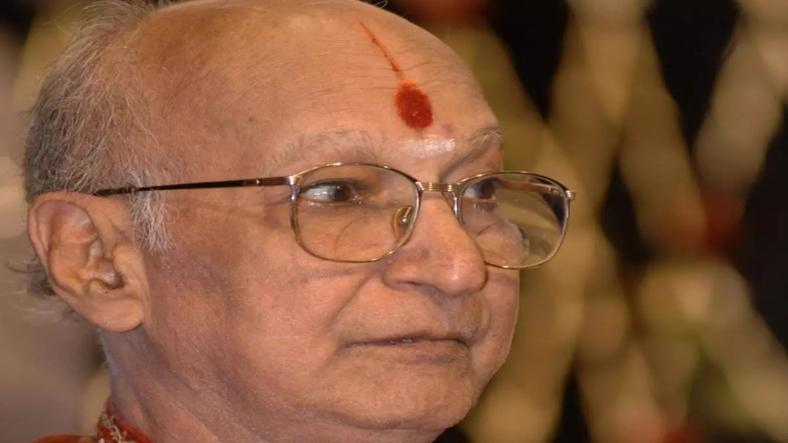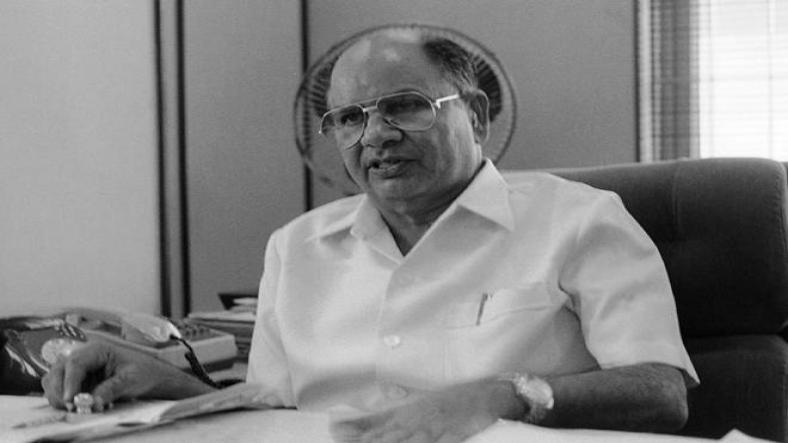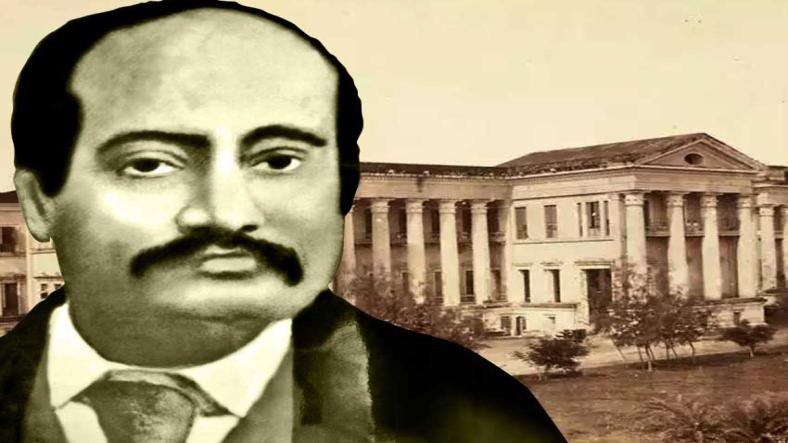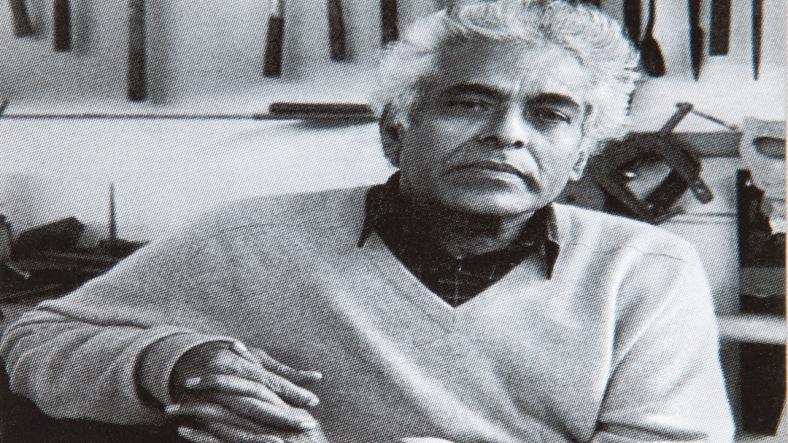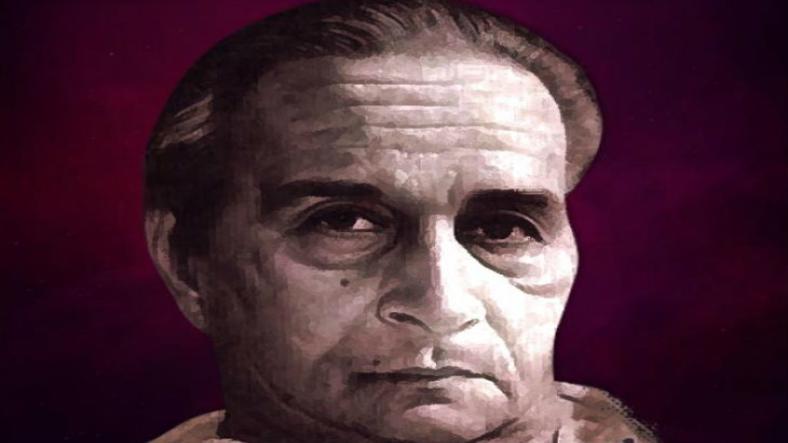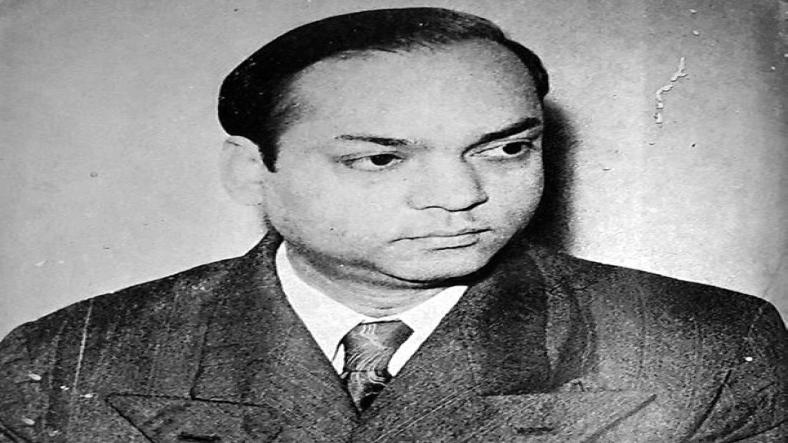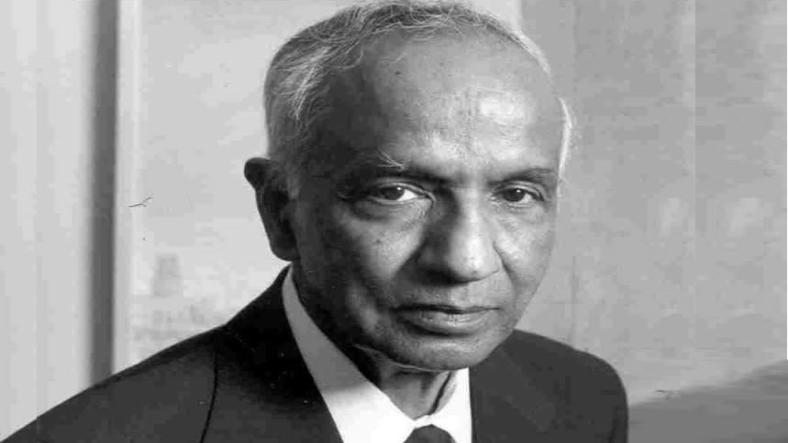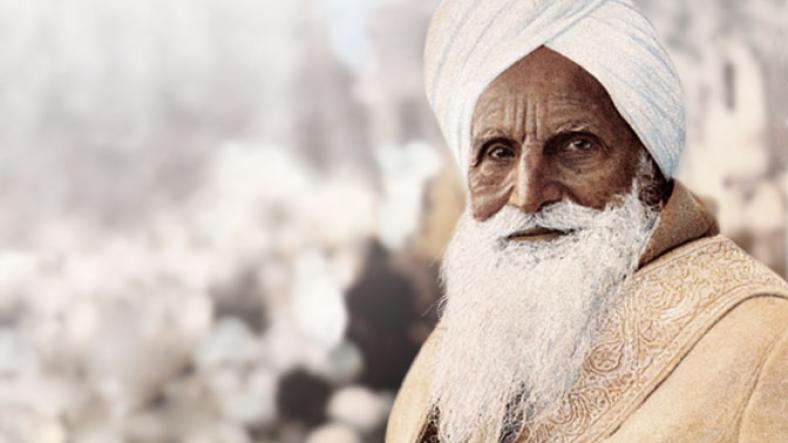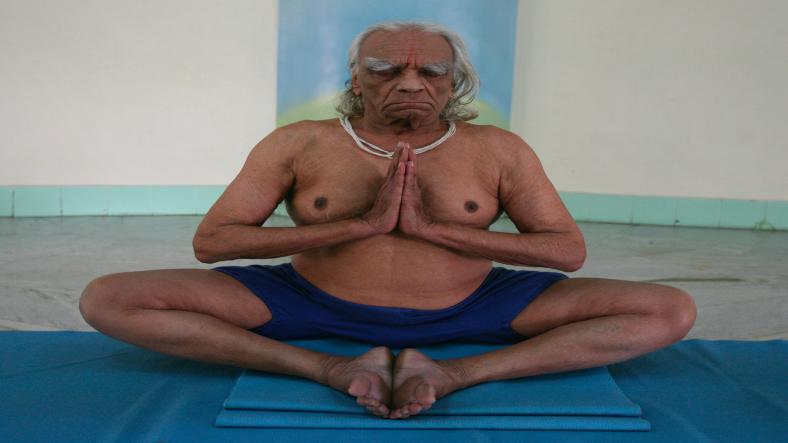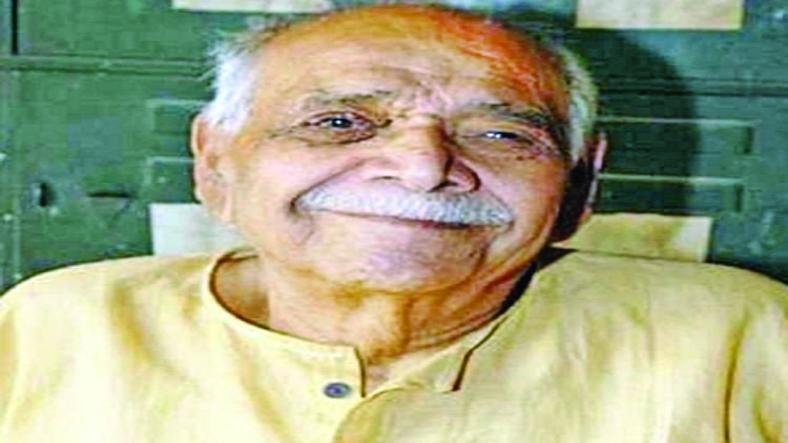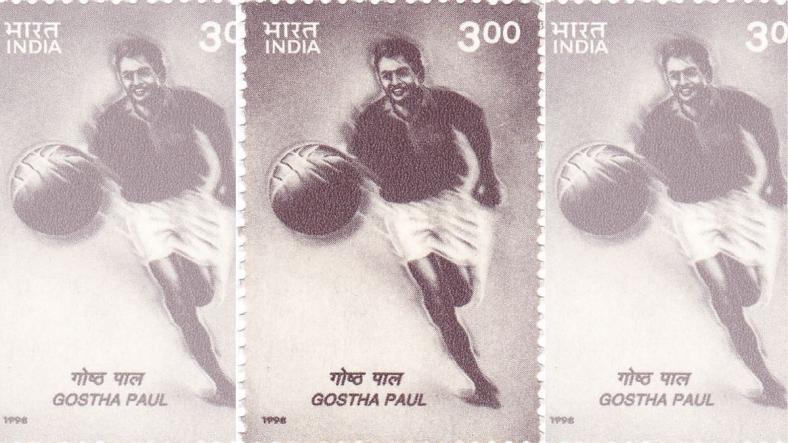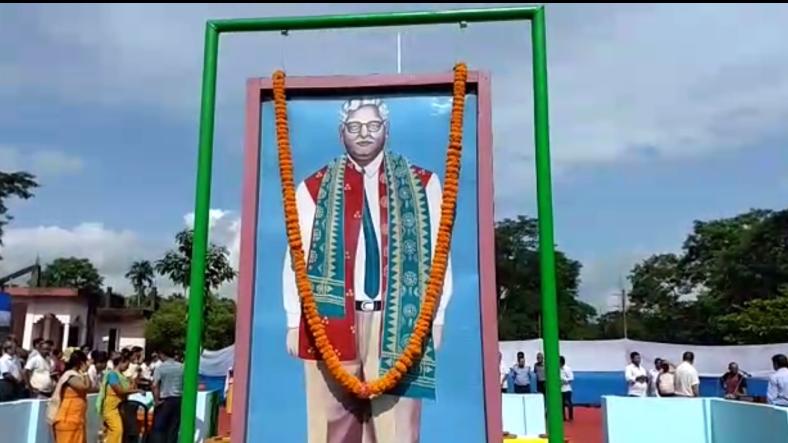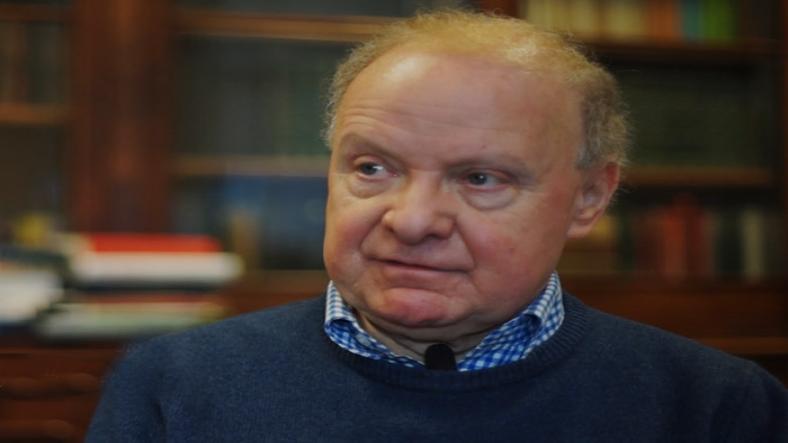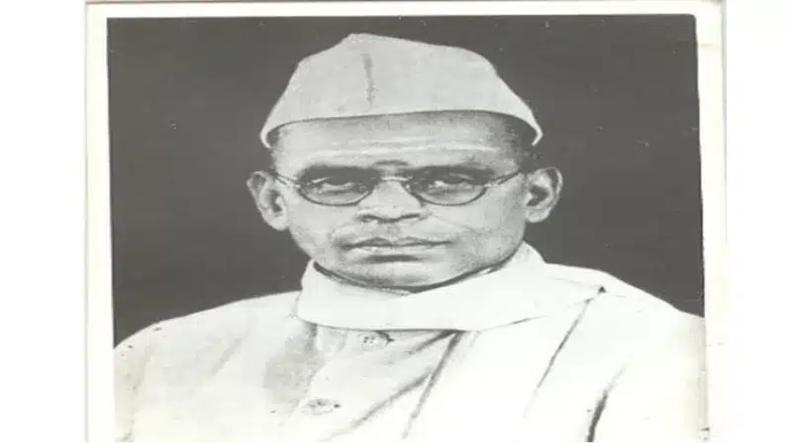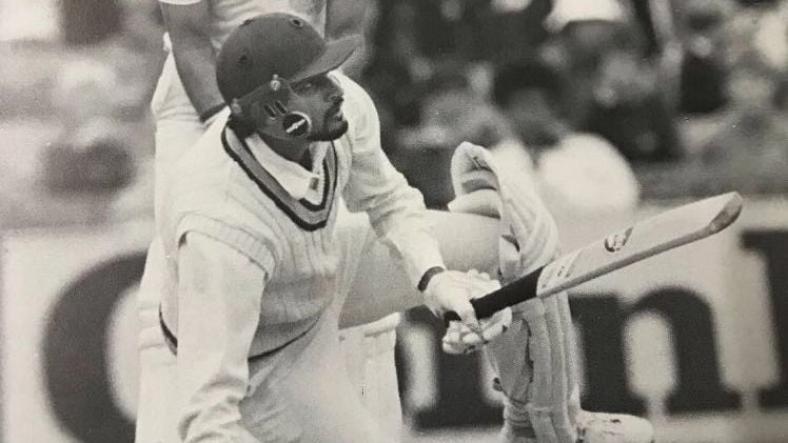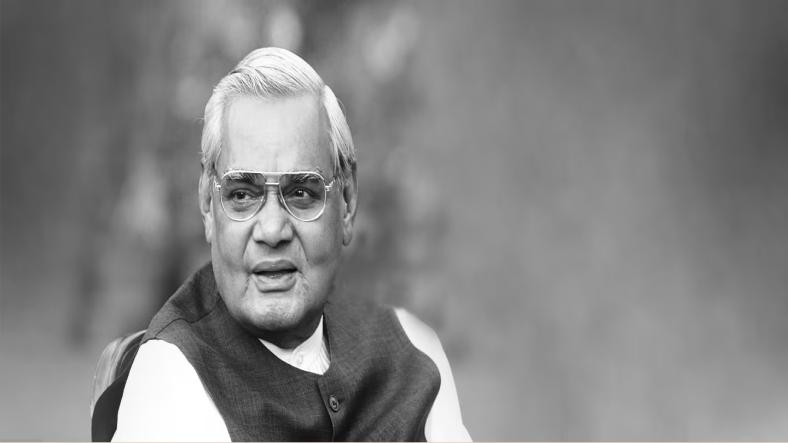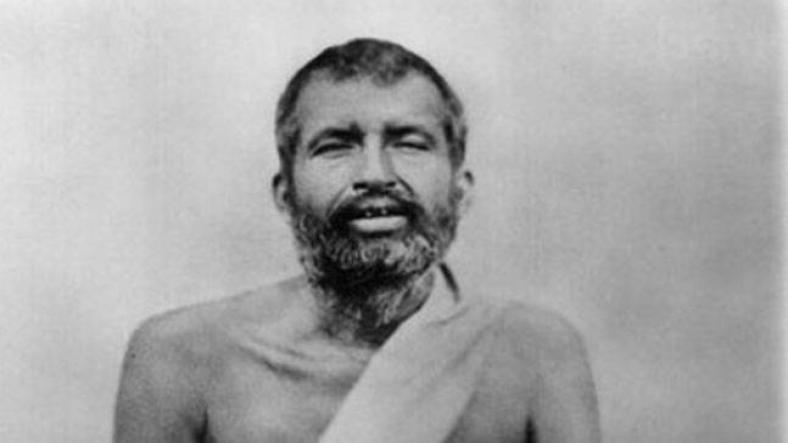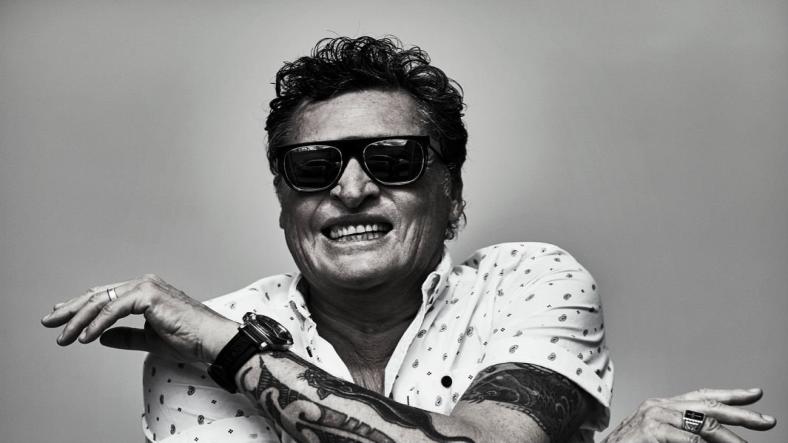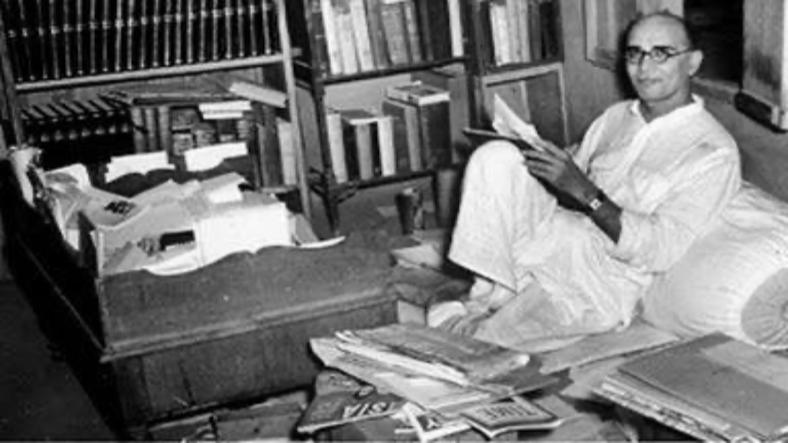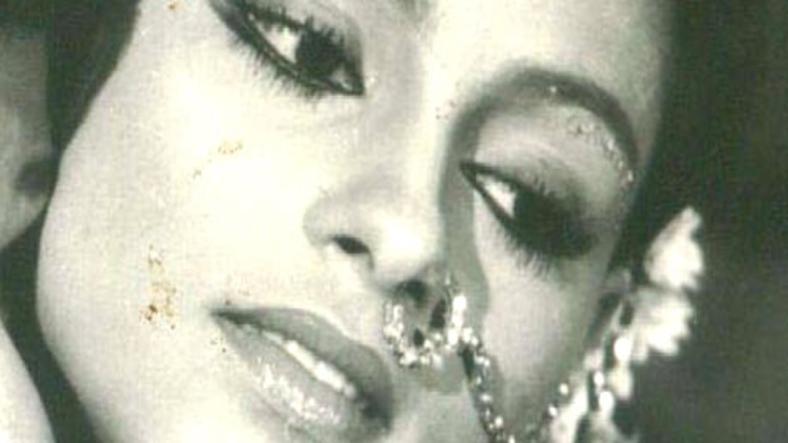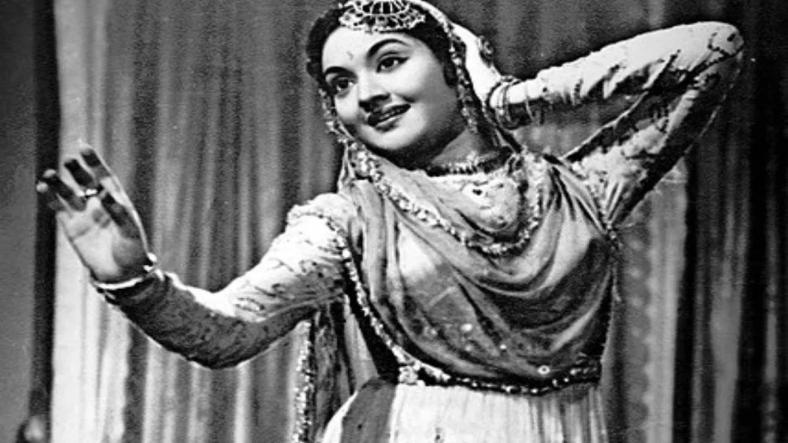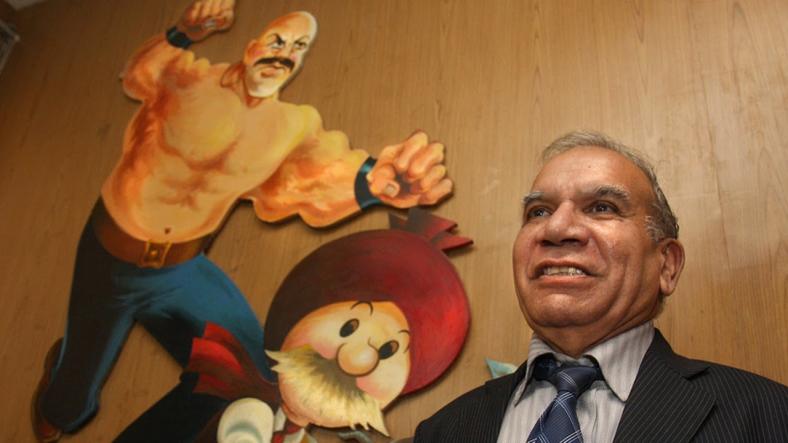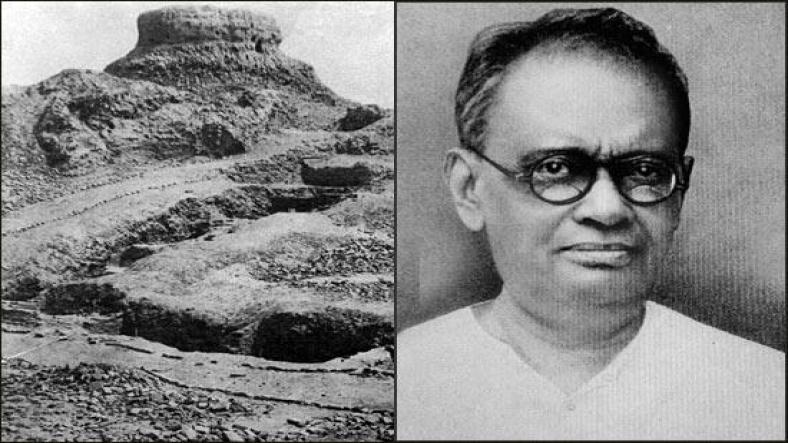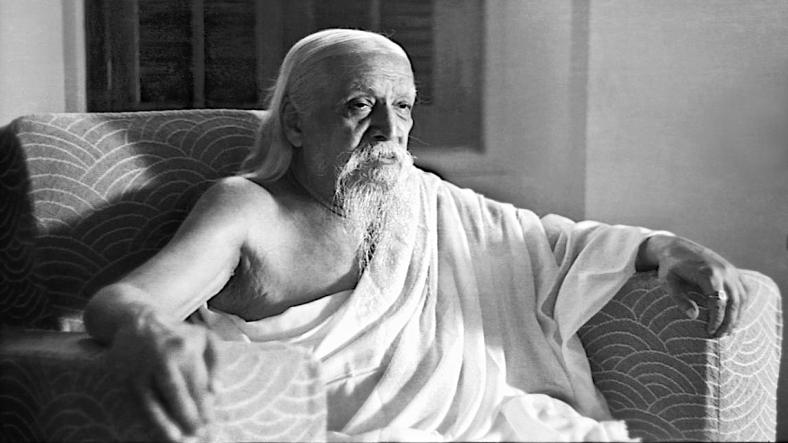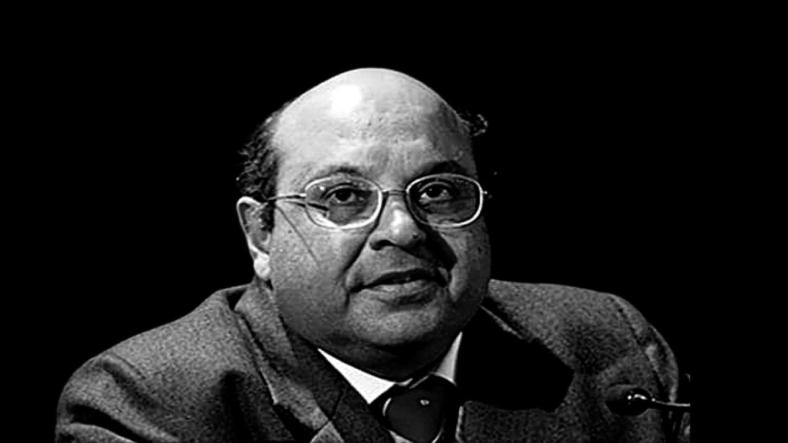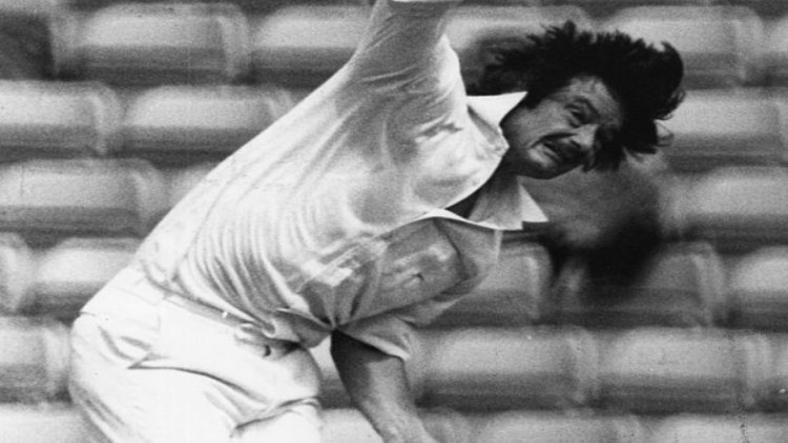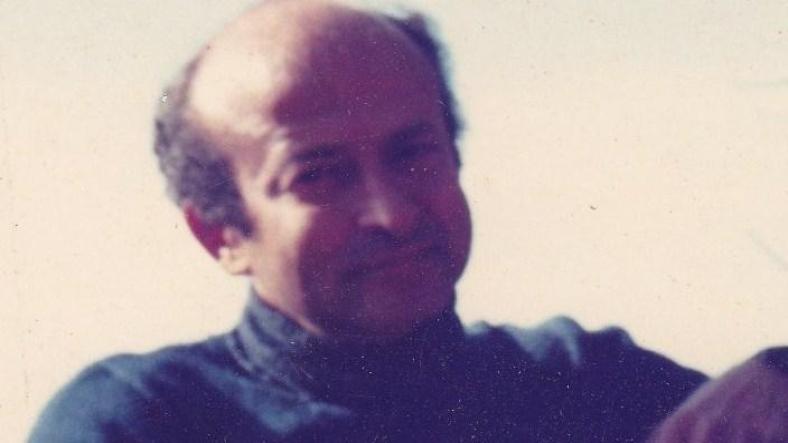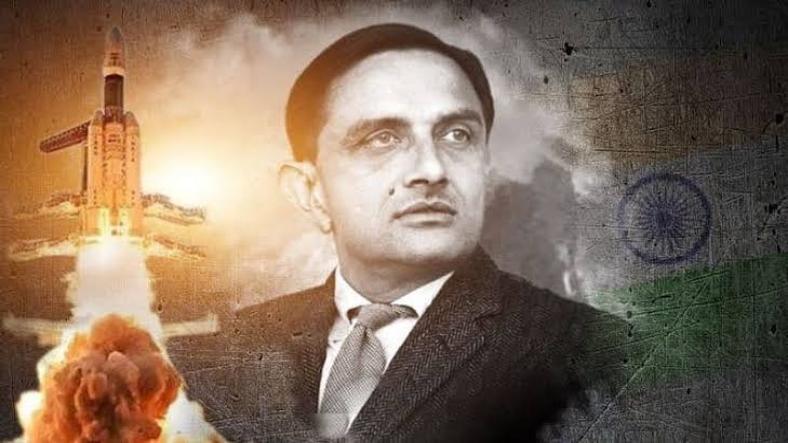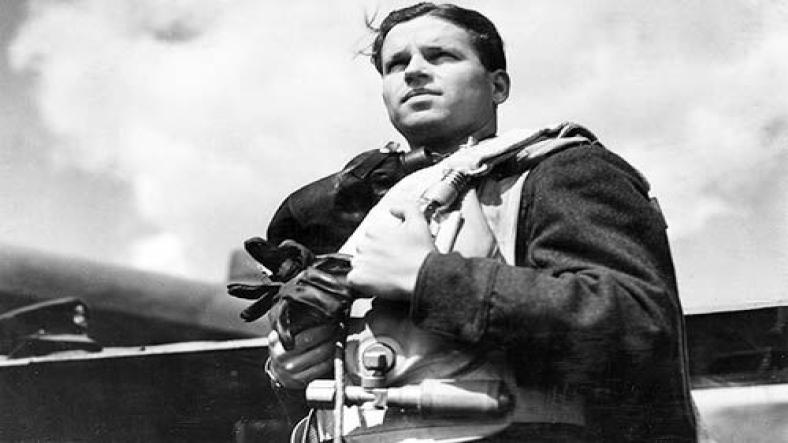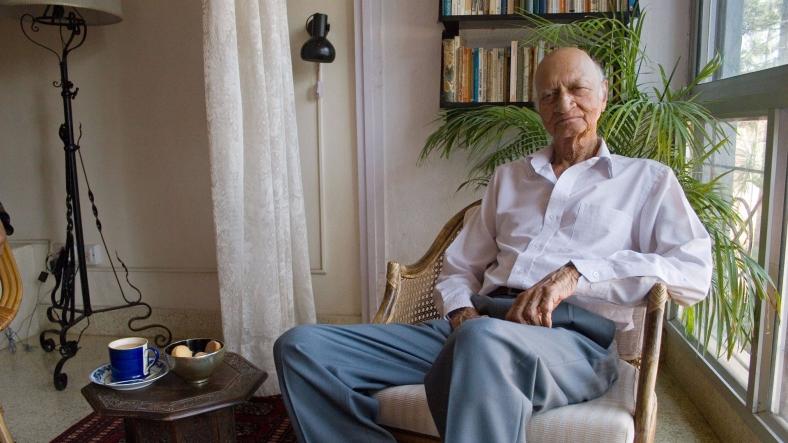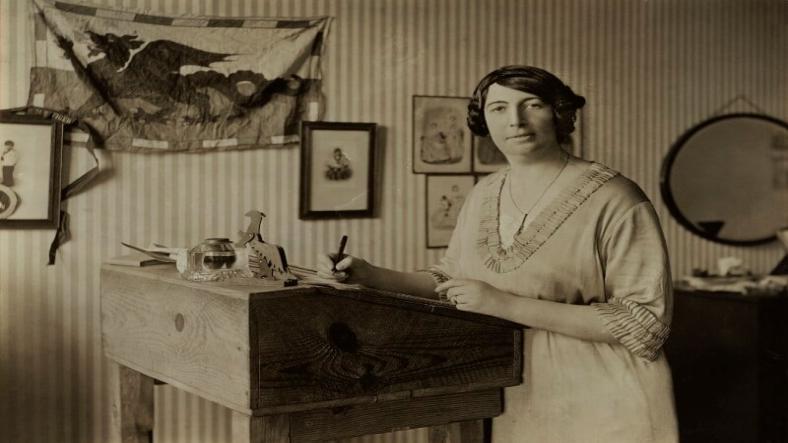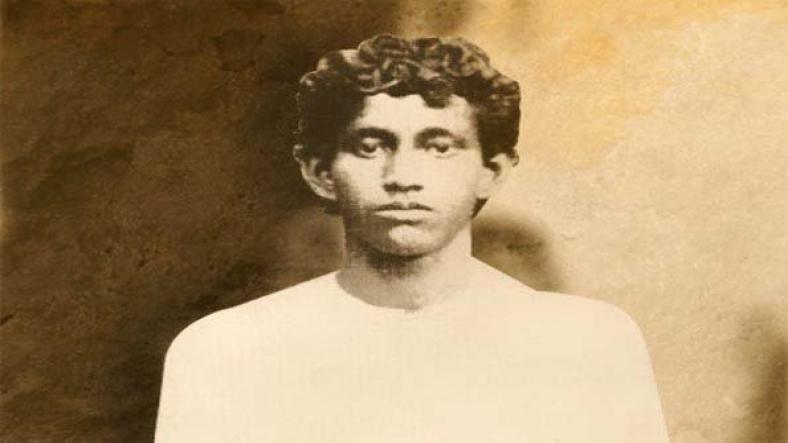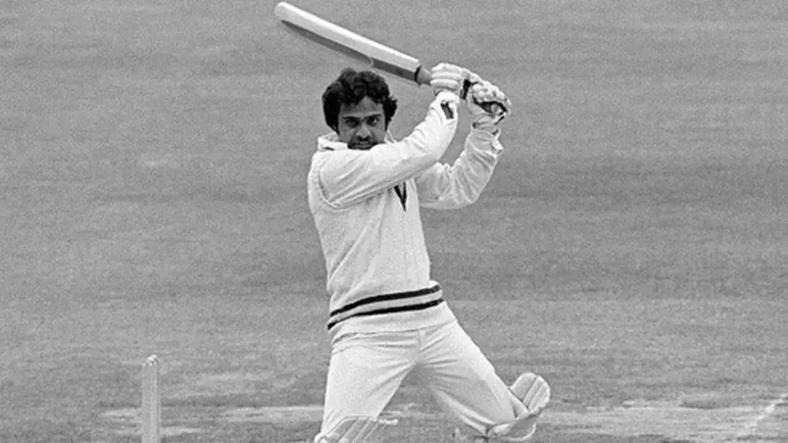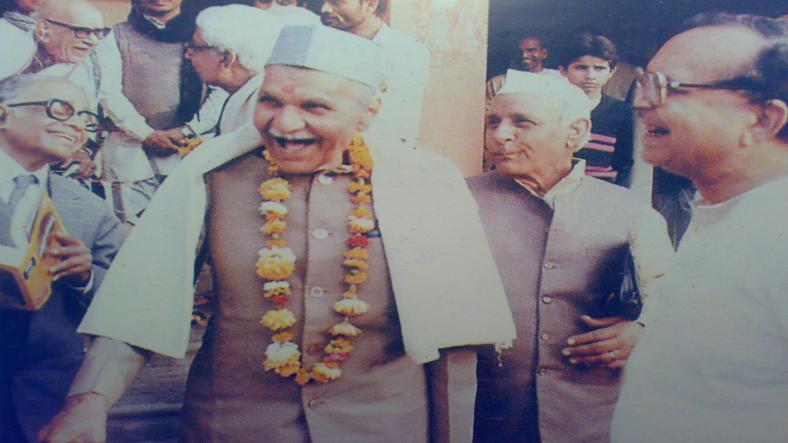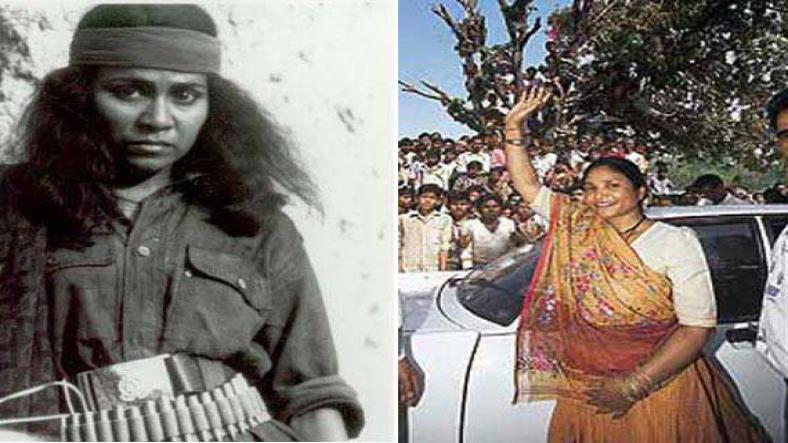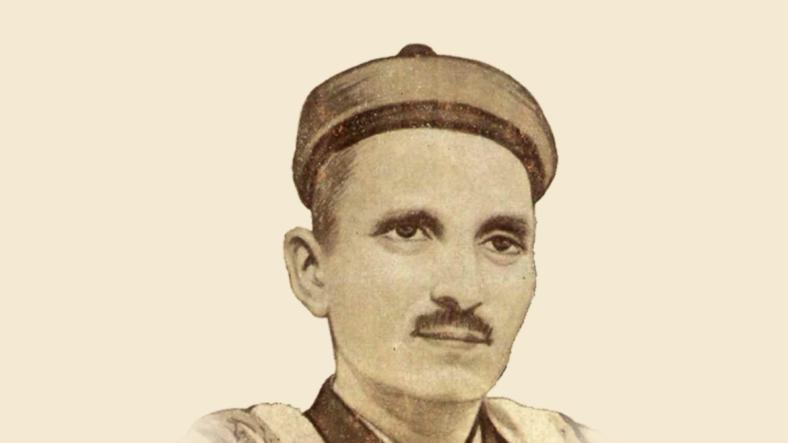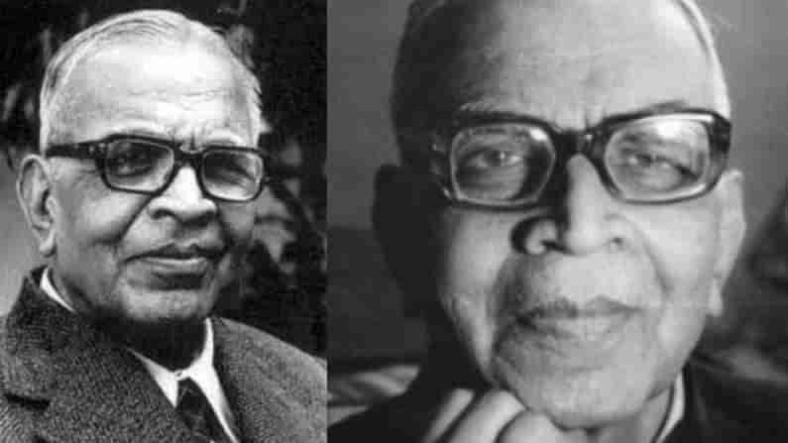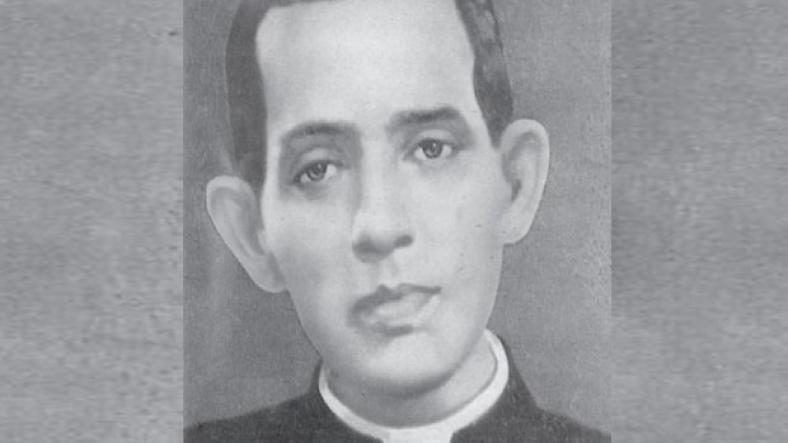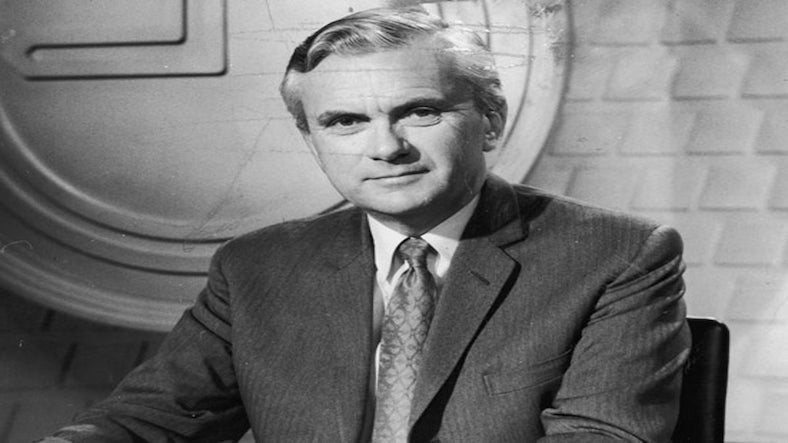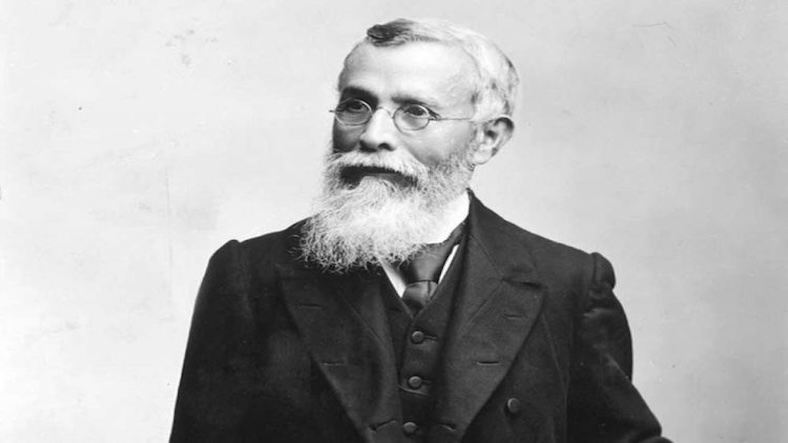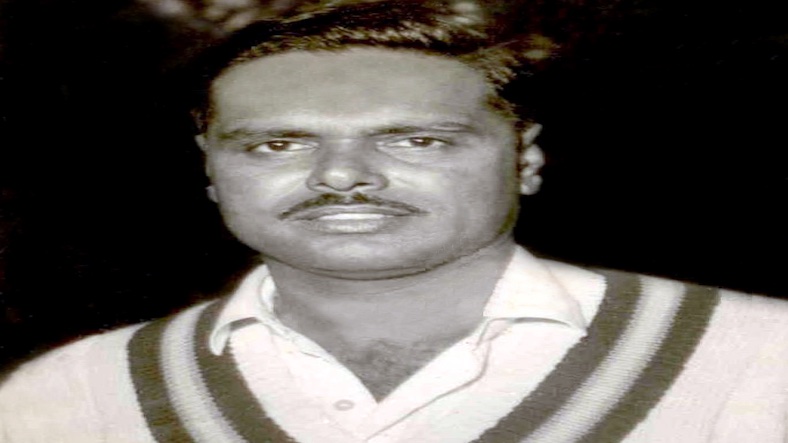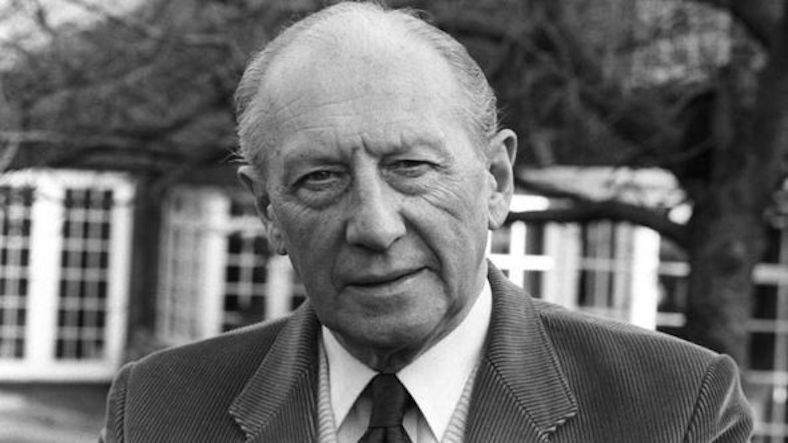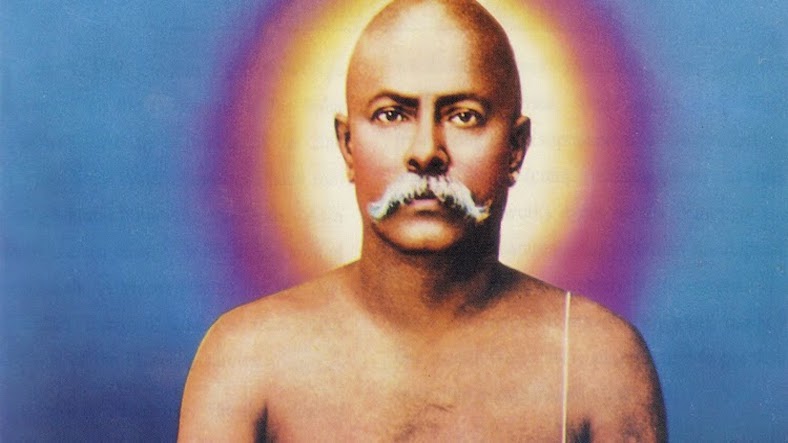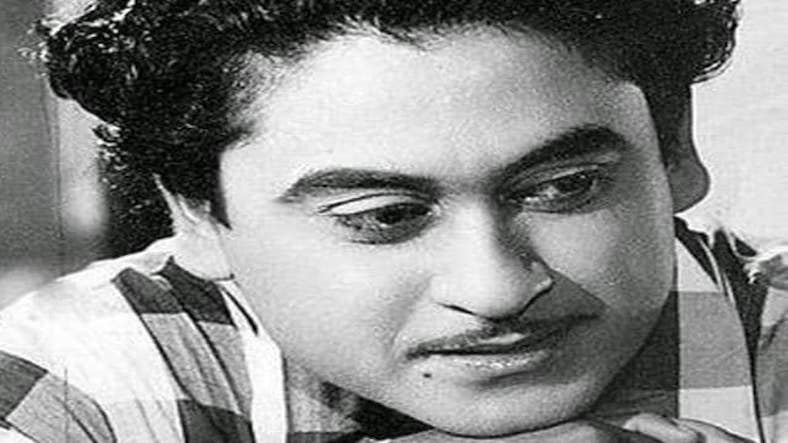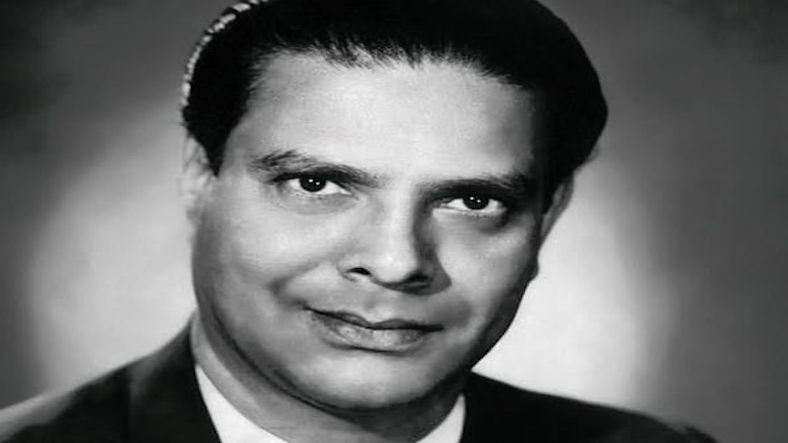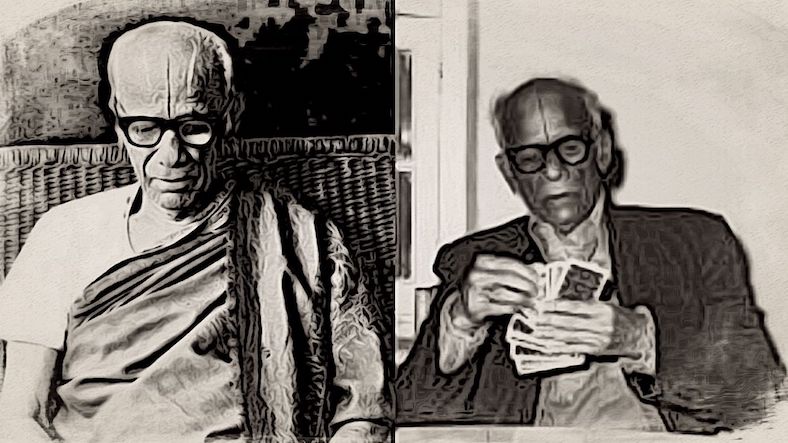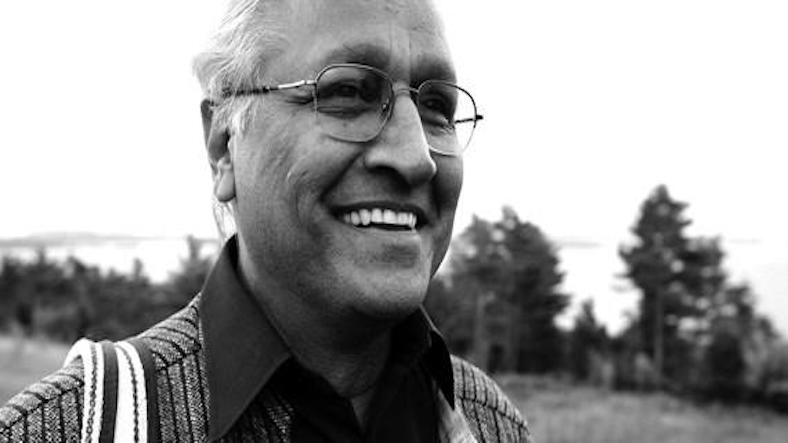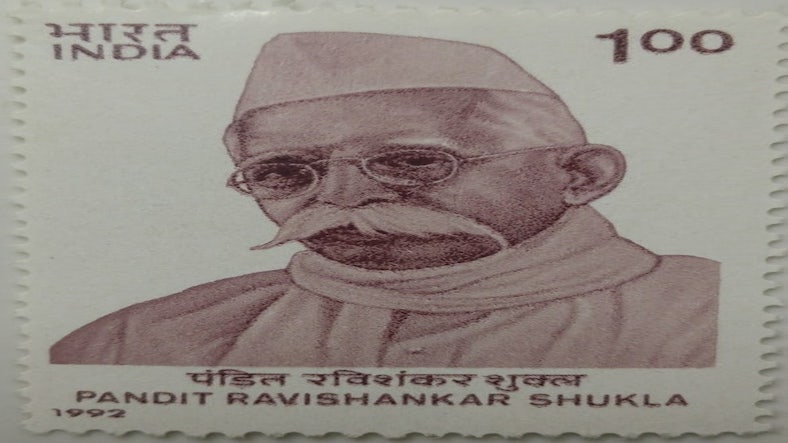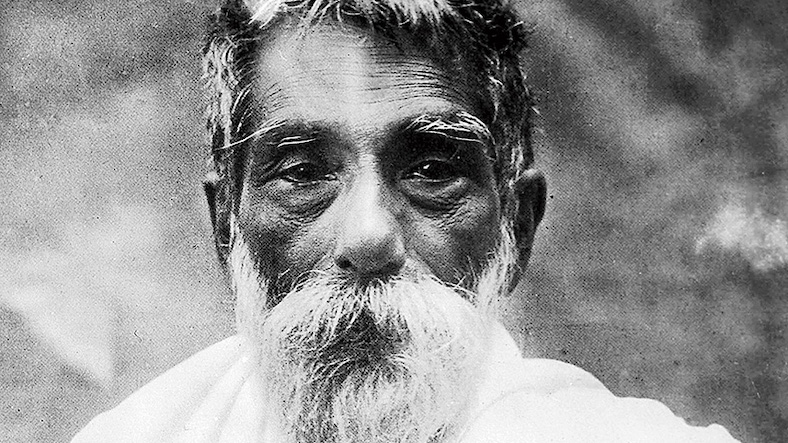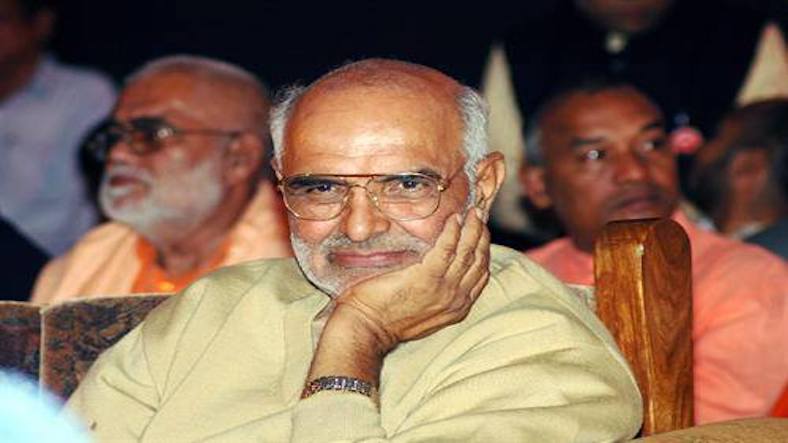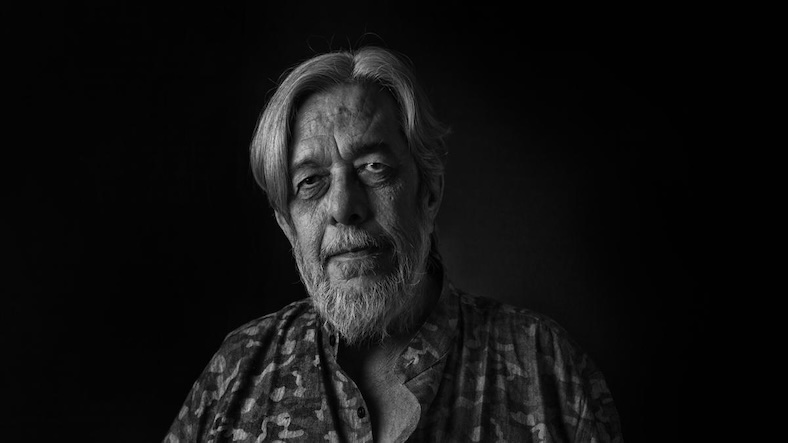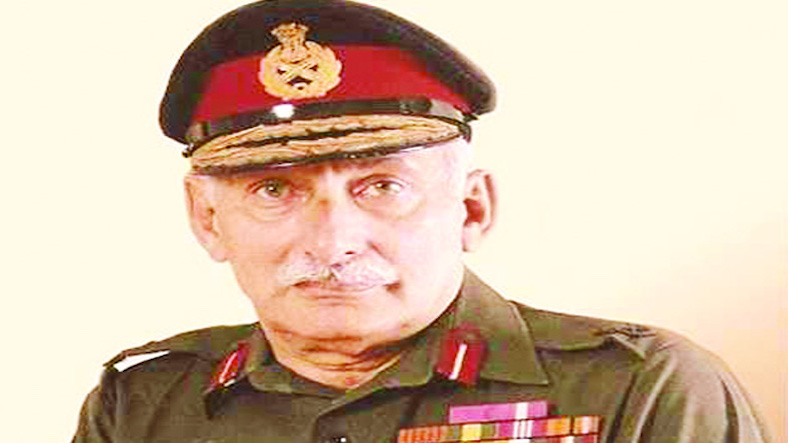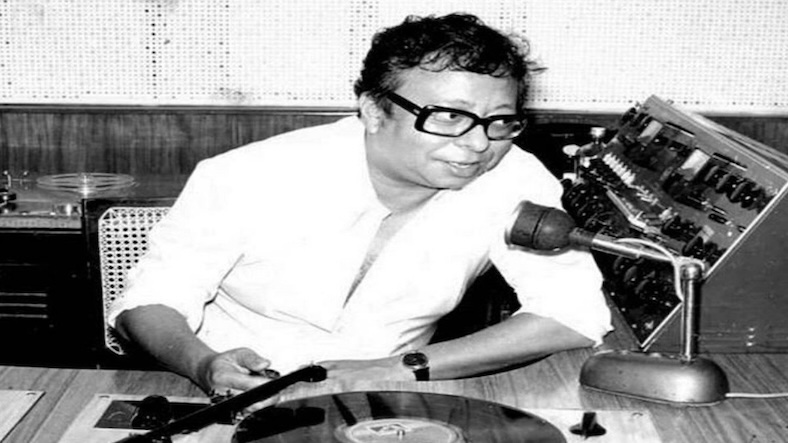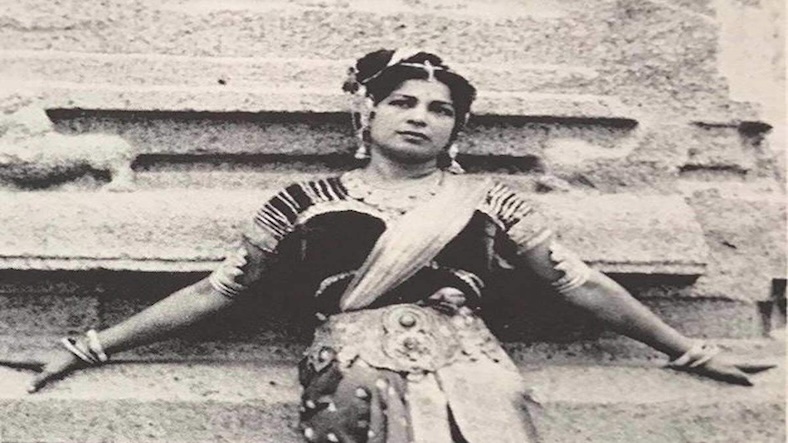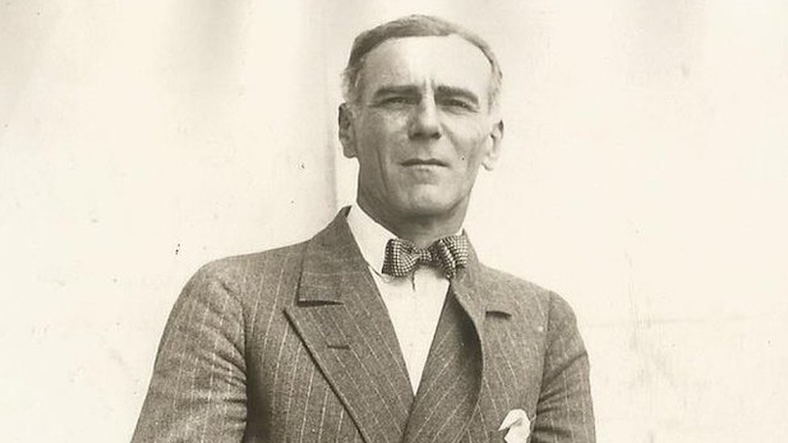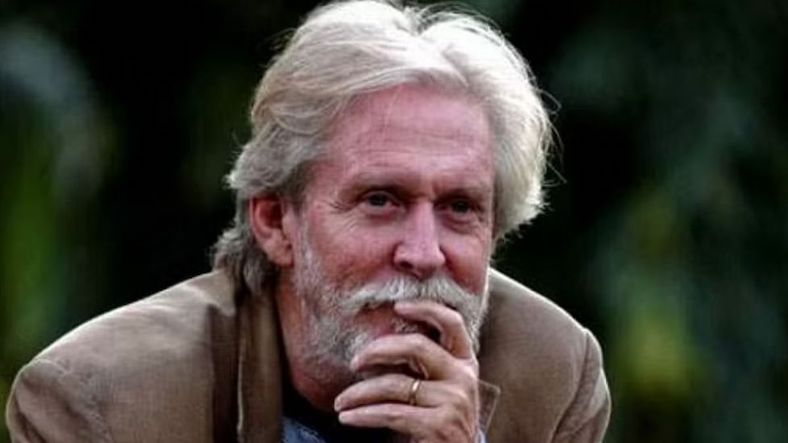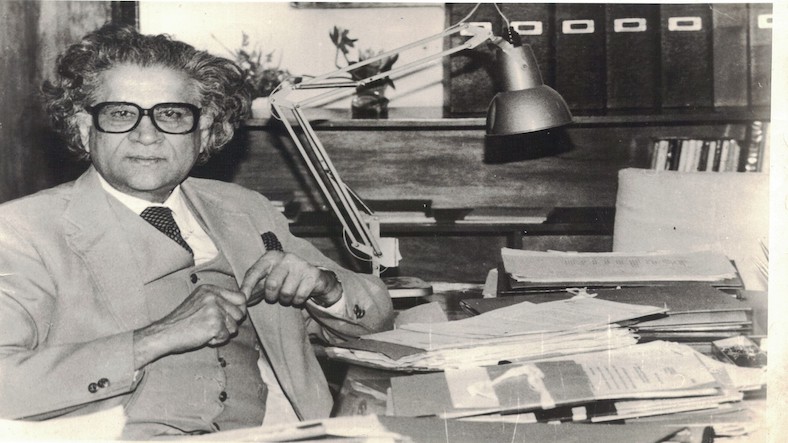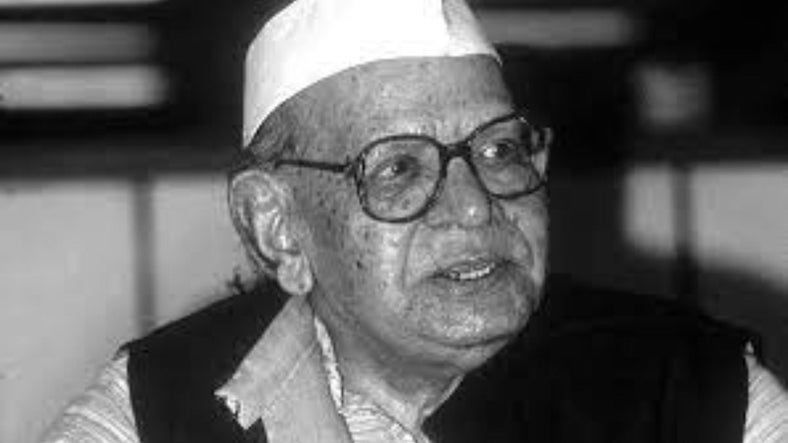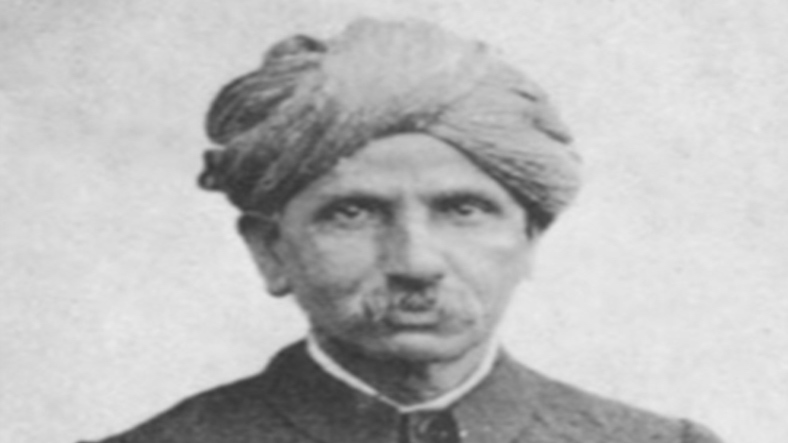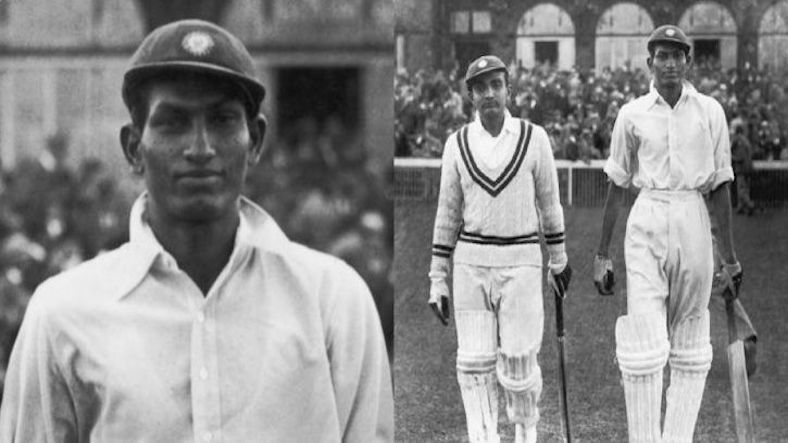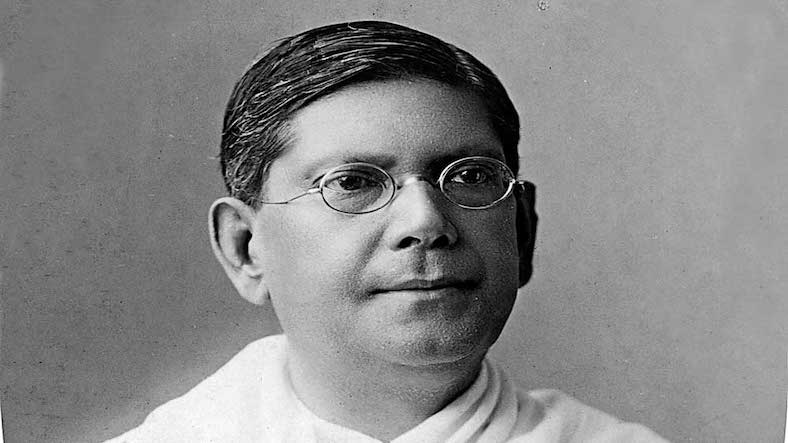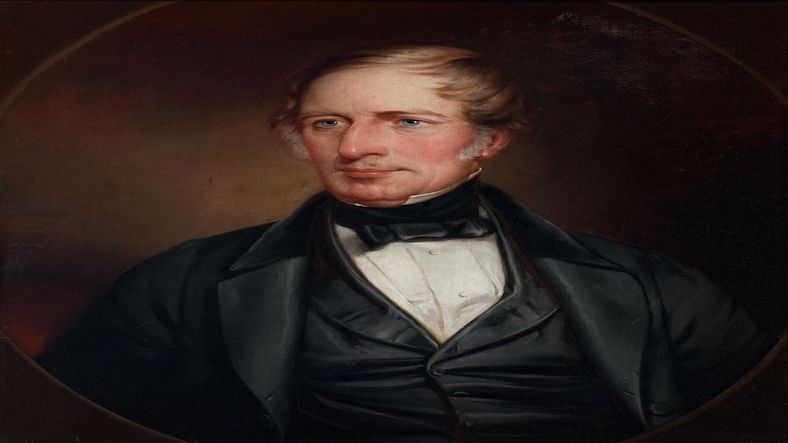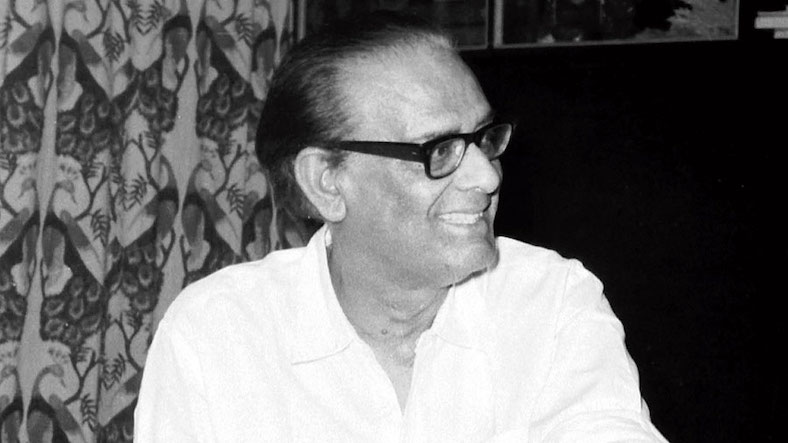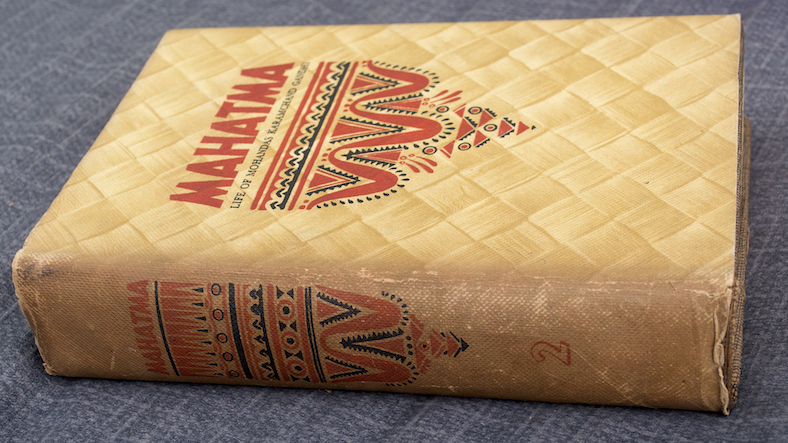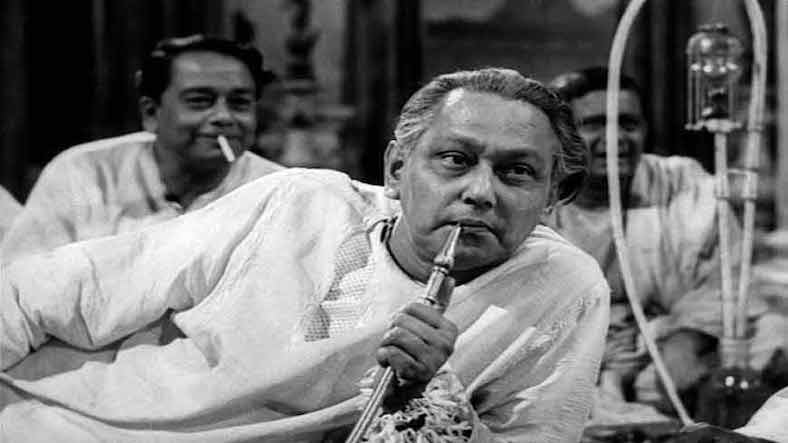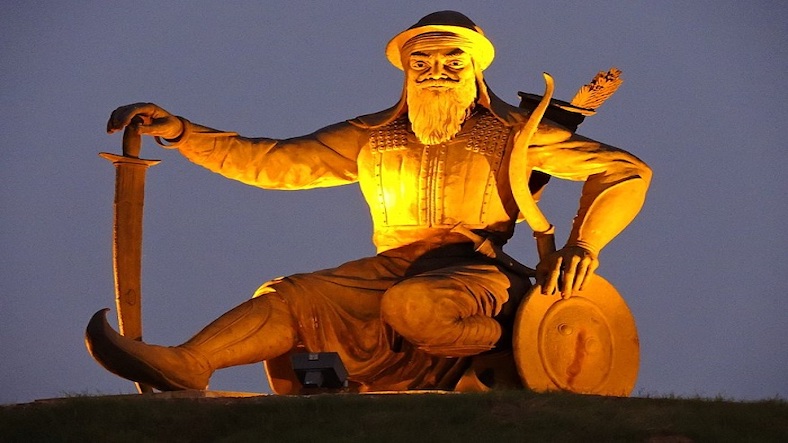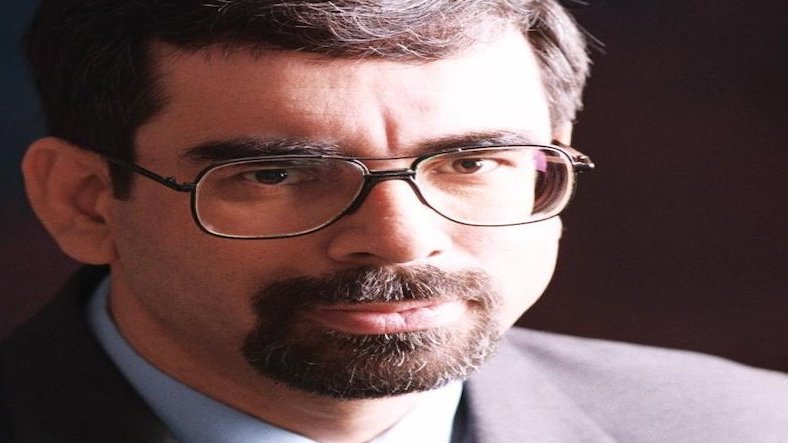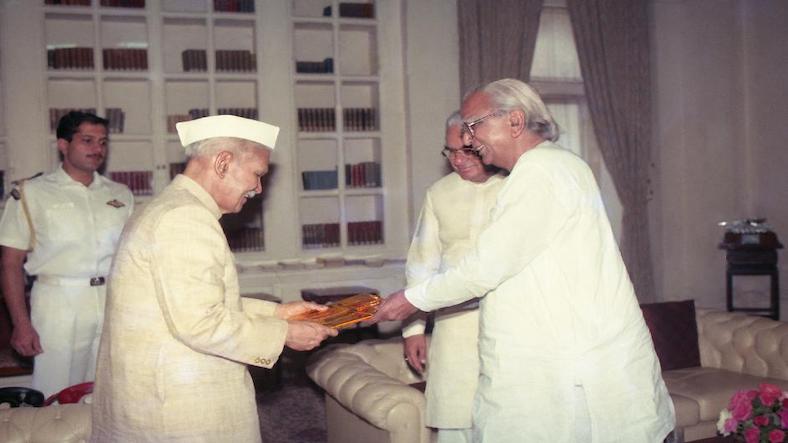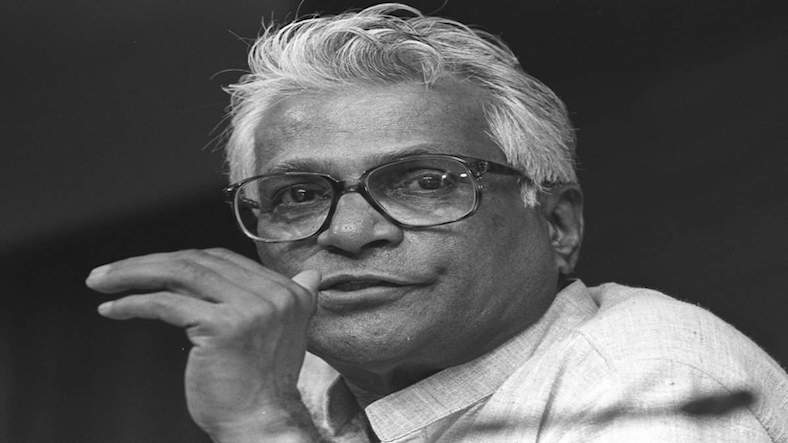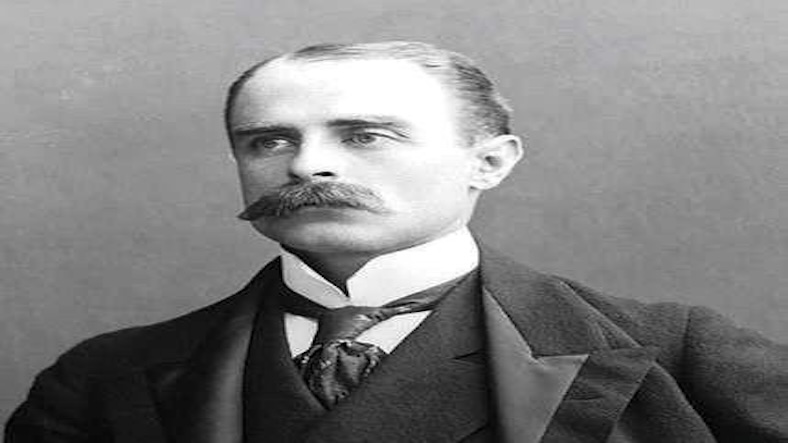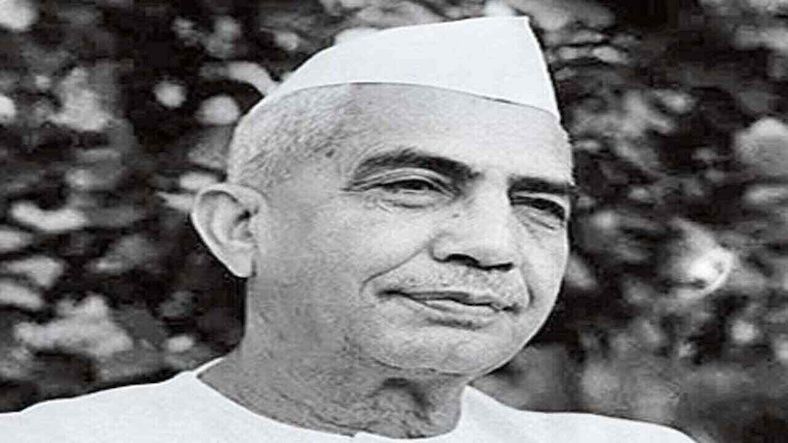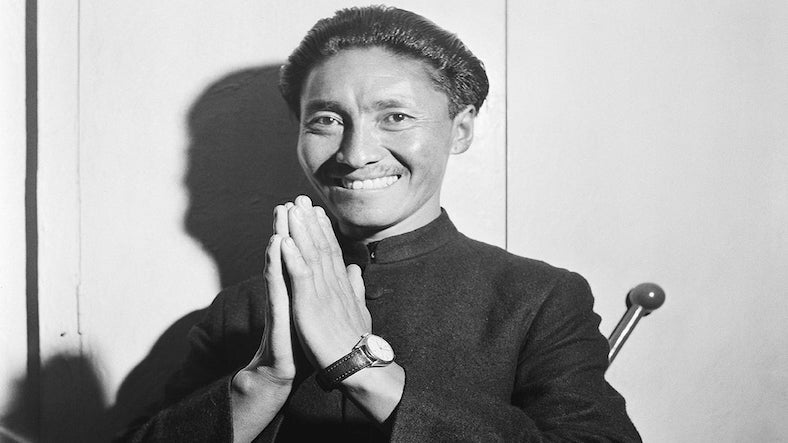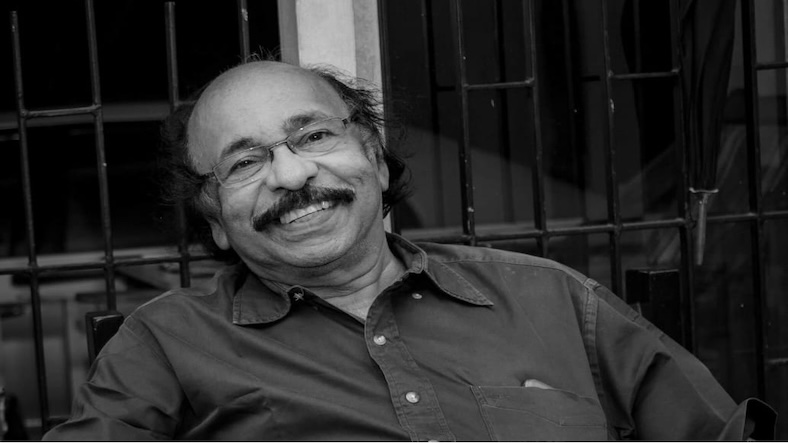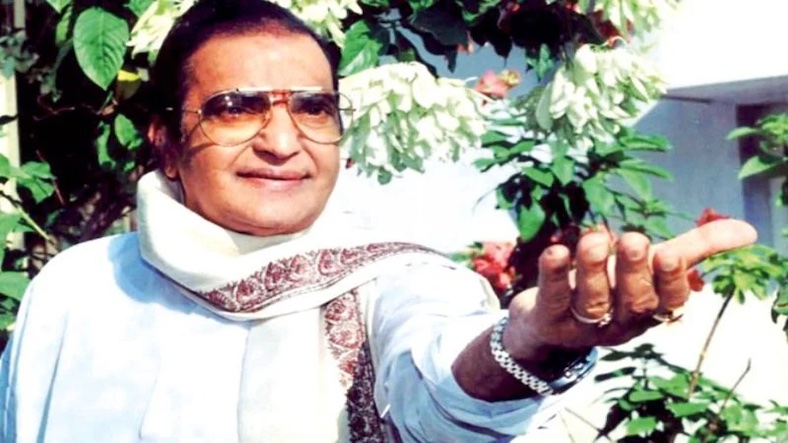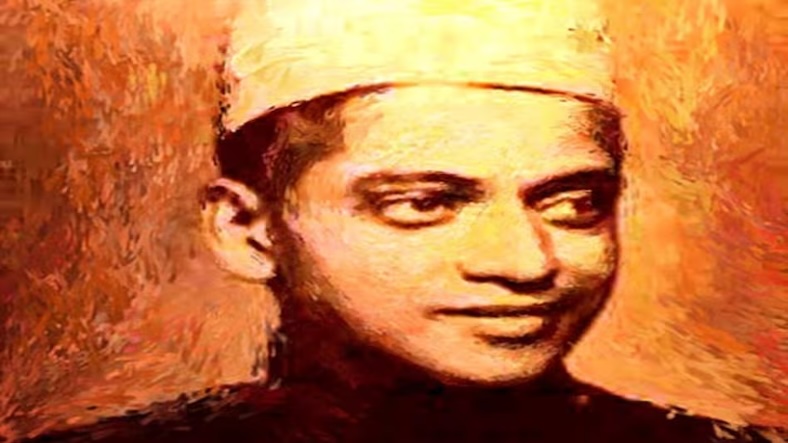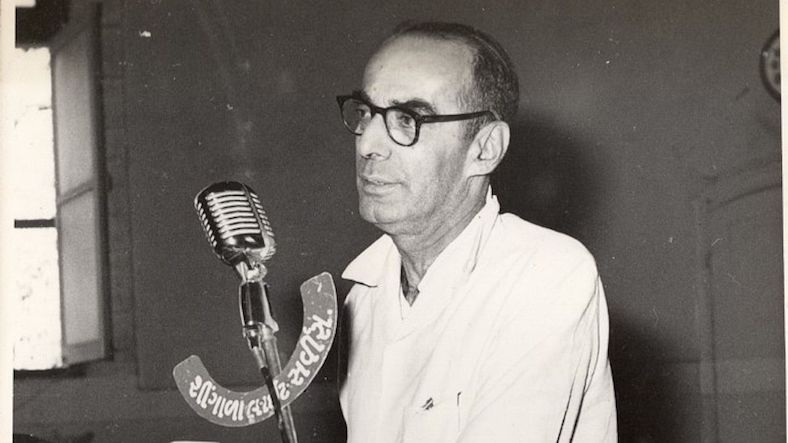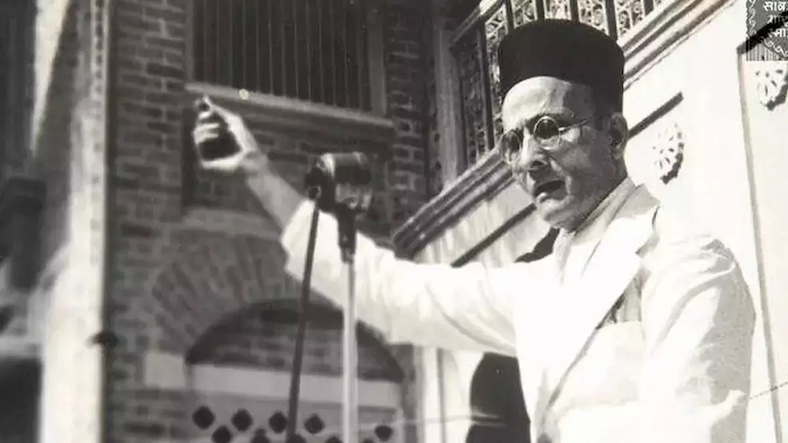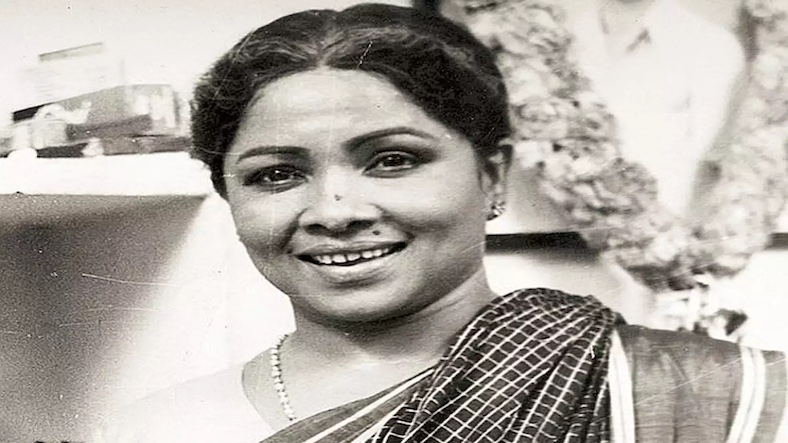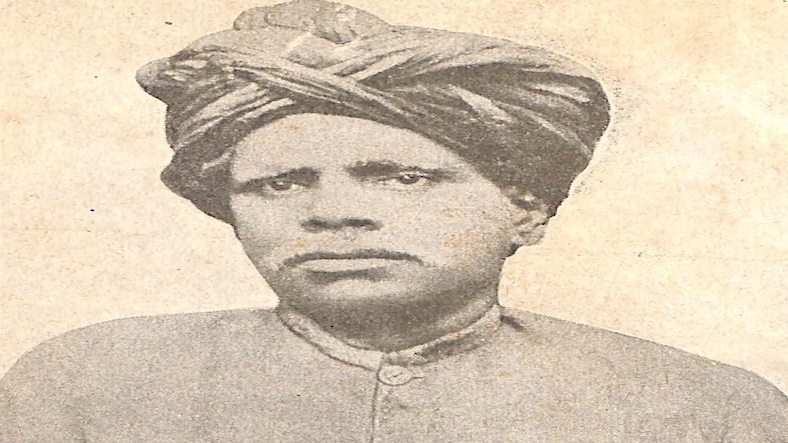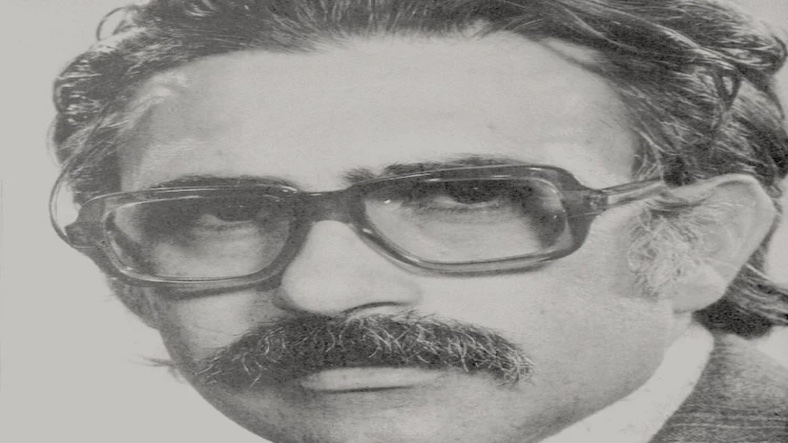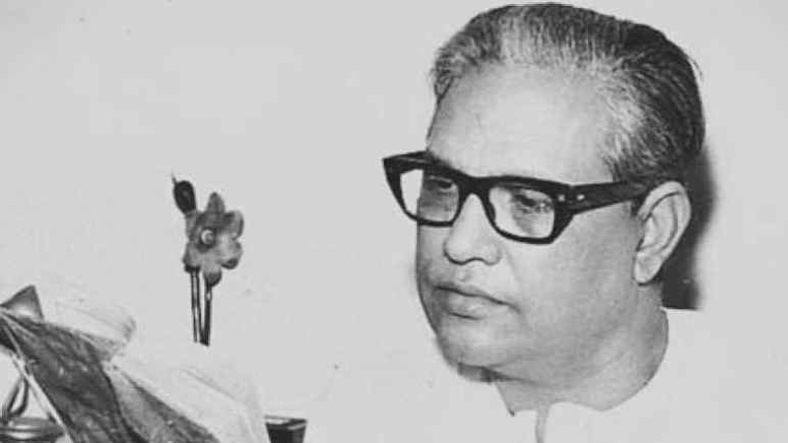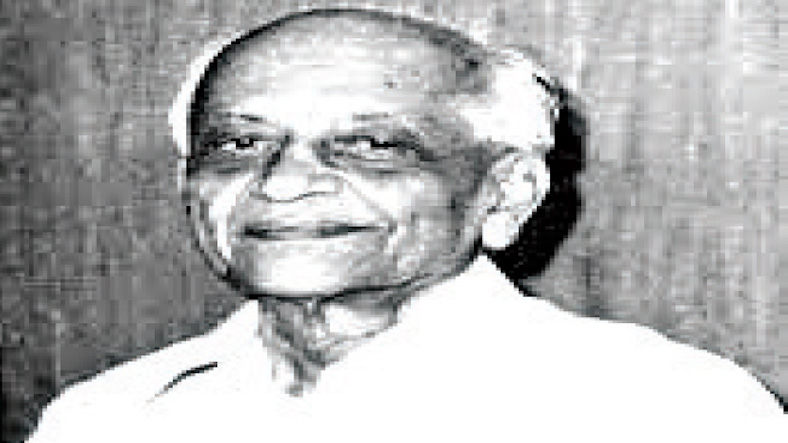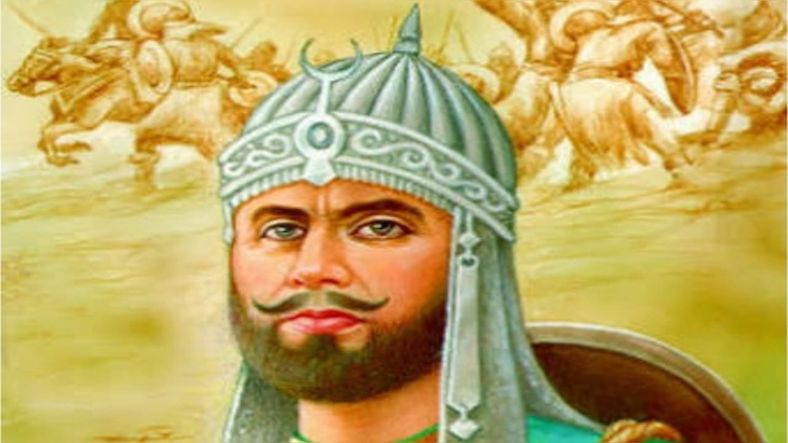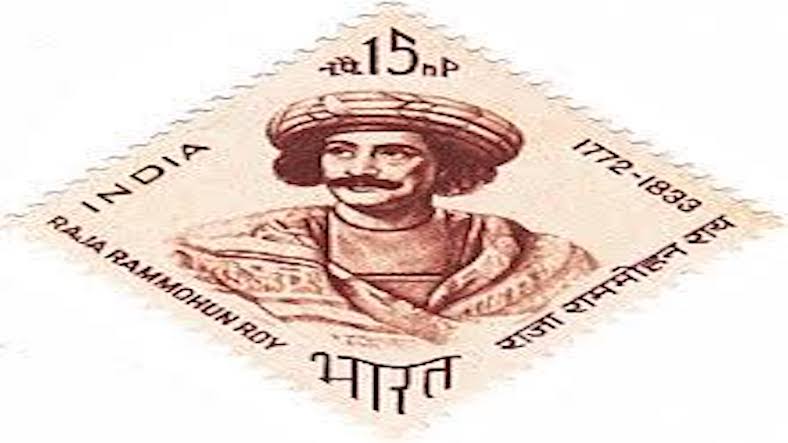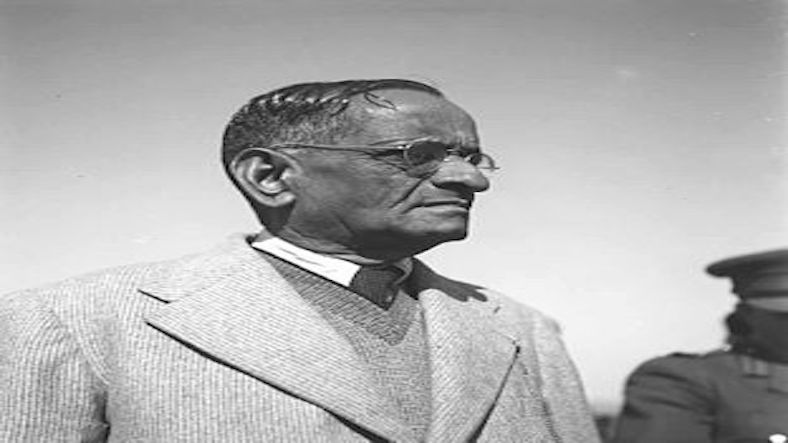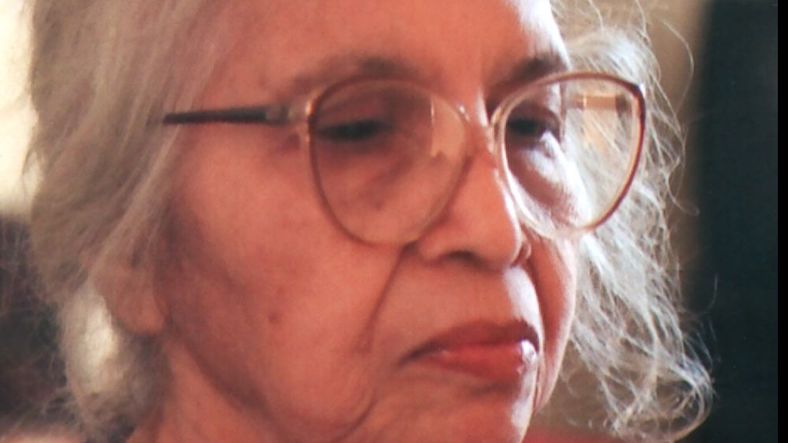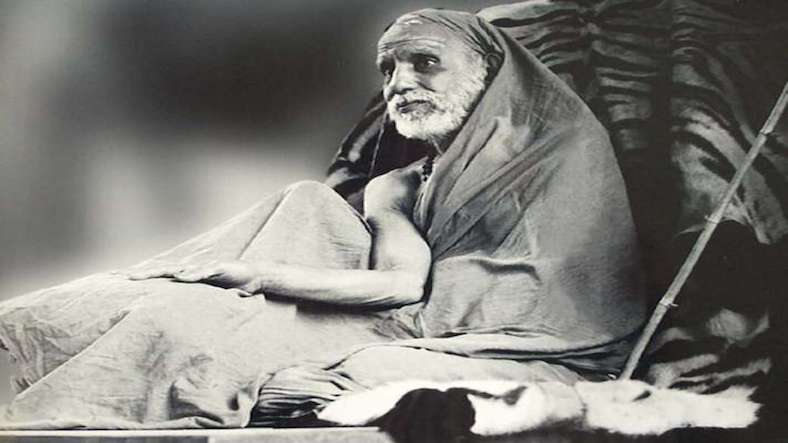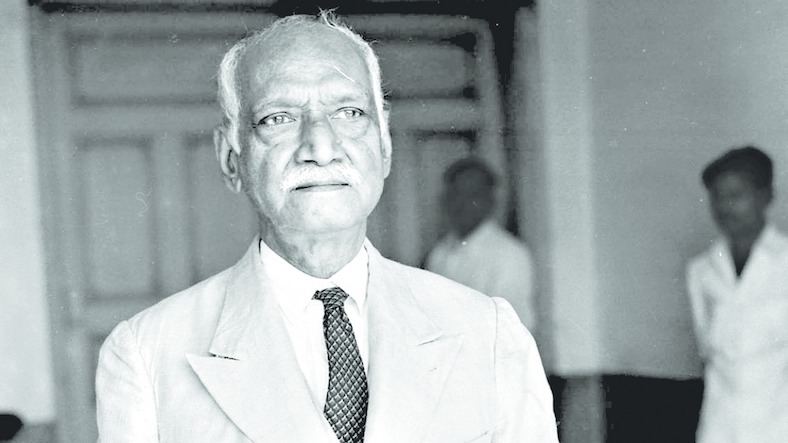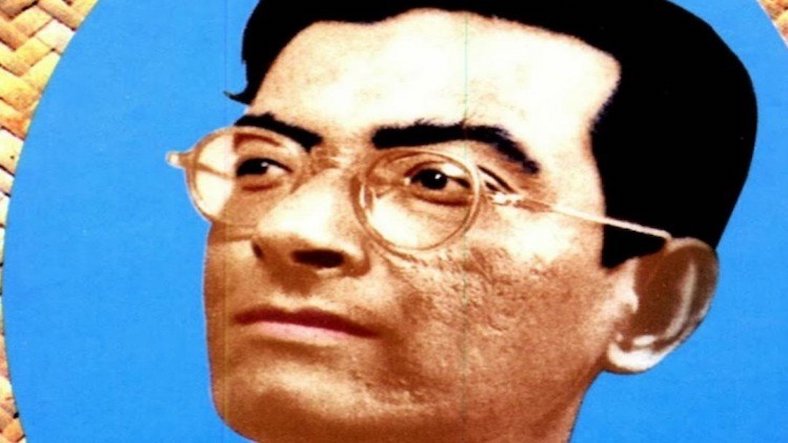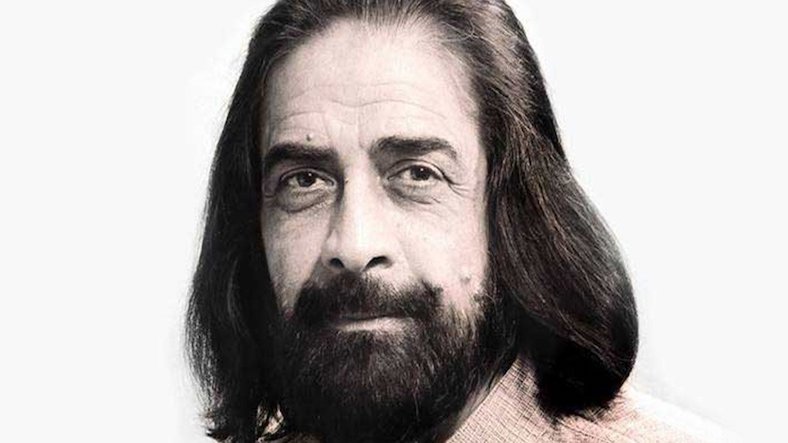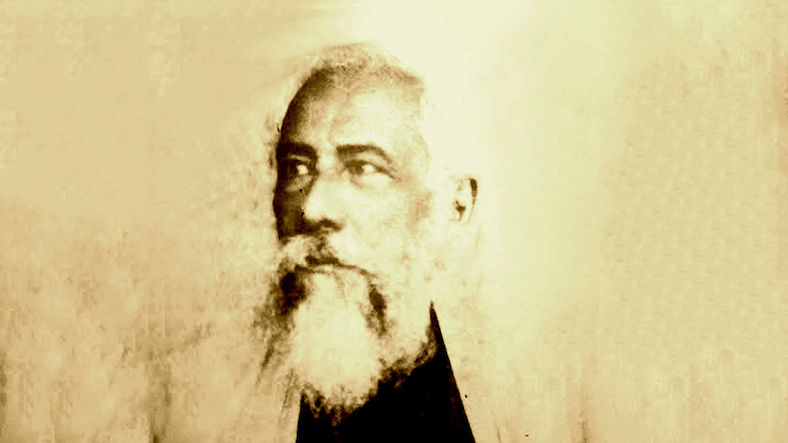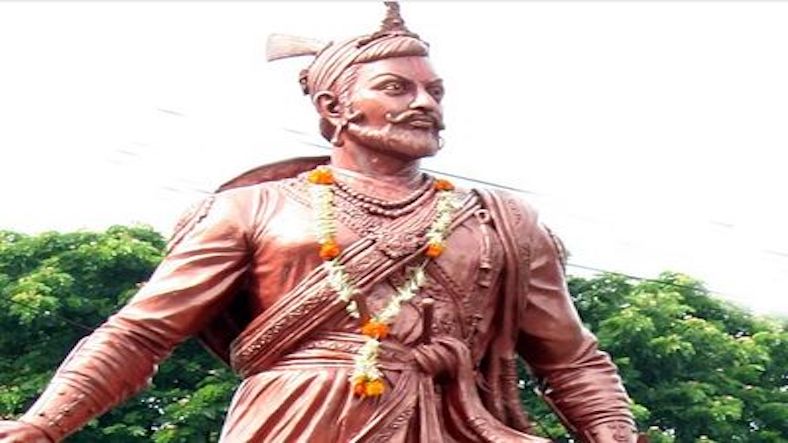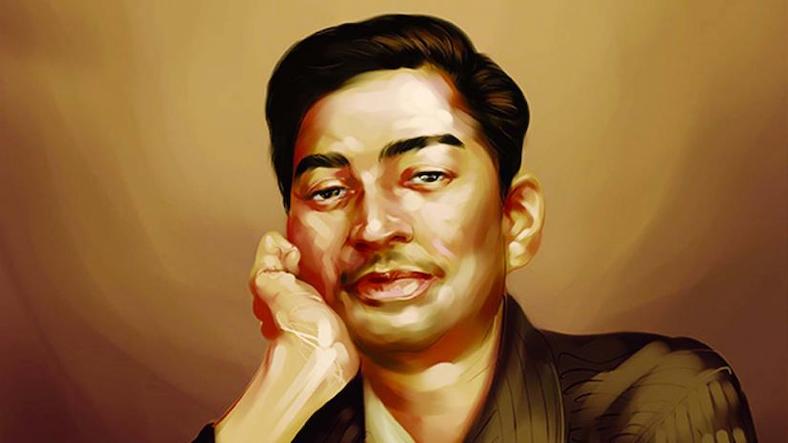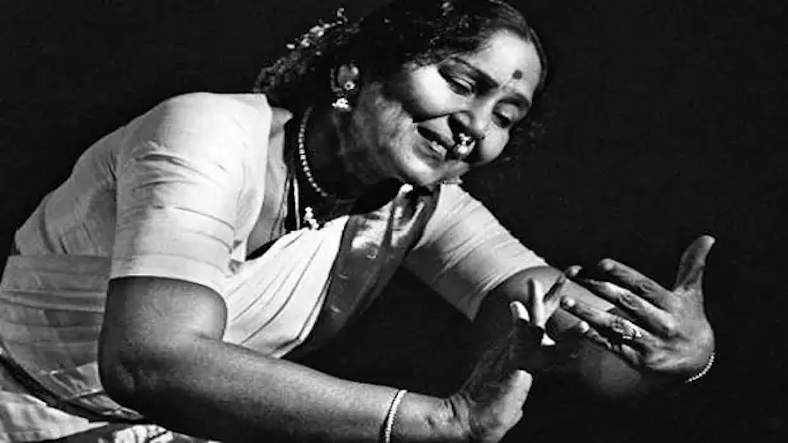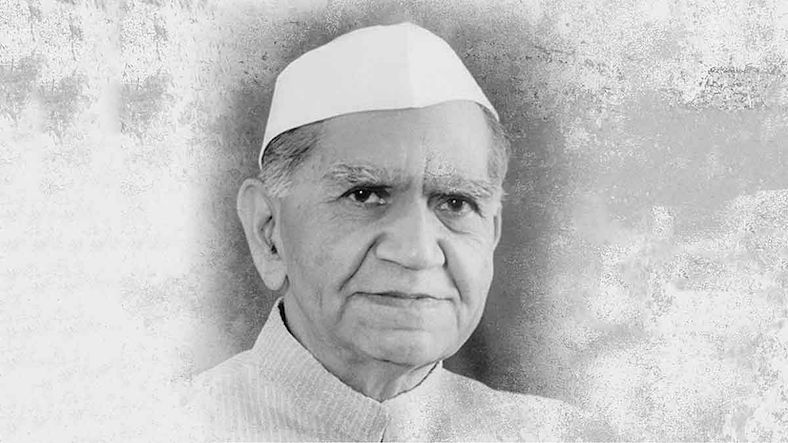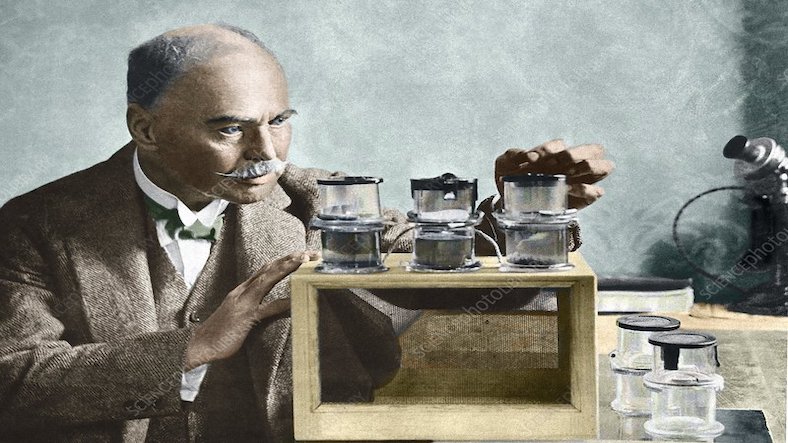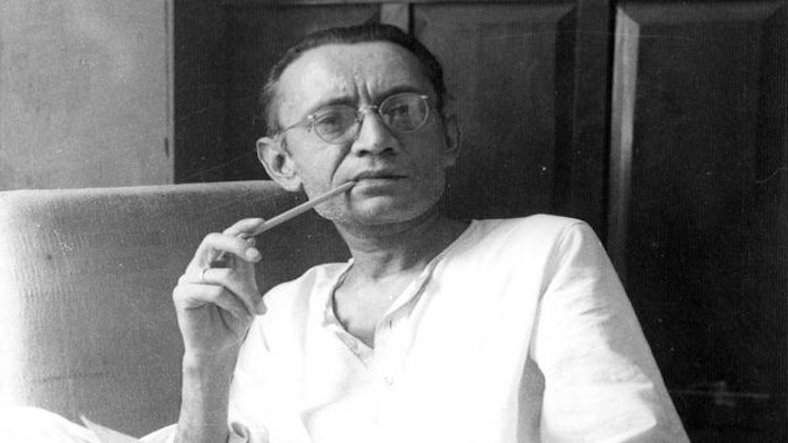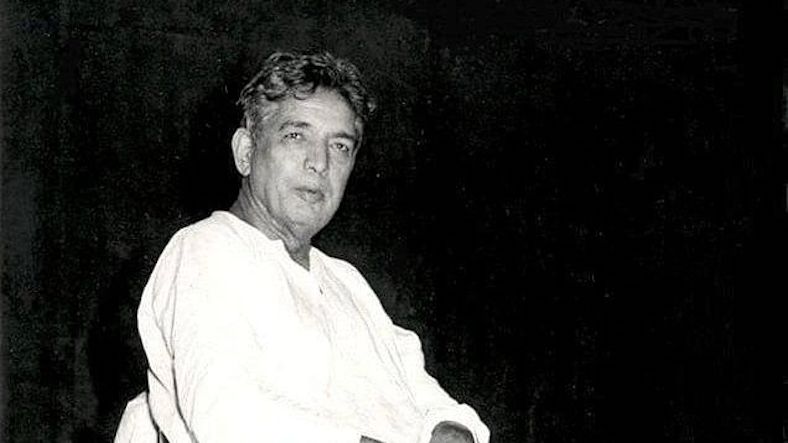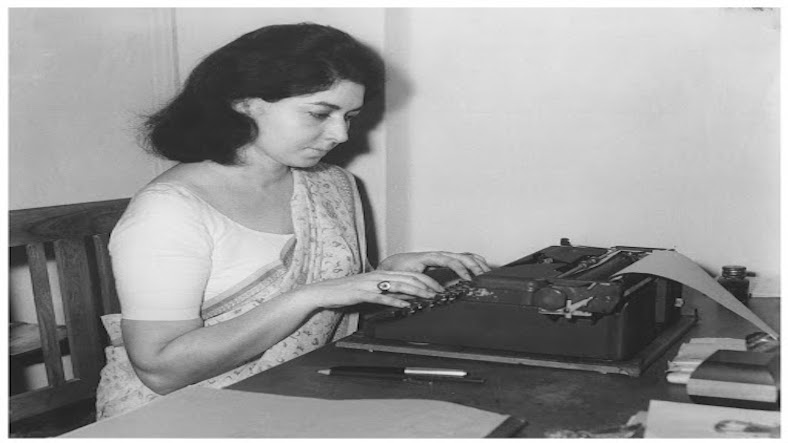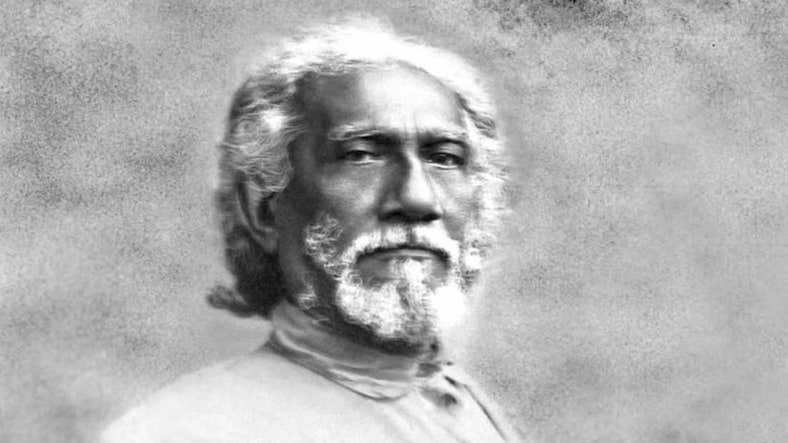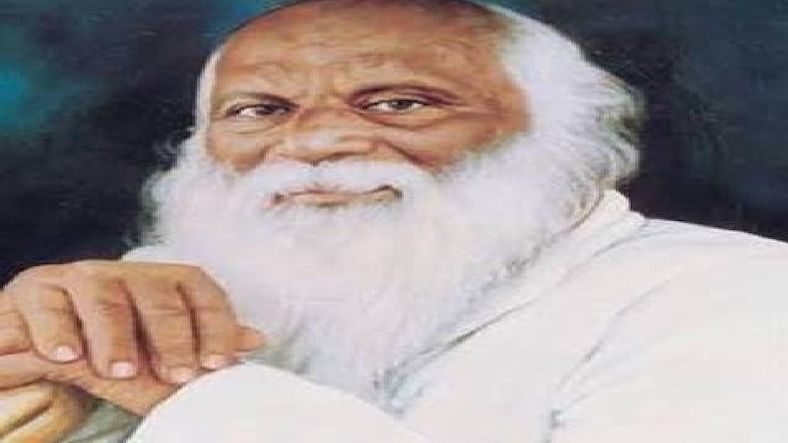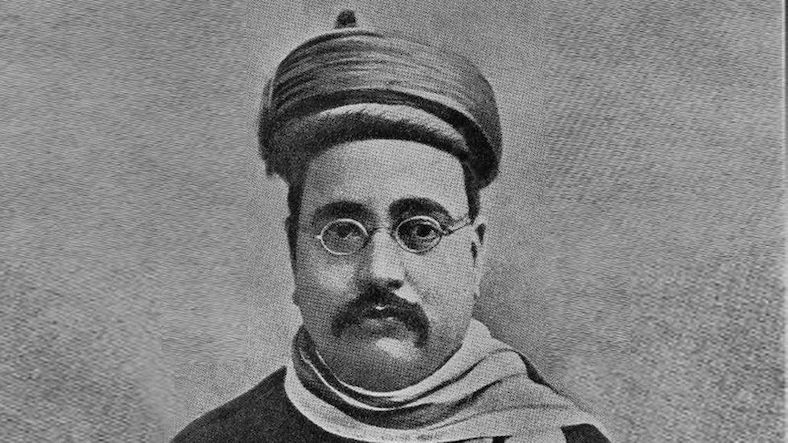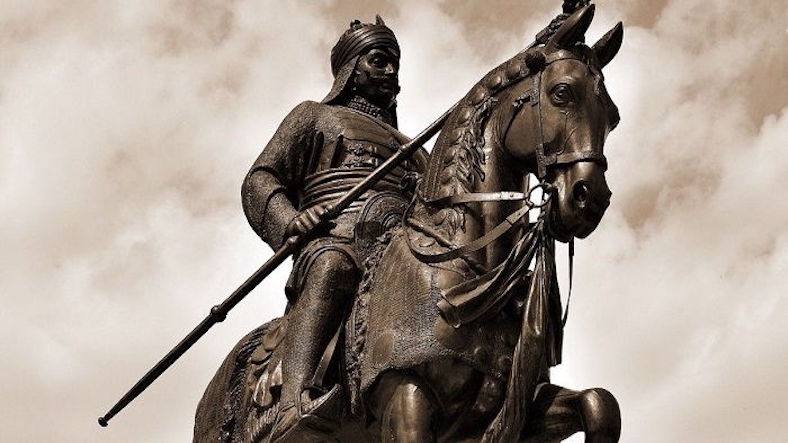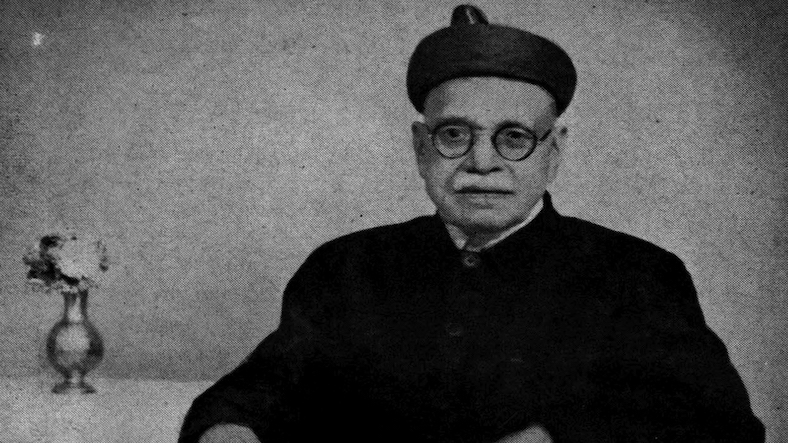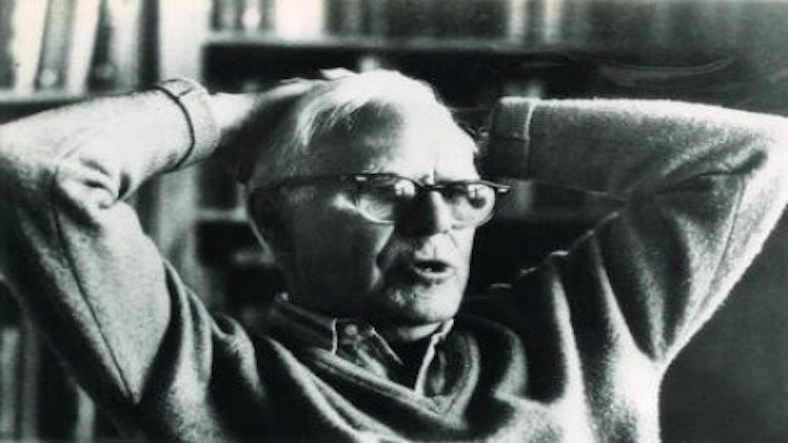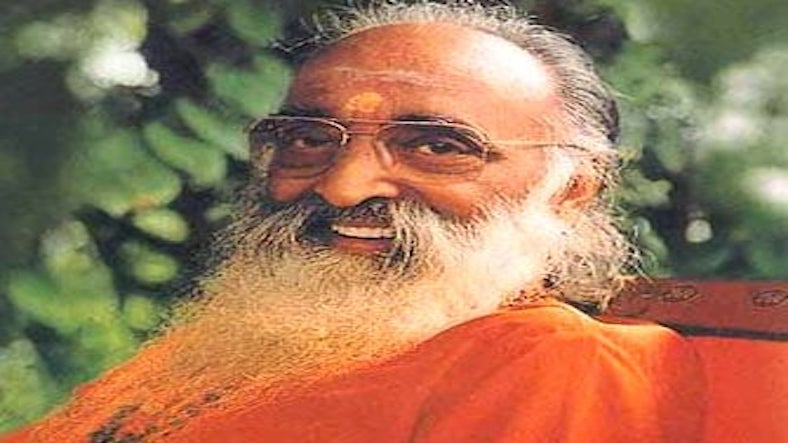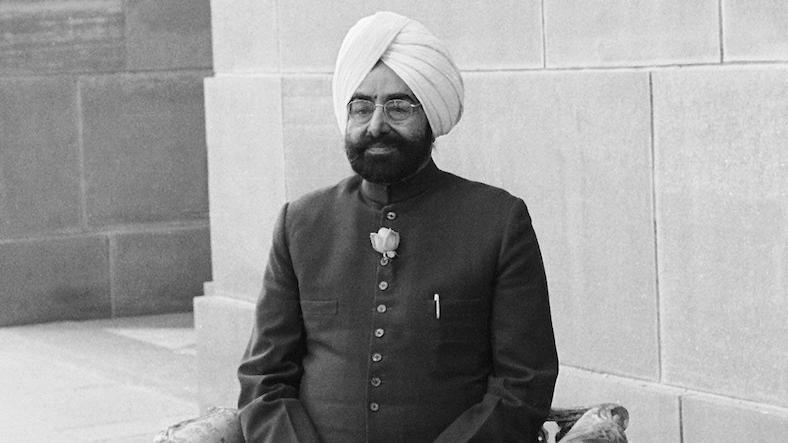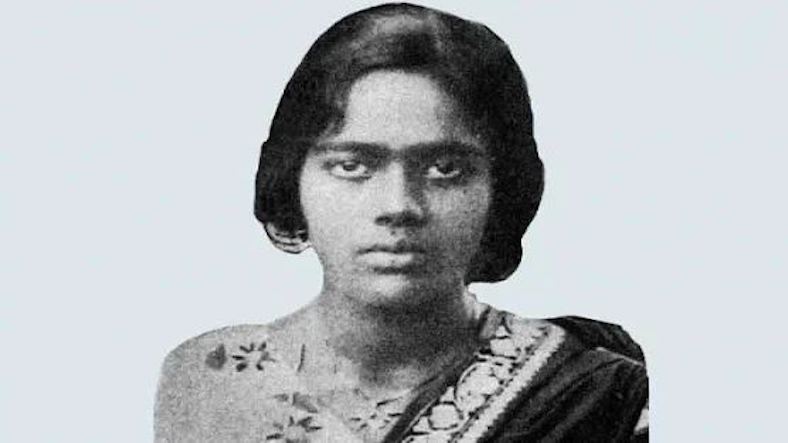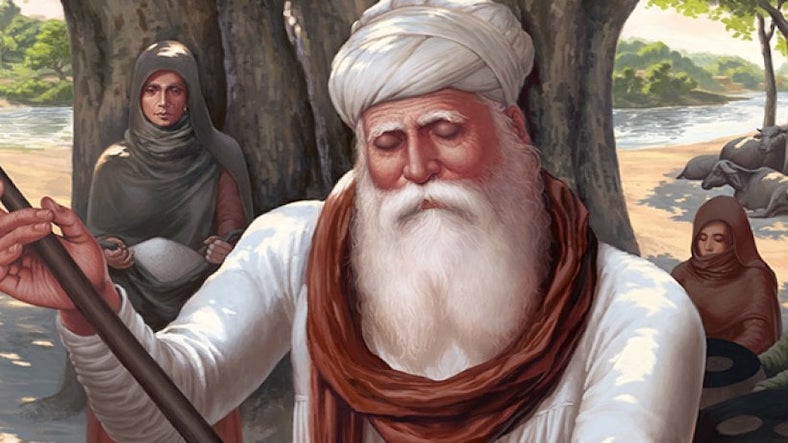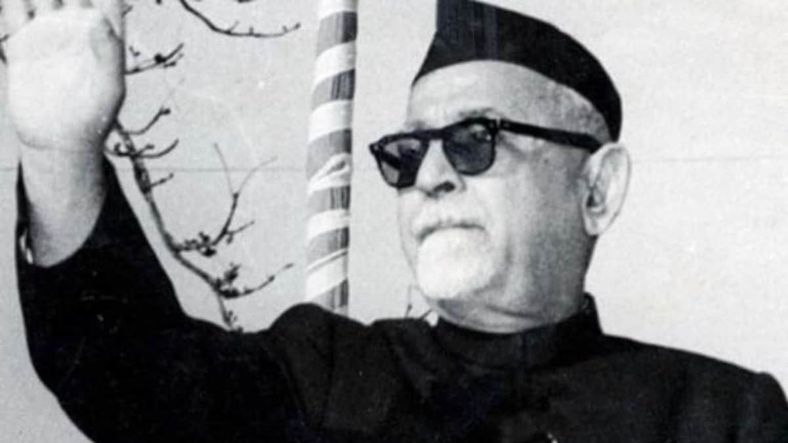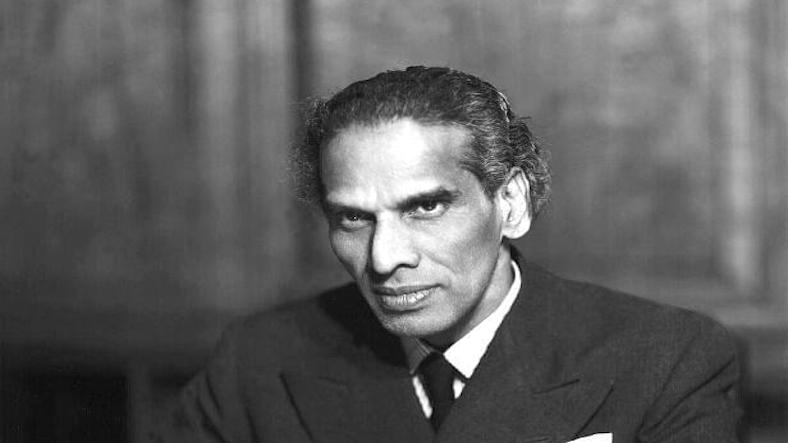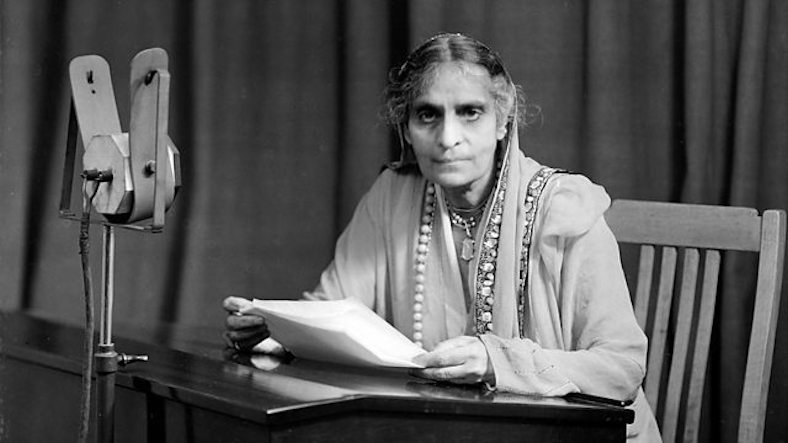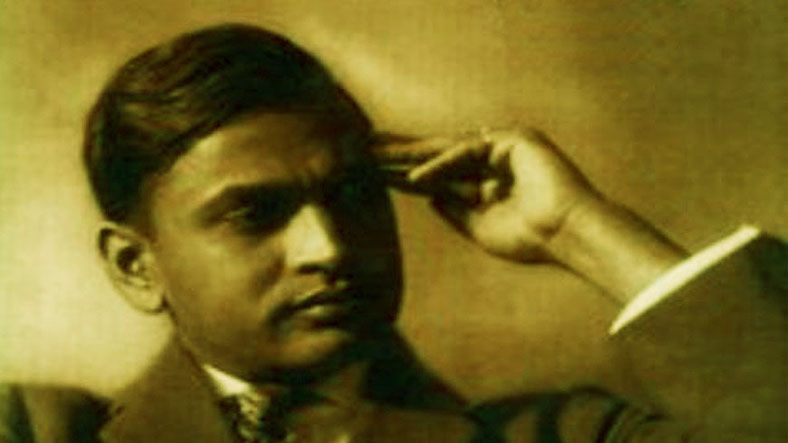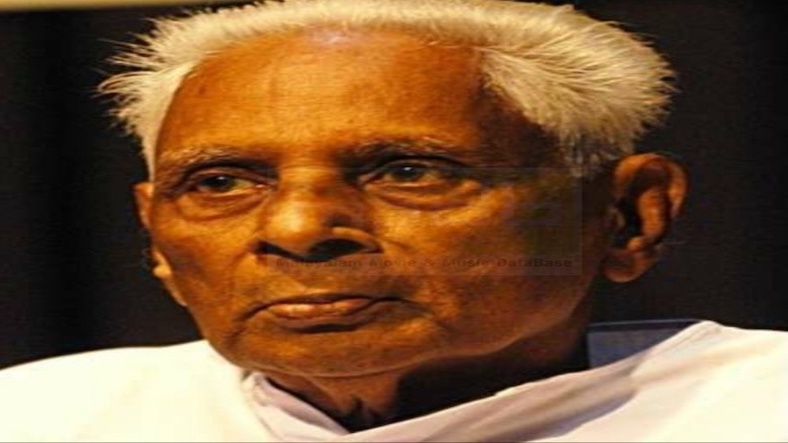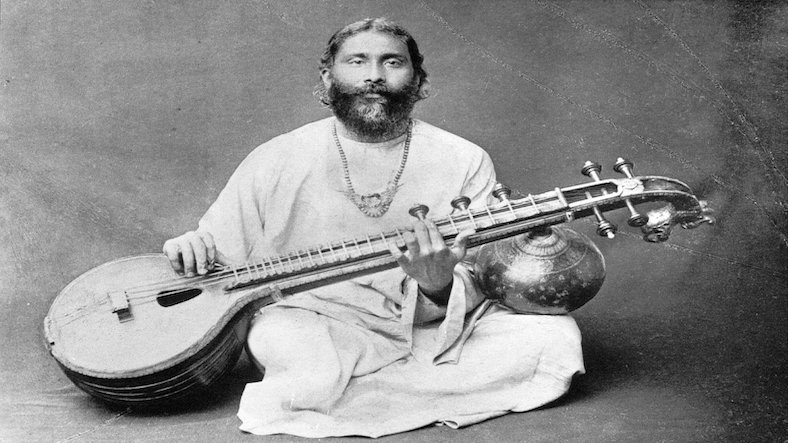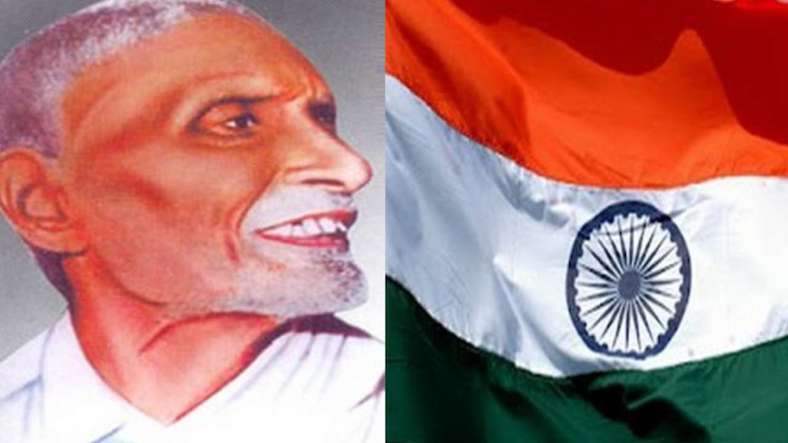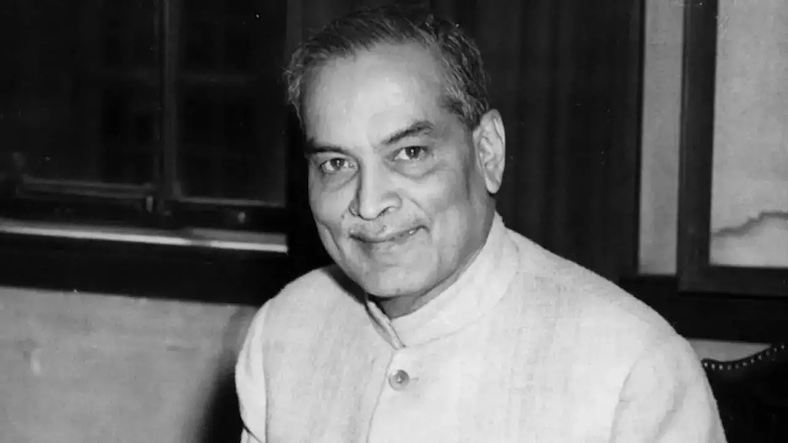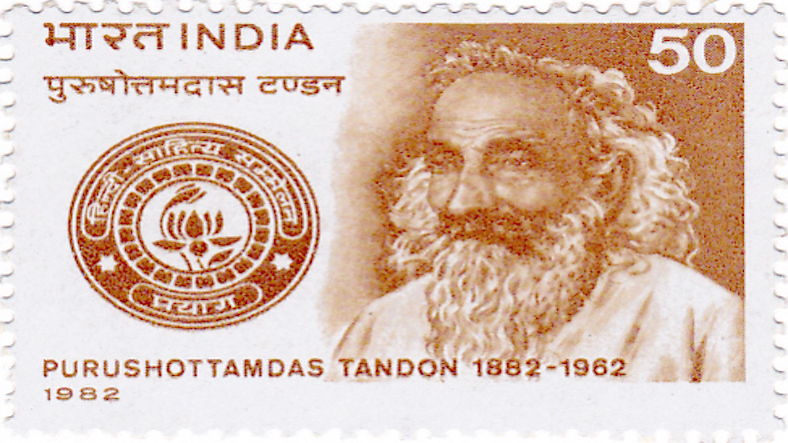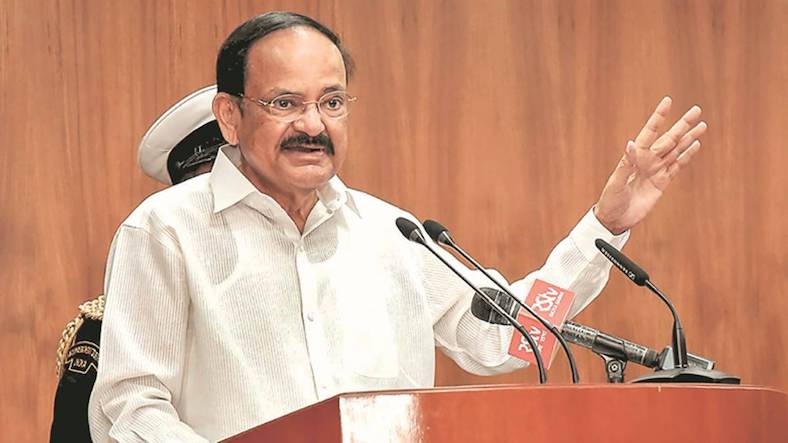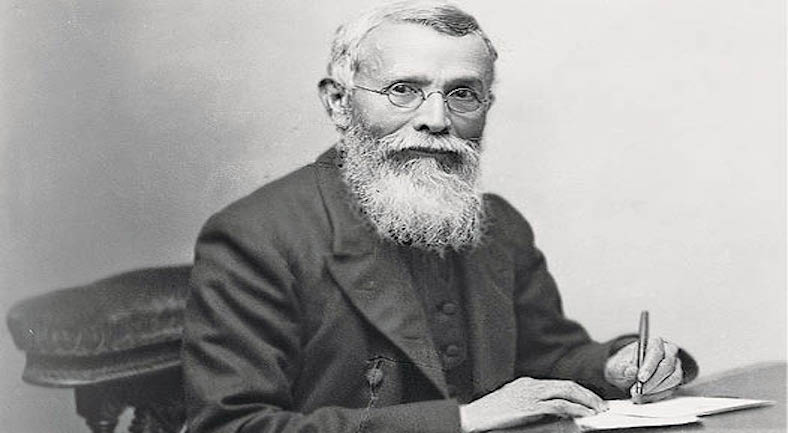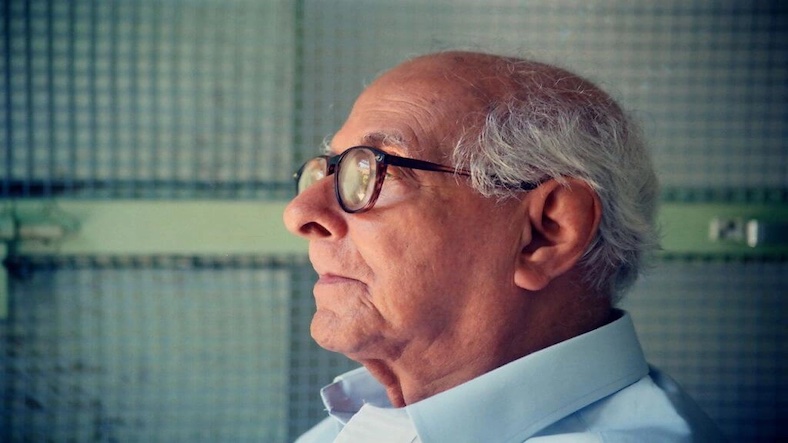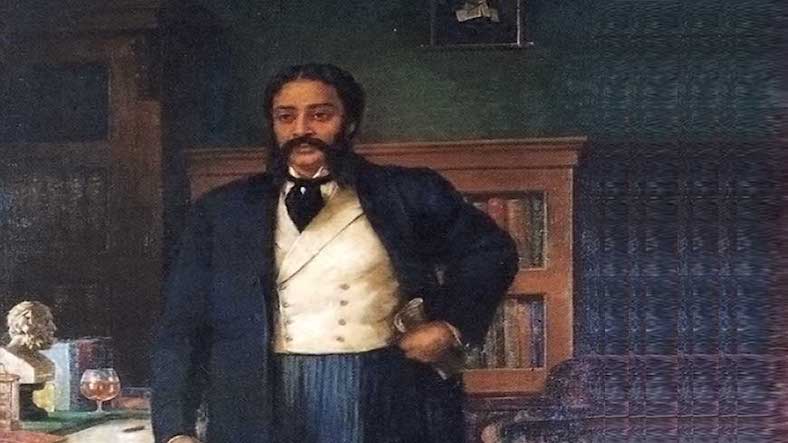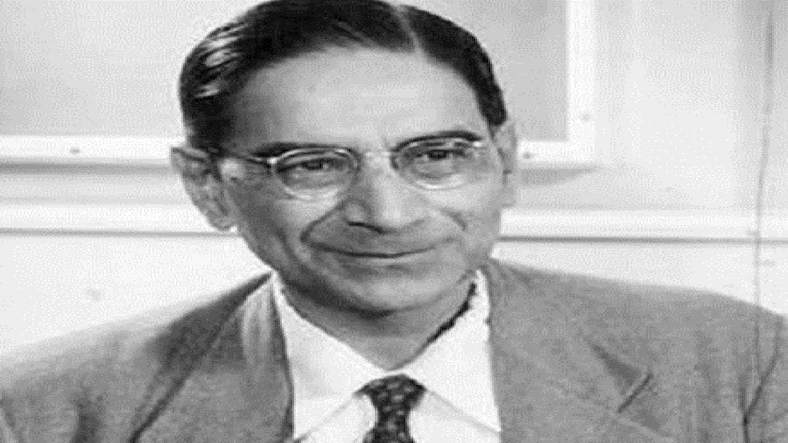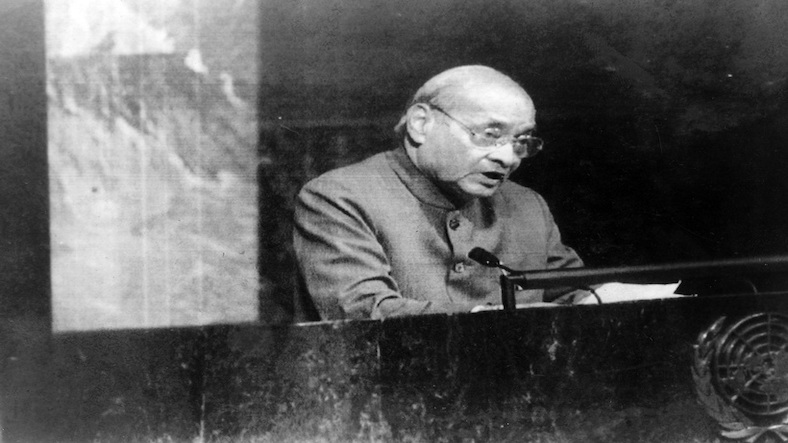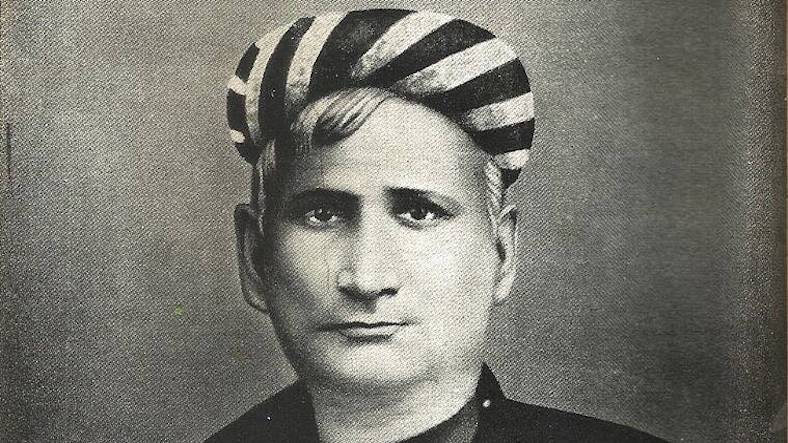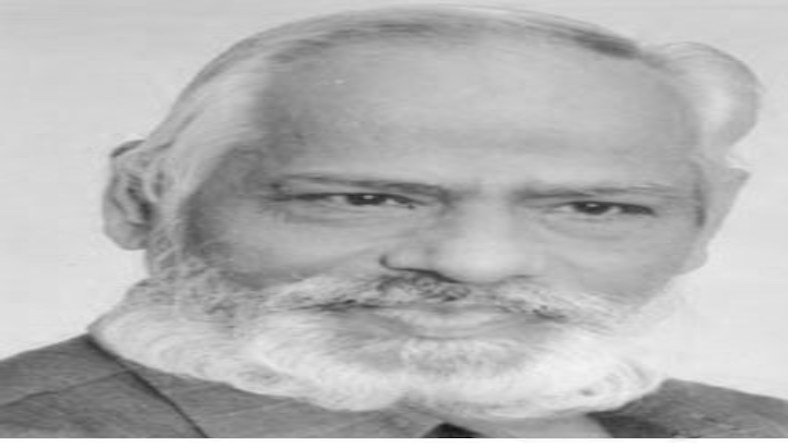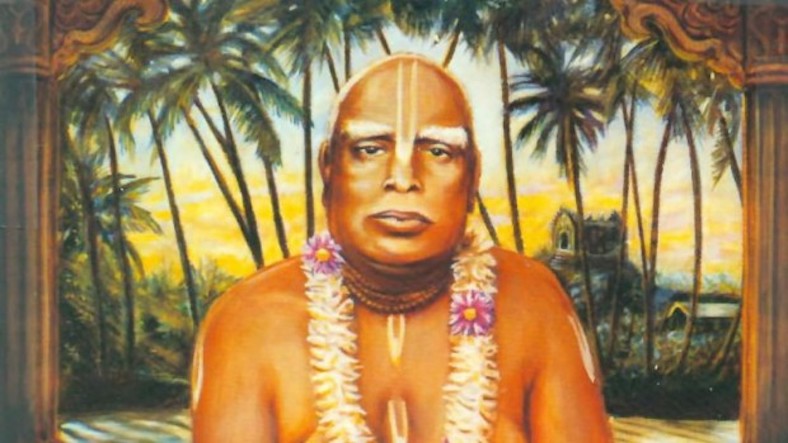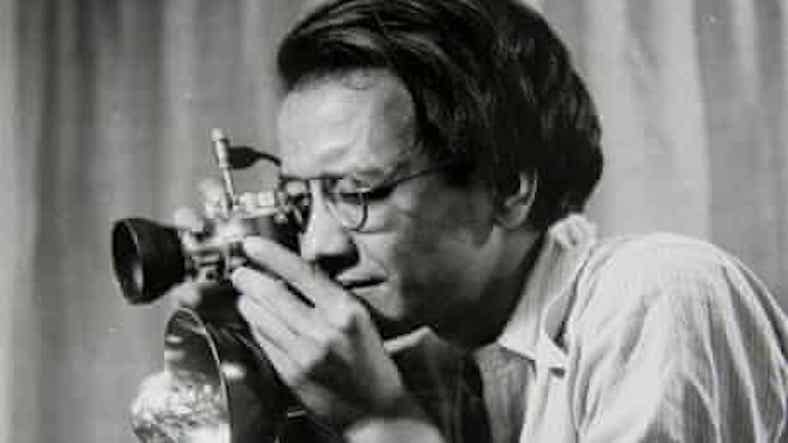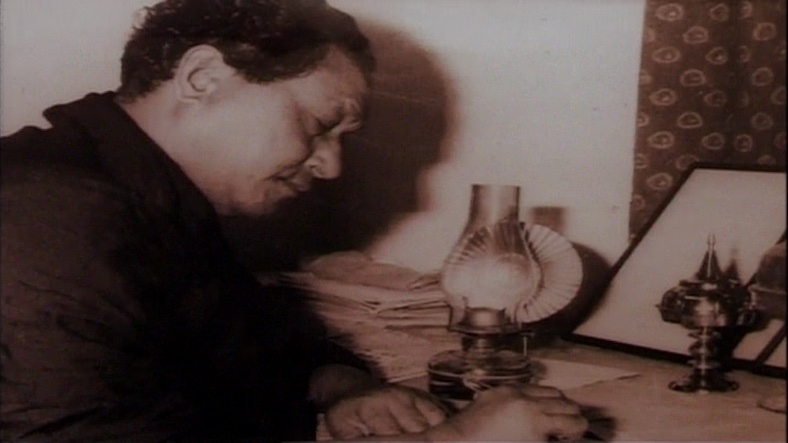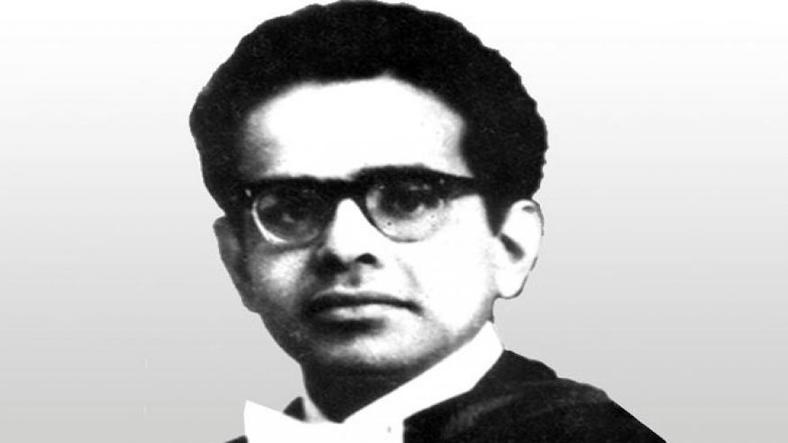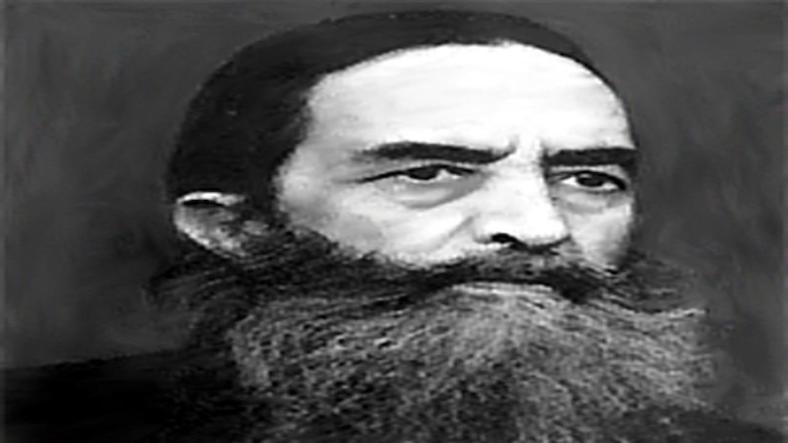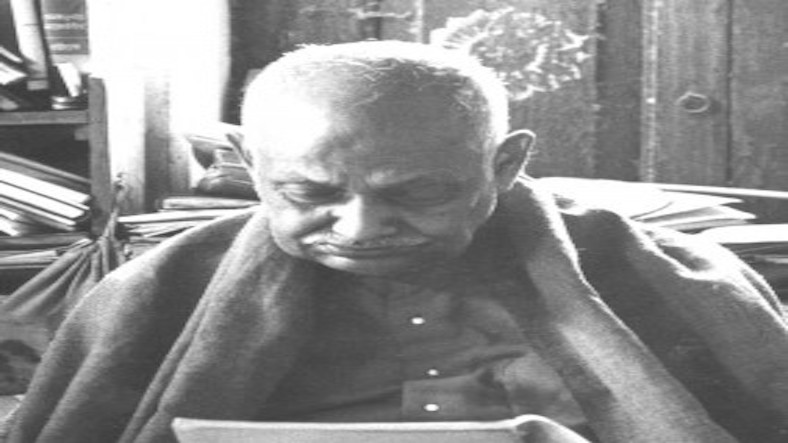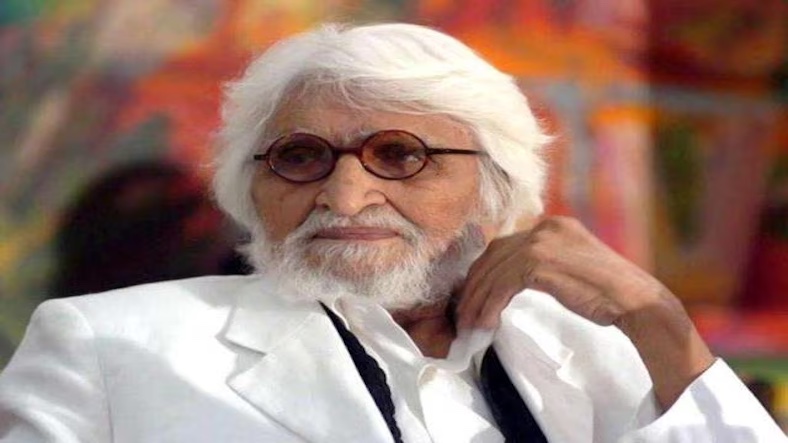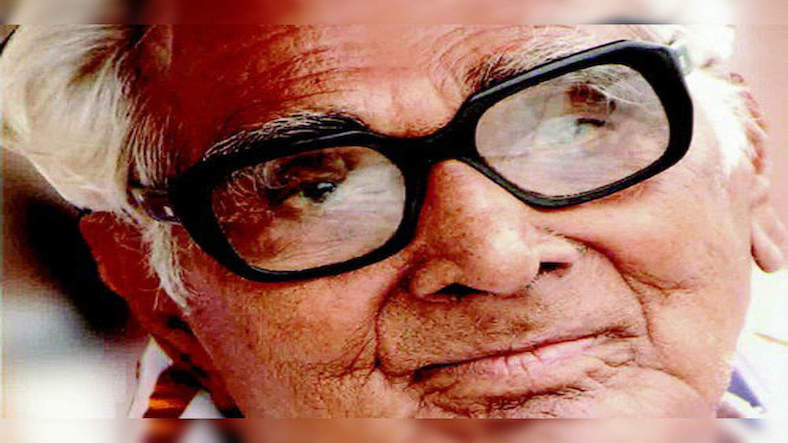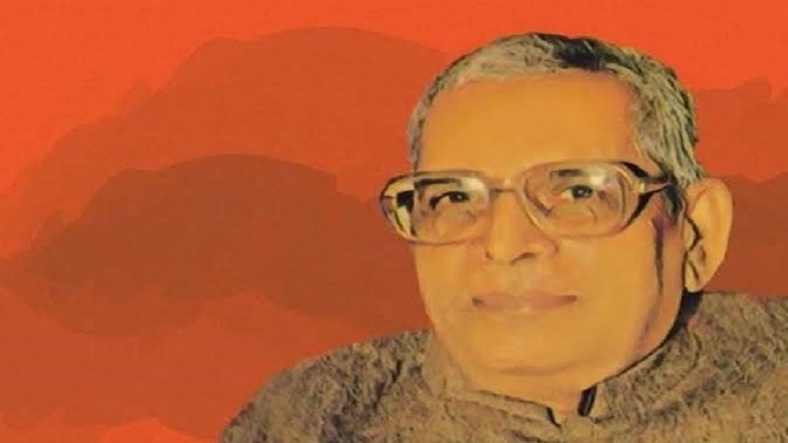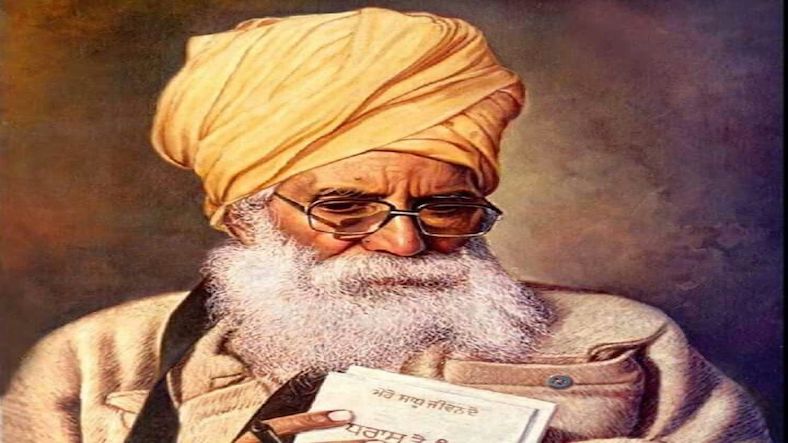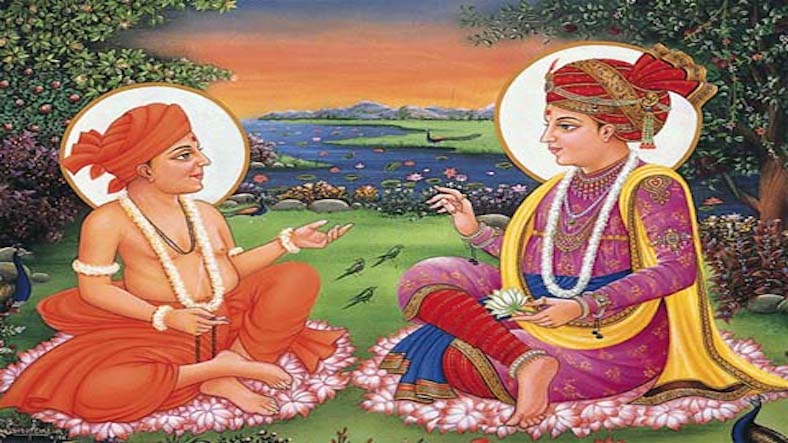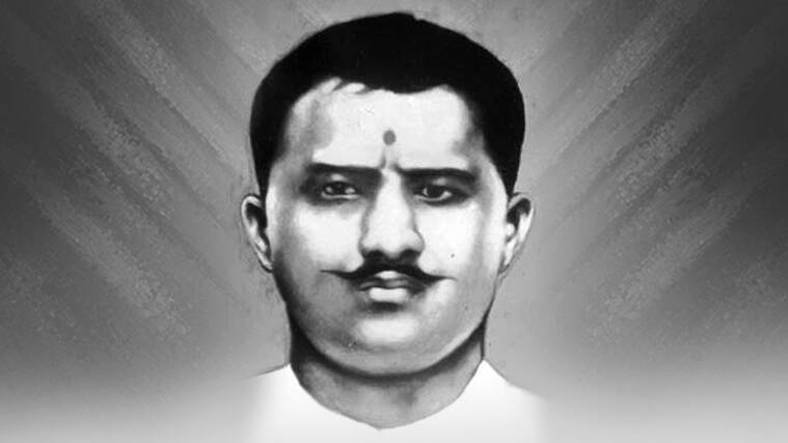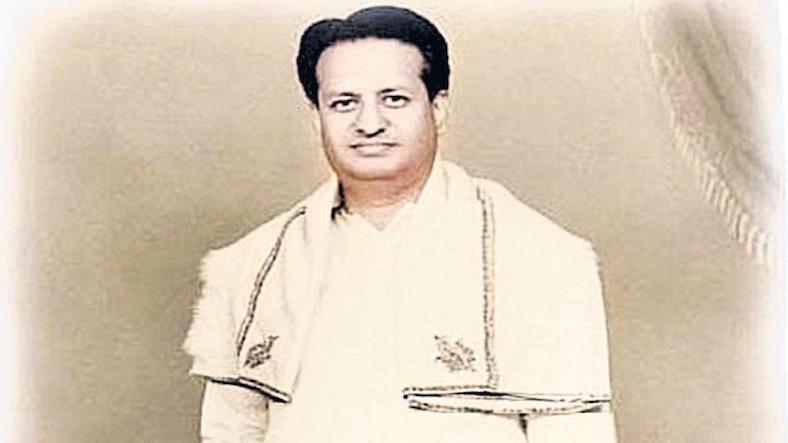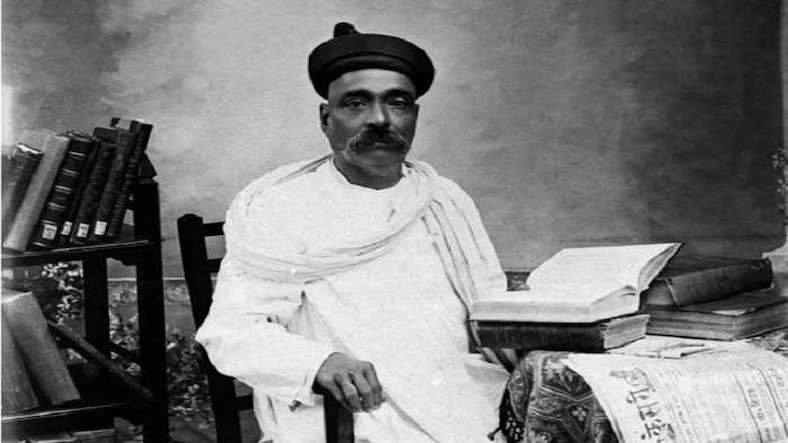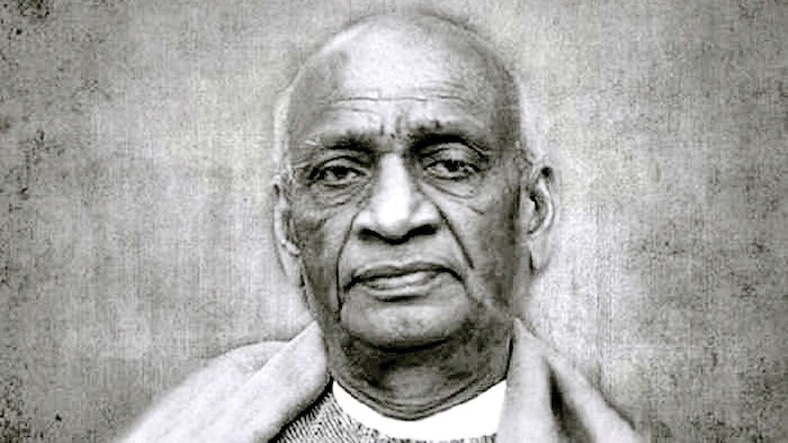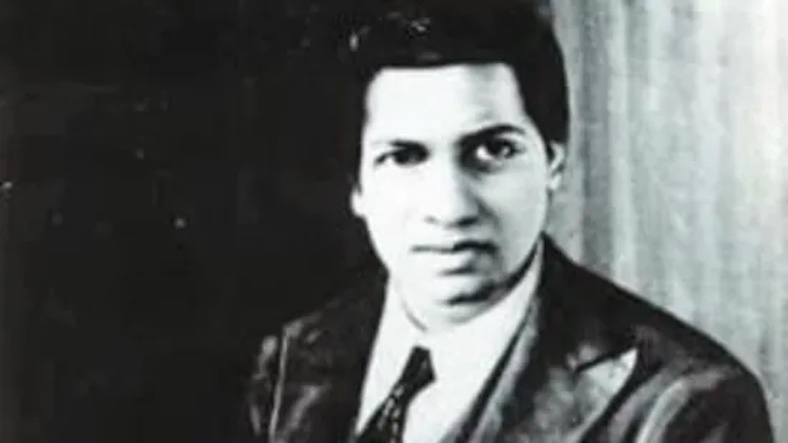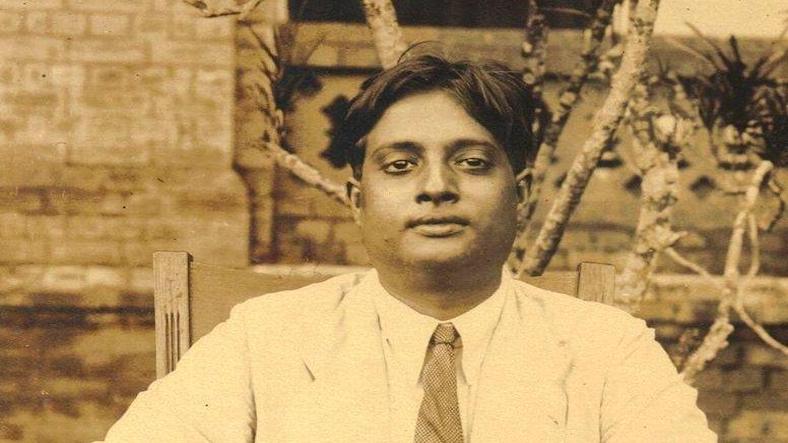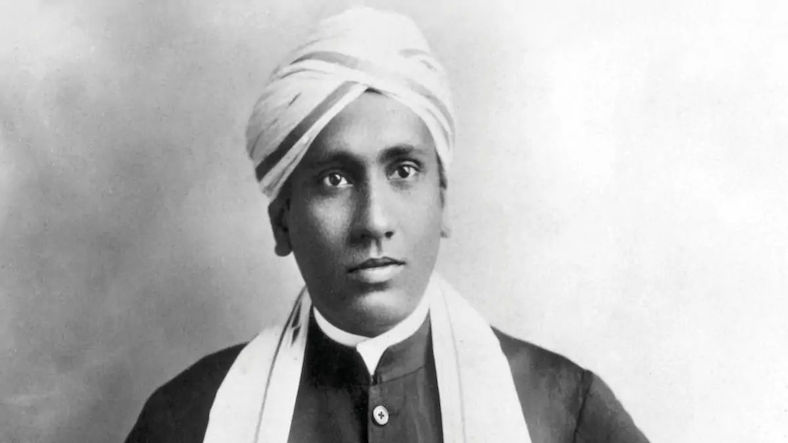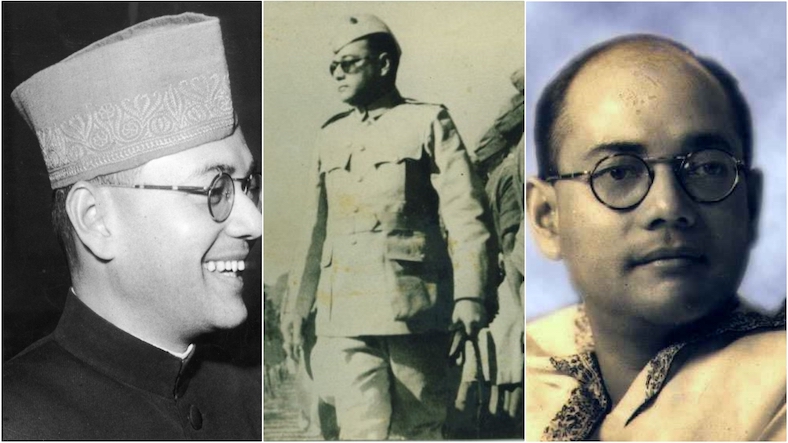Sangolli Rayanna was a brave freedom fighter from Karnataka who led the Kittur rebellion against British rule. Learn about his life, leadership, and legacy.
Great People
Tyagaraja: Life, Music, Legacy and His Immortal Contribution to Carnatic Music
He was born in Thiruvarur in present-day Tamil Nadu and is considered one of the Trinity of Carnatic music, along with Muthuswami Dikshitar and Syama Sastri. Tyagaraja's compositions are cherished for their devotional nature, melodic richness and spiritual depth.
Sridevi – The Eternal Queen of Indian Cinema
Sridevi, whose full name was Shree Amma Yanger Ayyapan, was one of India's most beloved and iconic actresses. She remains an eternal symbol of beauty, grace and talent in the hearts of millions of fans worldwide.
Sarat Pujari – A Pioneer of Odia Cinema, Theatre and Literature
Sarat Pujari (born August 14, 1934) is an Indian film actor, director and playwright primarily associated with the Odia film industry. Sarat Pujari's career spanning over several decades has left an indelible mark on Odia cinema, theater and literature, making him one of the most respected figures in the cultural landscape of Odisha.
Sadhana Shivdasani – The Timeless Beauty and Trendsetter of Indian Cinema
Sadhana Shivdasani (September 2, 1941 – December 25, 2015), widely known simply as Sadhana, was one of the most popular and iconic actresses in Indian cinema during the 1960s and 1970s
Rash Behari Bose – The Revolutionary Who Lit the Flame of Freedom
He was an Indian revolutionary who played a significant role in the struggle for India's independence from British colonial rule. He is best known for his involvement in the Ghadar Movement and his contributions to the Indian nationalist cause.
Rama Narayanan: Prolific Filmmaker and Visionary of Tamil Cinema
Rama Narayanan was a prolific Indian film director, producer and screenwriter, primarily associated with the Tamil film industry. He was known for his work in the horror and devotional genres and was a key figure in the South Indian film industry.
Pramukh Swami Maharaj: Spiritual Leader, Humanitarian, and Visionary
Pramukh Swami Maharaj, also known as Shastri Narayanswarupdas, was a revered spiritual leader and the fifth spiritual successor of Bhagwan Swaminarayan in the BAPS Swaminarayan Sanstha, a Hindu denomination.
Perween Warsi: Entrepreneur and Philanthropist Transforming Education and Society
Perween Warsi is a prominent Indian entrepreneur and philanthropist known for her contributions to the field of education and social welfare.
Nawazuddin Siddiqui: The Master of Realistic Acting in Indian Cinema
Nawazuddin Siddiqui is an acclaimed Indian actor known for his exceptional acting skills and versatile performances. He has gained widespread recognition and critical acclaim for his roles in both mainstream and independent cinema.
Nargis: The Legendary Actress Who Defined Indian Cinema’s Golden Era
Nargis was a legendary Indian actress who graced the silver screen during the golden era of Indian cinema. She was celebrated for her exceptional acting skills, beauty and contributions to the world of Hindi films.
Meena Kumari: The Timeless Tragedy Queen of Indian Cinema
Meena Kumari, born Mahjabeen Bano, was a legendary Indian film actress and poet. Meena Kumari's contribution to Indian cinema is significant and she remains an enduring and beloved figure in the history of Bollywood.
Margaret Abbott: The First American Woman to Win an Olympic Event
She was an American golfer who holds a unique place in Olympic history as the first American woman to win an Olympic event. She won a gold medal in golf at the 1900 Summer Olympics in Paris, making her a pioneer in women's sports and Olympic competition.
Madan Mohan: The Timeless Music Composer Who Gave Hindi Cinema Its Most Soulful Melodies
Madan Mohan was a renowned Indian music director in the Hindi film industry, known for his soulful and melodious compositions. He was one of the most respected composers of the golden era of Indian cinema.
Madan Lal Dhingra: The Revolutionary Who Shocked the British Empire
Madan Lal Dhingra's courageous act of defiance and his ultimate sacrifice left an indelible mark on India's struggle for independence. He remains a revered figure in the annals of Indian history, symbolizing the unwavering commitment and sacrifice of those who fought for the nation's freedom.
M. M. Kalburgi: Life, Work, Controversies, and Legacy of a Fearless Kannada Scholar
M. M. Kalburgi, also known as Malleshappa Madivalappa Kalburgi, was an eminent Indian scholar, writer, academic, and former Vice-Chancellor of Kannada University in Hampi, Karnataka
John Hunt, Baron Hunt: The Leader Behind the Historic 1953 Mount Everest Expedition
John Hunt, Baron Hunt's leadership and organizational skills were pivotal in the success of the 1953 Everest expedition. His contributions to mountaineering, along with his subsequent work in outdoor education and personal development, left a lasting impact.
Harkishan Singh Surjeet: Life, Leadership and Legacy of a Key Indian Communist Leader
Harkishan Singh Surjeet was a prominent Indian communist leader and politician who played a significant role in the country's political landscape. Harkishan Singh Surjeet's contributions to Indian politics, especially his efforts in building coalitions and promoting the interests of workers and farmers, are remembered by many.
Firaq Gorakhpuri: Life, Legacy and Contribution to Urdu Literature
Firaq Gorakhpuri (1896-1982) was a renowned Urdu poet and literary figure whose work has left a significant impact on modern Urdu literature
Chiranjeevi: The Megastar Who Redefined Telugu Cinema and Became a Cultural Icon
Chiranjeevi, born Konidela Siva Sankara Vara Prasad on August 22, 1955, is a towering figure in Indian cinema, particularly known for his work in Telugu films. With a career spanning over four decades
Charles Correa: The Visionary Architect Who Shaped Modern Indian Architecture
He was a renowned Indian architect and urban planner known for his innovative and sustainable approach to architecture and urban design. He played a pivotal role in shaping modern Indian architecture and contributed to the development of architecture on a global scale.
Balu Mahendra: The Visual Poet Who Transformed Indian Cinema
He was an acclaimed Indian filmmaker and cinematographer known for his significant contributions to the world of cinema, particularly in the Tamil and Malayalam film industries. He was known for his artistic and innovative approach to filmmaking, as well as his ability to portray complex emotions and relationships on screen.
Baburao Painter: The Pioneer Who Shaped Early Indian Cinema
He was an influential Indian film director, actor, producer and screenwriter who is considered one of the pioneers of Indian cinema. He played a crucial role in shaping the early years of the Indian film industry and is known for his contributions to Marathi and Indian silent cinema.
B. Vittalacharya: The Legendary Filmmaker Who Shaped Kannada Cinema
He was a prominent Indian film director, screenwriter and producer, primarily known for his contributions to the Kannada film industry. He was a versatile filmmaker who directed movies across different genres and played a significant role in shaping the landscape of Kannada cinema.
APJ Abdul Kalam: Life, Achievements, Vision, and Lasting Legacy
APJ Abdul Kalam, full name Avul Pakir Jainulabdeen Abdul Kalam, was an Indian scientist, statesman and the 11th President of India. He was born on October 15, 1931, in Rameswaram, Tamil Nadu, India
Anjali Devi: Life, Career, Legacy, and Lasting Impact on Indian Cinema
Anjali Devi was a distinguished Indian actress and film producer, renowned for her significant contributions to Indian cinema, particularly in the Telugu, Tamil and Hindi film industries
A. C. Bhaktivedanta Swami Prabhupada: Life, Teachings, and Global Legacy
A. C. Bhaktivedanta Swami Prabhupada was a revered Indian spiritual leader, scholar, and the founder of the International Society for Krishna Consciousness (ISKCON), popularly known as the Hare Krishna Movement
Jamsetji Tata – Life, Vision, Achievements & Legacy of the Father of Indian Industry
He was a pioneering Indian industrialist, philanthropist and founder of the Tata Group, one of India's largest and most respected conglomerates. He played a crucial role in the development of modern industry in India and left an enduring legacy in various sectors.
Vaidyanath Mishra – Life, Works, Poems, Ideology & Legacy of the Radical Hindi–Maithili Literary Icon
Vaidyanath Mishra, better known by his pen name Nagarjun, was a renowned Hindi and Maithili poet, writer and literary critic. He remains a celebrated figure in Indian literature and his works continue to be studied and appreciated for their literary and intellectual merit.
Javagal Srinath: Career, Records, Achievements & Legacy of India’s Fast-Bowling Pioneer
Javagal Srinath (born August 31, 1969) is one of the most celebrated fast bowlers in Indian cricket history. Known for his exceptional speed, accuracy, and sportsmanship, Srinath carried India’s fast-bowling attack during an era when fast bowlers were a rarity in the country
Anita Desai: Literary Journey, Major Works, Themes, Awards & Legacy
Anita Desai is a renowned Indian author known for her novels, short stories and children's literature. She has been acclaimed for her insightful exploration of human relationships, the complexities of Indian society and the interplay of tradition and modernity.
Gulzarilal Nanda: Contributions, Political Career & Legacy of India’s Interim Prime Minister
Gulzarilal Nanda (1898-1998) was an Indian politician and a prominent figure in the early years of independent India. He served as the interim Prime Minister of India twice, holding office briefly after the deaths of Jawaharlal Nehru and Lal Bahadur Shastri.
Pawan Kalyan: Movies, Politics, Life & Legacy
Explore Pawan Kalyan life, movies, political journey and achievements. A complete, fact-checked biography of the Power Star of Telugu cinema
Vikram Seth: Life, Books, Poetry, Awards and Literary Legacy
Discover the life and works of Vikram Seth—author of A Suitable Boy, acclaimed poet, travel writer and one of Indias greatest contemporary literary voices. Includes biography, major books, achievements and FAQs
Rajendra Singh: Waterman of India, Life, Achievements, Awards and Water Conservation Work
Learn about Rajendra Singh, the Waterman of India—his early life, water conservation work, revival of rivers, contributions through Tarun Bharat Sangh, awards, impact, and lasting legacy
Sukhdev Thapar – Early Life, Role in HSRA, Martyrdom & Legacy
Learn about Sukhdev Thapar, the Indian revolutionary who fought alongside Bhagat Singh and Rajguru. Explore his early life, role in HSRA, Lahore Conspiracy Case, and lasting legacy.
Narendra Dabholkar – Rationalist, Activist & Anti-Superstition Leader
Learn about Narendra Dabholkar life, activism, and his fight against superstition. Explore his work with MANS, his role in drafting the Anti-Superstition Bill, and his lasting legacy in promoting scientific temper in India.
Harindranath Chattopadhyay – Poet, Actor, Politician & Freedom Fighter
Explore the life and legacy of Harindranath Chattopadhyay—poet, playwright, actor, and freedom fighter. Learn about his literature, political career, theatre work, and contributions to Indian culture.
U. R. Ananthamurthy – Life, Literature, Legacy
U. R. Ananthamurthy (1932-2009) was a distinguished Indian writer and critic, renowned for his contributions to Kannada literature. His innovative narrative style and profound engagement with social issues earned him a prominent place in Indian literary history
Raj Kapoor – Iconic Showman of Indian Cinema & Bollywood Legend
Explore the life and legacy of Raj Kapoor, the Showman of Indian Cinema. Discover his biography, iconic films, acting career, direction, music, and influence on Bollywood
Ibn-e-Insha: The Humorist Poet, Travel Writer, and Icon of Urdu Literature
He was a renowned Pakistani Urdu poet, humorist, travel writer and columnist. He is celebrated for his unique writing style that blends humor, wit and profound observations on life and society. His literary works have left a lasting impact on Urdu literature and continue to be widely appreciated by readers.
Persis Khambatta: The Trailblazing Indian Actress and Model Who Conquered Hollywood
Persis Khambatta (1948–1998) was an Indian actress and model who gained international fame for her roles in film and television
Neerja Bhanot: The Braveheart Who Saved Hundreds of Lives on Pan Am Flight 73
Neerja Bhanot was an Indian flight attendant who displayed extraordinary courage and sacrifice during the hijacking of Pan Am Flight 73 on September 5, 1986
Ramakant Desai: India’s Fearless Fast Bowler of the 1960s
Ramakant Desai as a former Indian cricketer who played as a right-arm fast-medium bowler. He was a prominent member of the Indian cricket team during the 1960s. Ramakant Desai's contributions to Indian cricket during the 1960s, particularly in the historic series against England.
Abey Kuruvilla: The Tall Fast Bowler Who Became a Key Figure in Indian Cricket Administration
Abey Kuruvilla is a former Indian cricketer who played as a right-arm fast-medium bowler. Abey Kuruvilla's contributions to Indian cricket, both as a player and as a coach/administrator, have been significant.
Hazari Prasad Dwivedi: Life, Works, Contributions and Legacy of a Hindi Literary Icon
Hazari Prasad Dwivedi's works continue to be studied and appreciated for their literary merit and cultural significance. He is remembered as one of the foremost figures in modern Hindi literature, whose writings have enriched the literary landscape of India
Vishwanath Pratap Singh: Life, Prime Ministership, Reforms and Contributions to India
Learn about V. P. Singh, the 7th Prime Minister of India. Read his biography, early life, political journey, Mandal Commission reforms, achievements and lasting impact on Indian politics.
Nagarjuna Akkineni: Career, Movies, Family, Awards & Legacy
Nagarjuna Akkineni biography, film career, awards, family and legacy in Telugu cinema. Learn about the iconic Tollywood stars life and contributions
S. V. Ranga Rao: The Timeless Legend of Indian Cinema
Samarla Venkata Ranga Rao, popularly known as S. V. Ranga Rao (1918-1974), was a renowned Indian actor who primarily worked in the Telugu film industry. He was known for his versatility, powerful performances and distinctive voice. S. V. Ranga Rao's contributions to Indian cinema have made him one of the most iconic and celebrated actors in the history of Telugu cinema.
Dr. Jeppiaar: Life, Legacy and Contributions to Indian Education
He is the founder of the Jeppiaar Educational Trust and several educational institutions in India. His full name was Dr. Jeppiaar S. Thomas. He was a prominent educationist and a well-known figure in the field of higher education in Tamil Nadu, India.
Neelam Sanjiva Reddy: Early Life, Political Career, Presidency and Legacy
Neelam Sanjiva Reddy 1913–1996, the sixth President of India, was a freedom fighter, skilled administrator and statesman. Explore his early life, political journey, presidency and enduring legacy in Indian history
A. K. Lohithadas: Career, Best Films, Writing Style and Legacy of a Malayalam Cinema Icon
A. K. Lohithadas 1955–2009 was a celebrated Malayalam screenwriter, director and producer known for his realistic storytelling and memorable characters. Explore his biography, early life, notable films, awards and lasting legacy in Indian cinema.
Hiren Bhattacharyya: Poems, Literary Career, Awards and Legacy
Hiren Bhattacharyya 1932–2012 was one of Assams most beloved poets, known for his lyrical Assamese poetry, cultural influence, and award-winning literary contributions. Learn about his life, works, awards and legacy.
Kaka Kalelkar: Contributions, Education Reforms, and Legacy
Kaka Kalelkar was a prominent Indian educationist, social reformer, freedom fighter, and close associate of Mahatma Gandhi. Learn about his early life, career, independence movement involvement, and lasting legacy
Mithun Chakraborty: Early Life, Career, Awards, Political Journey, and Legacy
Explore the complete biography of Mithun Chakraborty, Indias legendary actor and Disco King. Learn about his early life, National Award-winning performances, iconic films like Disco Dancer, political career, philanthropy, television journey, business ventures, and his everlasting impact on Indian cinema.
Alluri Sitarama Raju: Rampa Rebellion, Contributions, and Legacy
Alluri Sitarama Raju was a legendary Indian freedom fighter who led the Rampa Rebellion to defend tribal rights and resist British rule in the Eastern Ghats of Andhra Pradesh. Learn about his early life, revolutionary movement, guerrilla warfare, sacrifice, and lasting legacy in Indias independence history
Satyendranath Dutta: Works, Poems and Legacy of the Bengali Master of Metre
Explore the life and contributions of Satyendranath Dutta 1882–1922, the renowned Bengali poet known as the Master of Metre. Learn about his early life, writing style, famous poems, literary influence and lasting legacy in Bengali literature.
Sumitranandan Pant: Early Life, Poetry, Works, Awards & Legacy
Explore the life, poetry, literary contributions, and legacy of Sumitranandan Pant — one of the greatest Hindi poets and a leading voice of the Chhayavaad movement
Y. S. Rajasekhara Reddy (YSR): Biography, Early Life, Welfare Schemes, Padayatra, Achievements & Legacy
Learn about Y. S. Rajasekhara Reddy (YSR) — his biography, early life, political career, key welfare schemes, Padayatra, achievements as Andhra Pradesh Chief Minister, and lasting legacy.
Manisha Koirala – Early Life, Career, Movies, Challenges and Legacy
Manisha Koirala’s biography covering her early life, Bollywood career, notable films, challenges, cancer recovery, comeback and lasting legacy in Indian cinema.
Vasantrao Naik: Life, Reforms and Legacy
Read about Vasantrao Naik’s early life, political career, agricultural reforms and lasting legacy as Maharashtra’s longest-serving Chief Minister.
Dilip Sardesai: Life, Career, Achievements, 1971 Records and Legacy
Learn about Dilip Narayan Sardesai, one of India’s finest Test batsmen. Explore his early life, cricket journey, 1971 West Indies heroics, achievements, personal life, and lasting legacy in Indian cricket.
Yash Johar: Early Life, Career, Dharma Productions, Films and Legacy
Yash Johar was a renowned Indian film producer and founder of Dharma Productions. Learn about his early life, career journey, famous films, personality, and lasting legacy in Bollywood in this detailed biography.
V. V. Giri: Biography, Life, Career and Legacy of India’s 4th President
Read the full biography of V. V. Giri, India’s fourth President. Learn about his early life, career, labour movement work, presidency and lasting legacy
Lala Amarnath: India’s First Test Captain, Career, Records and Legacy
Learn about Lala Amarnath, India’s first Test captain. Includes his career, achievements, records, family legacy and impact on Indian cricket.
Ruskin Bond: Books, Awards & Literary Legacy of India’s Beloved Author
Discover the life, books, awards and legacy of Ruskin Bond, one of India’s most beloved authors. Explore his early life, writing journey, famous works and contributions to literature in this detailed biography
Maithili Sharan Gupt — Life, Works, Poems, Chhayavaad & Literary Contribution
Maithili Sharan Gupt (1886–1964) was a pioneer of Hindi Chhayavaad, known for Bharat-Bharati, Yashodhara, and socially conscious poetry.
The Great Khali – Renowned Indian Professional Wrestler, Actor and Former WWE World Heavyweight Champion
Discover The Great Khali’s rise as India’s iconic WWE star, actor and former World Heavyweight Champion. Career, records and legacy
R. G. Bhandarkar – Life, Contributions, Works and Legacy
Discover the life and contributions of R. G. Bhandarkar — Sanskrit scholar, Indologist, historian and social reformer who shaped modern Indian research.
Bhagwati Charan Verma: Life, Literature, Legacy and His Lasting Influence on Hindi Writing
Bhagwati Charan Verma was a prominent Indian writer, novelist and poet known for his contribution to Hindi literature
Amrish Puri – The Iconic Villain and Legendary Actor of Indian Cinema
Discover the inspiring life and career of Amrish Puri, Bollywoods legendary actor. Explore his iconic villainous roles, memorable performances, awards, and lasting legacy. Read now for an in-depth journey into the life of Mogambo and beyond.
Narayan Ganesh Chandavarkar – Scholar, Historian and Social Reformer Who Shaped Modern India
Discover the life of Narayan Ganesh Chandavarkar, Indian scholar, historian, and social reformer. Learn about his contributions to education, Indian National Congress, social reform, and colonial India.
Anugrah Narayan Sinha Biography: Indian Freedom Fighter & Bihar Leader
Learn about Anugrah Narayan Sinha, Indias freedom fighter and first Deputy Chief Minister of Bihar. Explore his contributions to social justice, education reforms, governance, and nation-building.
Suhasini Maniratnam Biography: Actress, Filmmaker & Philanthropist
Discover the life and career of Suhasini Maniratnam, South Indian actress and filmmaker. Explore her iconic films, directorial ventures, awards, and philanthropic contributions
Vivek Razdan Biography: Indian Fast Bowler, Career Highlights & Legacy
Discover the life and career of Vivek Razdan, India’s fast bowler from the 1980s and 90s. Explore his domestic & international cricket journey, career highlights, challenges, and legacy
Ustaad Bismillah Khan - Master of Shehnai and Cultural Icon
Discover the life and legacy of Ustaad Bismillah Khan, the legendary shehnai maestro of India. Explore his early life, iconic performances, awards like Bharat Ratna, and lasting cultural impact. Read now to learn about his musical journey.
Pannalal Patel: Life, Literary Journey and Lasting Impact on Gujarati Literature
He was a renowned Gujarati writer and novelist. He was one of the leading figures in Gujarati literature and made significant contributions to the field through his literary works, which are known for their depth, realism and portrayal of the human condition.
Nilakantha Somayaji – Life, Works, Discoveries and Legacy of the Kerala Genius
Nilakantha Somayaji, also known as Nilakantha or Neelakanta, was a prominent Indian mathematician and astronomer who made significant contributions to the fields of mathematics, astronomy and mathematical physics. He was born in the 15th century, likely in the region of Kerala, India.
Verghese Kurien
Born on November 26, 1921, in Kozhikode, Kerala, Kurien initially pursued a degree in mechanical engineering before specializing in dairy engineering
Vikram Batra
Captain Vikram Batra, fondly remembered as the “Sher Shah” of Kargil, is one of India’s most celebrated war heroes
Nisargadatta Maharaj
Nisargadatta Maharaj, one of the most revered spiritual teachers of the 20th century, continues to inspire seekers worldwide with his profound teachings on self-realization and non-duality
Asha Bhosle
Asha Bhosle is not just a singer; she is a living legend whose voice has been the heartbeat of Indian music for over seven decades
Paul Chater
Sunil Gangopadhyay
Bhanumathi Ramakrishna
Bhanumathi Ramakrishna was a pioneering Indian actress, singer, writer, music director, and filmmaker who left an indelible mark on South Indian cinema
Radha Charan Gupta
Radha Charan Gupta is a respected Indian historian of mathematics, best known for his deep and scholarly contributions to the study of ancient and medieval Indian mathematics
Bhagwatikumar Sharma
Bhagwatikumar Sharma was a renowned Gujarati writer, journalist, and poet, celebrated for his profound storytelling, realistic characters, and deep social consciousness
Salil Chowdhury
Salil Chowdhury was an iconic Indian music composer, lyricist, and poet, best known for his ability to blend Indian folk music with Western classical elements
Sharad Joshi
Sharad Joshi was a renowned Indian writer, satirist, and social activist known for his sharp wit and insightful commentary on society, politics, and everyday life
Phiroze Palia
Phiroze Edulji Palia was a talented Indian cricketer who played a pioneering role in the early days of Indian international cricket. A left-handed batsman and left-arm bowler, he was part of India's historic first-ever Test team in 1932
Sarvepalli Radhakrishnan
Sarvepalli Radhakrishnan was a distinguished Indian philosopher, statesman, and educationist who played a crucial role in shaping modern India’s intellectual and political landscape
V. O. Chidambaram Pillai
Valliappan Olaganathan Chidambaram Pillai, popularly known as V. O. Chidambaram Pillai, was a prominent Indian freedom fighter, lawyer, and entrepreneur
Hakam Sufi
Hakam Sufi was a distinguished Punjabi poet and lyricist known for his evocative and thought-provoking poetry. His literary contributions enriched Punjabi literature, and his work resonated deeply with readers due to its simplicity, profound themes, and cultural authenticity
Syed Mustafa Siraj
Syed Mustafa Siraj, a name synonymous with brilliance in Bengali literature, was a prolific writer, novelist, and short story writer whose works have left an indelible mark on the literary landscape of Bengal. Born on October 14, 1930, in Kolkata, India
Dharamvir Bharati
Dharamvir Bharati (1926–1997) was a celebrated Indian writer, poet, playwright, and journalist whose works have left an indelible mark on Hindi literature. Known for his profound insights into human emotions and the complexities of society
Ram Kishore Shukla
Ram Kishore Shukla (1918–2003) was a distinguished Indian politician, freedom fighter, and statesman who dedicated his life to the service of the nation and its people. Widely respected for his simplicity, humility, and integrity
A. P. Venkateswaran
A. P. Venkateswaran (1930–2014) was an esteemed Indian diplomat and civil servant who served as the Foreign Secretary of India.
Uttam Kumar
Uttam Kumar (1926–1980), often referred to as the Mahanayak (Great Hero), was one of the most celebrated actors in the history of Indian cinema, particularly in Bengali cinema
T. V. Sankaranarayanan
T. V. Sankaranarayanan (1945 – 2022) was a celebrated Carnatic vocalist, renowned for his rich voice, masterful improvisation, and faithful adherence to the traditional style of singing.
Kashiram Rana
Kashiram Rana (April 7, 1938 – August 31, 2012) was a senior Indian politician and a prominent leader of the Bharatiya Janata Party (BJP). Representing the Surat constituency in Gujarat for six consecutive terms in the Lok Sabha
Rituparno Ghosh
Rituparno Ghosh (1963–2013) was a groundbreaking filmmaker, screenwriter, actor, and cultural icon who redefined Indian cinema, particularly in the Bengali film industry. Known for his sensitive storytelling
Amrita Pritam
Amrita Pritam (1919–2005) was one of the most celebrated literary figures in Indian history, known for her powerful and evocative poetry, novels, and essays
Bipan Chandra
Bipan Chandra was a prominent Indian historian, scholar and author, renowned for his expertise on modern Indian history and the Indian independence movement
Ravi Shankar Prasad
He has held various significant positions in the government, particularly in the realm of information technology, communications and law. Here’s an overview of his life, career and contributions
Dhyan Chand
Dhyan Chand (1905-1979) is widely regarded as one of the greatest hockey players in history. Known for his exceptional skill, vision and goal-scoring prowess, Chand's contributions to the sport have left an enduring legacy in both Indian and international hockey
Jivraj Narayan Mehta
Jivraj Narayan Mehta (1896-1965) was a prominent Indian physician and public health pioneer whose contributions significantly shaped the development of medical services and public health policies in India
Ravi Kanbur
Ravi Kanbur is a distinguished economist renowned for his influential work in the fields of development economics, poverty and inequality
Vilayat Khan
Vilayat Khan (1928-2004) was a legendary Indian sitar virtuoso whose mastery and innovation elevated the art of classical Indian music
Hrishikesh Mukherjee
Hrishikesh Mukherjee (1922-2006) was a celebrated Indian filmmaker renowned for his contributions to Indian cinema, particularly in the genre of social and family-oriented films
Sri Chinmoy
Sri Chinmoy (1931-2007) was a prominent spiritual teacher, meditation master and advocate of peace known for his global efforts to promote inner harmony and unity
Jaswant Singh Neki
Jaswant Singh Neki (1925-2009) was a distinguished Indian scholar, philosopher and intellectual known for his significant contributions to the fields of philosophy, religion and literature
Tanguturi Prakasam
Tanguturi Prakasam Pantulu (1872-1957), popularly known as Tanguturi Prakasam, was a distinguished Indian politician, freedom fighter and social reformer. His contributions to the Indian independence movement
Shivaram Rajguru
Shivaram Rajguru (1908-1931) was a prominent Indian revolutionary and freedom fighter who played a crucial role in the struggle against British colonial rule
Sanjeev Sharma
Sanjeev Sharma is a former Indian cricketer known for his contributions to the game during the 1970s and 1980s. As a prominent fast bowler
Giridharilal Kedia
Giridharilal Kedia (1908-1991) was a notable Indian philanthropist, social reformer and businessman, renowned for his significant contributions to social welfare and community development
Chatursen Shastri
Chatursen Shastri (1891-1960) was a distinguished Indian scholar, author and editor, celebrated for his contributions to ancient Indian literature and history
Raghunath Panigrahi
Raghunath Panigrahi (1932-1994) was a celebrated Indian musician and composer, renowned for his significant contributions to Odia folk music and his influence on the cultural landscape of Odisha
Om Prakash Munjal
Om Prakash Munjal's journey from a humble beginning to building a global enterprise is a testament to his vision, determination and hard work. His legacy lives on through Hero Cycles, which remains a symbol of India's industrial prowess and entrepreneurial spirit.
Radha Gobinda Kar
Radha Gobinda Kar (1926-1987) was an influential Indian artist, art critic and educator, known for his significant contributions to the visual arts and art criticism in India.
